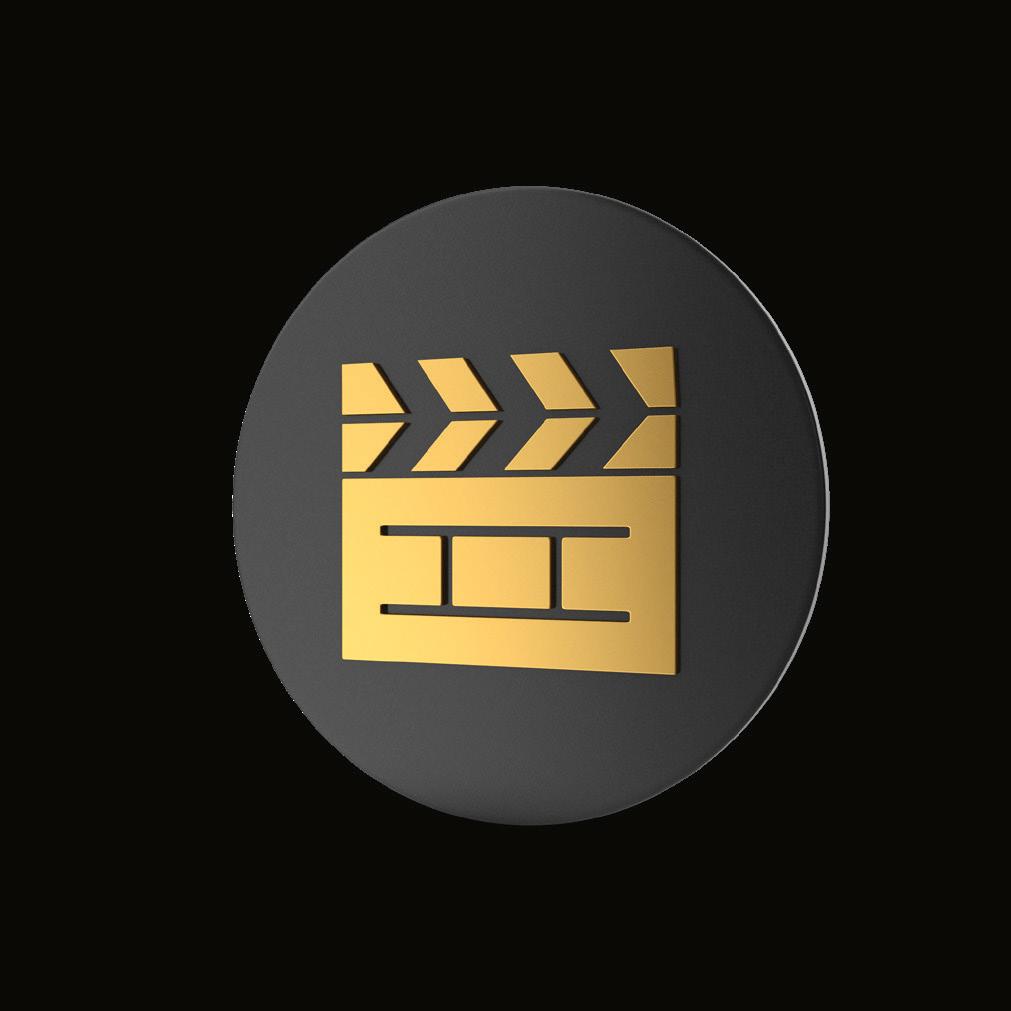
$9.95 AUD / $11.50 NZ June/July 2024 | Volume 34 Issue 3 linkonline.com.au In this issue: Three Aussie drag queens smashing stereotypes / Assistant & Therapy Dogs wag a few tales / Travel takes a trip to the Northern Territory / A refugee calls Australia home / Happenings and MORE meet Para Dancer Danni Stitfall throughDancingdisability
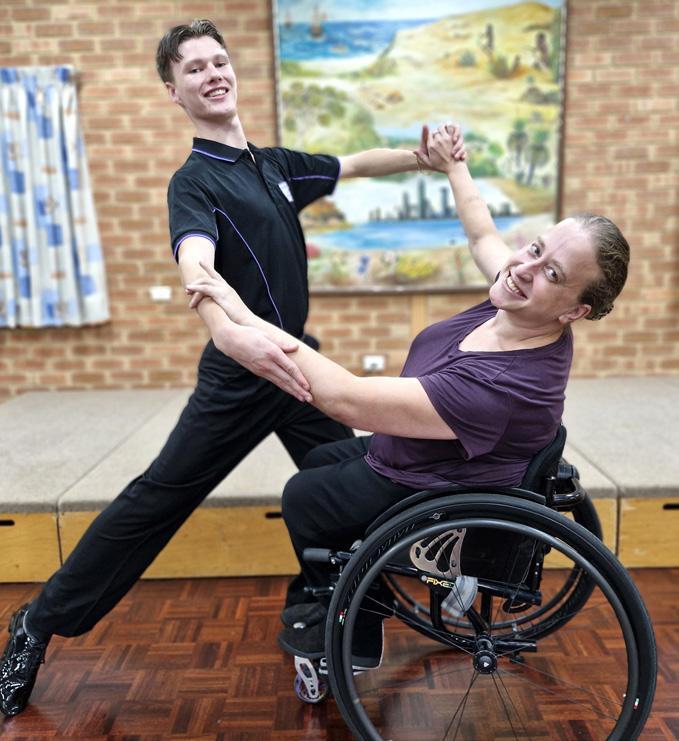
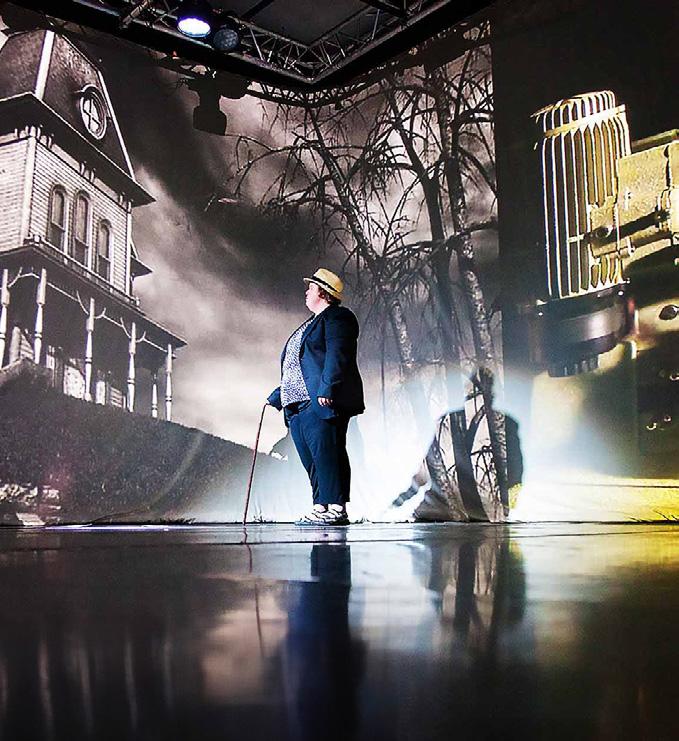
04
From the Editor
06-07
Cover Story – Rolling with the rhythm – meet Para Dancer Danni Stitfall
10
Showcasing a theatre for everybody

20 10 16
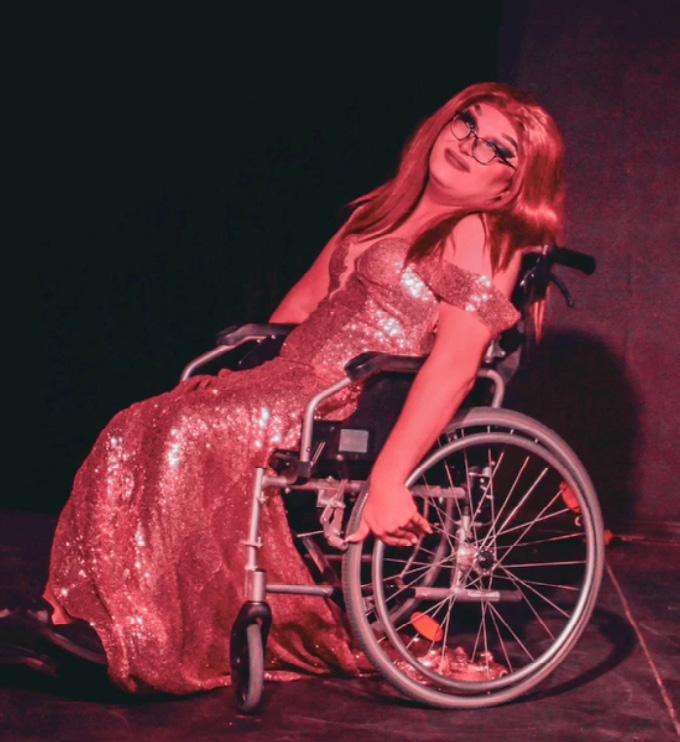


16-17
KdVS – creating a ‘Kool’ family
20-21
Drag Queens – forging a path for people with disability
58-61 Feature - Therapy & Assistance Dogs
62-63 Travel & Leisure
64-65
For Loc Tang - from adversity came triumph
68-69 Happenings
64 58
Inside
2 June/July 2024
06
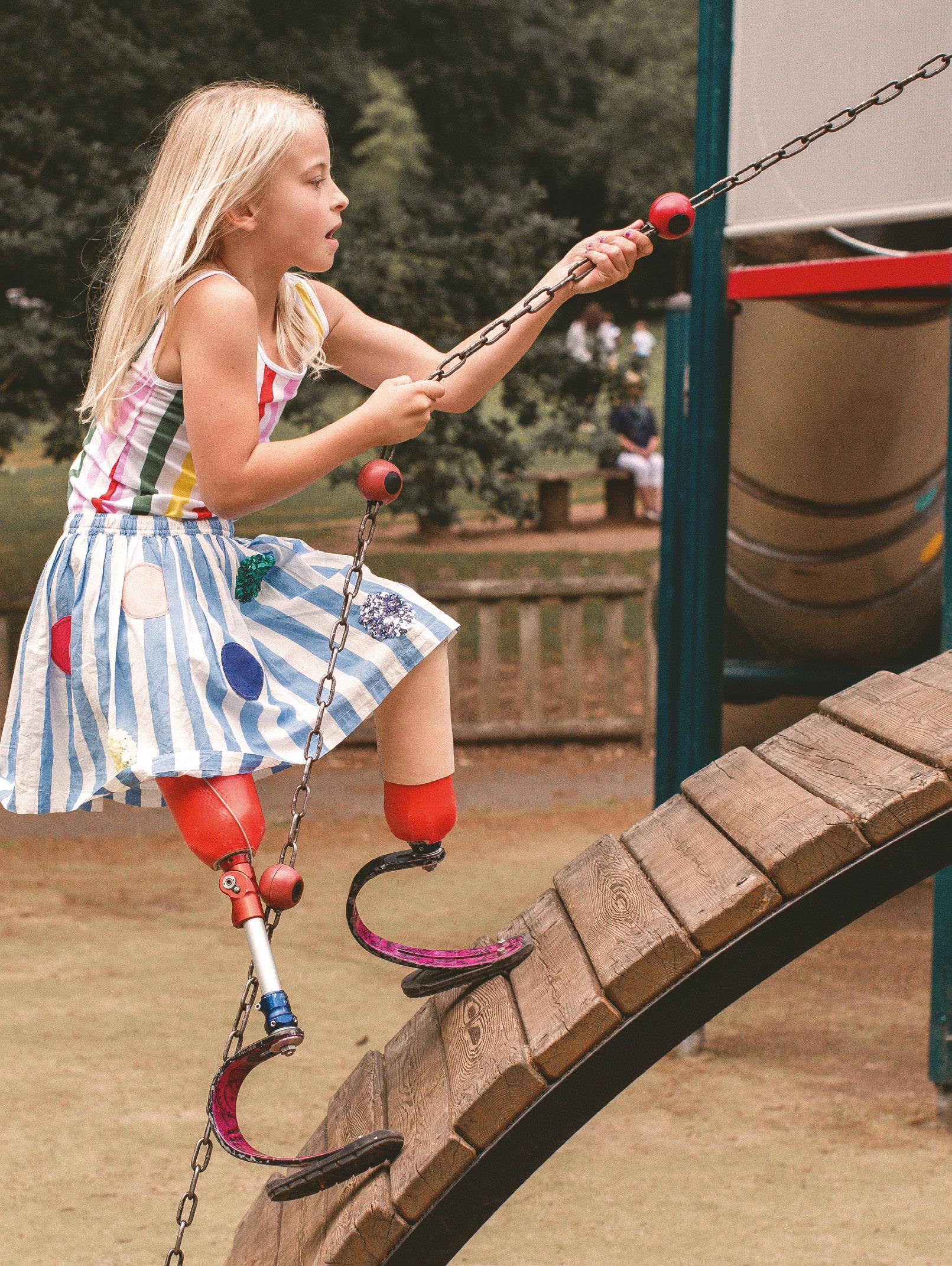

1300 789 845 www.atsaindependentlivingexpo.com.au Media Partners Australia’s foremost assistive technology event BY THE INDUSTRY FOR THE INDUSTRY Organised by PERTH 14-15 MAY 2025 CLAREMONT SHOWGROUND Claremont WA 6010 MELBOURNE 20-21 MAY 2025 MELBOURNE SHOWGROUNDS Ascot Vale VIC 3032 GALA DINNER 20 MAY 2025, MELBOURNE
Publisher Simon Cooper
Editor
Kymberly Martin
kymberly@intermedia.com.au
Advertising
Michelle Stevens
mstevens@intermedia.com.au 0419 822 717
Design
Sarah Vella
Prepress
Tony Willson
Production Manager
Jacqui Cooper
Subscribe
To subscribe visit www.intermedia.com.au
P: 1800 651 422 or E: subscriptions@intermedia.com.au www.linkonline.com.au
Link is published six times a year by Interpoint Events Pty Ltd.
ABN: 9810 451 2469
A: 41 Bridge Road, Glebe NSW 2037
P: +61 2 9660 2113
F: +61 2 9660 4419
Reprints from Link are permitted only with the permission of the publisher. In all cases, reprints must be acknowledged as follows: ‘Reprinted with permission from Link Magazine’, and must include the author’s byline.
The opinions expressed in this publication are those of the authors and do not necessarily represent those of the publisher.
The Intermedia Group takes its Corporate and Social Responsibilities seriously and is committed to reducing its impact on the environment. We continuously strive to improve our environmental performance and to initiate additional CSR based projects and activities.
As part of our company policy we ensure that the products and services used in the manufacture of this magazine are sourced from environmentally responsible suppliers. This magazine has been printed on paper produced from sustainably sourced wood and pulp fibre and is accredited under PEFC chain of custody.
PEFC certified wood and paper products come from environmentally appropriate, socially beneficial and economically viable management of forests.
From the Editor
This issue covers a lot of ground and is being led to some extent by dogs. Heading the dog squad is an informative article on page 19 about visiting Australian zoos with an assistance dog, where preparation is essential. You can also meet Beau an assistance dog for a young girl from Queensland with KdVS…and no I had not heard of it either, on pages 16-17.

Our Assistance & Therapy Dog feature on pages 58-61 includes articles on assistance animals as a type of assistive technology and the power of pet therapy in rehabilitation and in schools. There is also recent research from Guide Dogs NSW on the footpath challenges people with vision impairment can encounter curbside.
And we have a Para Dancer in our midst. Danni Stitfall who was born with spina bifida features in our cover story. She was the first Australian to compete in the International Dance Championships in Japan and is competing in the Australian Para Dance Champions in December.
Read about the tortuous journey Vietnamese refugee Loc Tang faced 40 years ago and his battle with vision loss at age 23 which he now regards as a superpower, not a disability.
The author of the Book List on page 66, Les Pobjie, who is blind, has designed a board game for people with vision impairment, and is trying to get someone interest in developing it further. It does not carry braille or text but uses 3D printed dice that guides players through the game.
And for those who cannot resist a sweet treat there is a family business in Warwick, Queensland that is producing individual gourmet cake mixes that you can bake in a cup, and founder Karyn Mills who has muscular dystrophy, has a special offer for Link readers. Turn to page 26. There is also a product giveaway on page 70, with three gift packs from Australia’s first beauty brand to develop a mascara for people with low vision.
Kymberly Martin/Editor - kymberly@intermedia.com.au
AUGUST/SEPTEMBER 2024
• Accommodation & Home Support
June/July 2024
• Plan Management
Advertising booking date: June 21, 2024
Advertising Material deadline: June 26, 2024
Publication date: August 1, 2024.
For article proposal, contact the Editor: kymberly@intermedia.com.au
For advertising, contact the Advertising Manager: Michelle Stevens 0419 822 717 mstevens@intermedia.com.au

4 linkonline.com.au
NEXT ISSUE Like us on Facebook /linkdisabilitymagazine

Endeavour Foundation’s individualised support service is all about your goals, interests, and lifestyle.
From developing daily living skills to engaging with your local community, our passionate staff will support you as you take the steps to live the life you want.
Learn how you can live your best life with Endeavour Foundation at endeavour.com.au.
way.
Your support, your
Achieve your goals with Individualised Support!
On a roll - Danni dazzles with PARA DANCING SUCCESS
By Sally White
DanniandJamespracticing

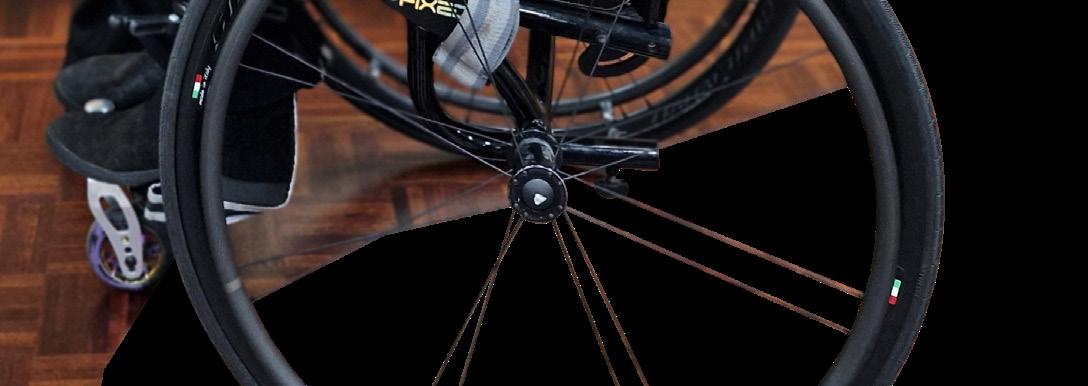
Danni Stitfall is a self-confessed introvert. Quiet, reserved and thoughtful she avoids being the centre of attention, so it may come as a surprise to learn she is a top Australian Para Dancer.
“It doesn’t make sense for an introvert, but dancing brings me out of my shell. It’s an outlet that I find emotionally comforting. I feel I can express myself once I’m out on that dancefloor.”
Last year, Stitfall, who was born with spina bifida, and her then dance partner Darryl Davenport made history by becoming the first Australians to compete in the International Para Dance Sport Championships. Held in Tokyo, Japan, they were placed 12th in the Standard Dance category.
“It was such a privilege to represent Australia for the first time and be recognised on the world stage,” she told Link
Para Dance is for individuals with a physical impairment affecting the lower limbs. Participants can compete solo, or with another wheelchair dancer, or with an able-bodied partner and Stitfall pairs with her able-bodied dancer, Bardill. Categories are Standard (waltz, tango, foxtrot and quickstep), Latin America (cha-cha-cha, rumba, jive and samba) and Freestyle (any style dance).
Para Dance is growing in popularity, largely due to mainstream dance-based television shows like ‘Strictly Come Dancing’ and ‘Dancing with the Stars’.
Stitfall, who is 39, said dance is physically demanding and she spends many hours perfecting her routines.

I meet Stitfall at one of her dance lessons 48 hours before she performed in front of the West Australian Governor,
Christopher John Dawson at Government
Gliding along in her wheelchair, Bardill sashays across the floor, leading Stitfall into an elegant twirl. She oozes confidence and is naturally expressive and there is strength, grace and passion in each of her spins.
“Every time I finish my training, my body tells me I have been working hard. I feel it in my arms, my core and my shoulders. I must hold my position while dancing so my back muscles get a real workout.”
It is also not without risk as she nearly fell out of her wheelchair while once performing an energetic tango.
Link to... Cover Story June/July 2024
6
“That was a near miss, the fabric of my dress became tangled underneath me. I wasn’t wearing my wheelchair seat belt, and I learned a lesson!”
2023 has so far been the highlight of her dancing achievements. Not only did she travel to Tokyo to compete at her first international competition but qualified to compete at the World Para Dance Sport Championships in Genoa, Italy.
This year, she has boldly set herself an exciting new challenge, competing solo.
“Yes, it is quite scary, but if I am to advance to the next level of my dancing, I need to take myself out of my comfort zone and keep pushing my boundaries.”
It’s a far cry from her early years. Born in New Zealand, her family moved to Australia when she was 14.
“My teenage years were pretty tough. I attended mainstream secondary schools and bullied for being different. It was hard to make friends, especially after moving to Perth.”
Her father, a guitarist, encouraged her to play the guitar. While she never really sustained interest in the instrument, her appreciation of music never waned.
After Year 12 she went to TAFE to study business administration and for 15 years has worked at the State School Teachers’ Union of WA.
Like many youngsters with a disability, she was encouraged to take up sport –trying basketball, athletics, tennis and swimming. Sport led her to meet her future husband Bryan, who was placed sixth in the discus at the Commonwealth Games in 2006.
Dancing through disability
It was because of her appreciation of music and a need to exercise that she took up Zumba in 2017. At the time it was the closest she could get to dancing, but as luck would have it that same year, she was approached by Rebound WA, a not-for-profit empowering West Australians with physical disabilities to participate in
sport. Rebound WA partnered with Dance Sport WA to encourage people to try Para Dance through a pilot program. Stitfall was one of several people, affectionately known as ‘wheelies’ who decided to give it a go.
“It resonated with me instantly. It became my platform for selfexpression. I could become the confident person I hadn’t been before.”
It’s not cheap being a Para Dancer. A specially designed wheelchair costs $11,000. Fortunately, she was funded under her NDIS plan through her technology allocation.
“My wheelchair is lightweight and made of carbon fibre. I have to buy bright sparkled ballroom dresses, make-up, accessories like jewellery and the costs mount up,” she said. “On top of this, there is travel. There are a few grants available, but it takes time to apply for them and I am not always successful.”
Until the beginning of this year, her able-bodied dance partner was Darryl Davenport, an accomplished dance coach who has secured multiple dance titles in State, Australian and New Zealand Dance Sport championships. Davenport is the founder of Ballroom Fit in Perth, a dance school that specialises in dance for people with disabilities.
He has now handed over the partnering reins to Bardill, so he can concentrate on his adjudicating and coaching. He said the time is right to make way for younger talent.
“I am in my late 50s and it is time to let other people come through who have a fresh, approach with a style that is more modern.”
Bardill realises he has big (dancing) shoes to fill. “I’m a current under 21 Australian Ballroom Champion and I like to think I bring new energy and ideas. We’ve been dancing together since the beginning of the year and we dance intuitively with each other,” he said.
While Western Australia is leading the way in Para Dance, they all agree that what Perth needs now is a permanent building designed specifically to
accommodate dancers to nurture new talent where they can practice and rehearse.
At the moment, they move around various community centres which is far from ideal.
Para Dance is not a Paralympic sport, yet. World Para Dance Sport applied to have it included in the Paris 2024 Paralympic Games and 2028 Los Angeles Paralympic Games. The proposal progressed to Phase Two of the processes each time but did not make it further. However, there’s growing momentum to make it happen.
Stitfall said it would be fantastic to have Para Dance integrated in time for the Brisbane Olympics in 2032. “Competing on home turf would be a dream come true.”
Just eight years to go and she could be heading towards a Paralympic Gold, fueled by finesse and the force of wheel power. The Australian Para Dance Champions take place in December and Stitfall will once again be competing.
If you live in WA and would like more information about Ballroom Fit, head to: www.ballroomfit.com.au

Danni and Darryl doing the rumba
COVER STORY linkonline.com.au 7








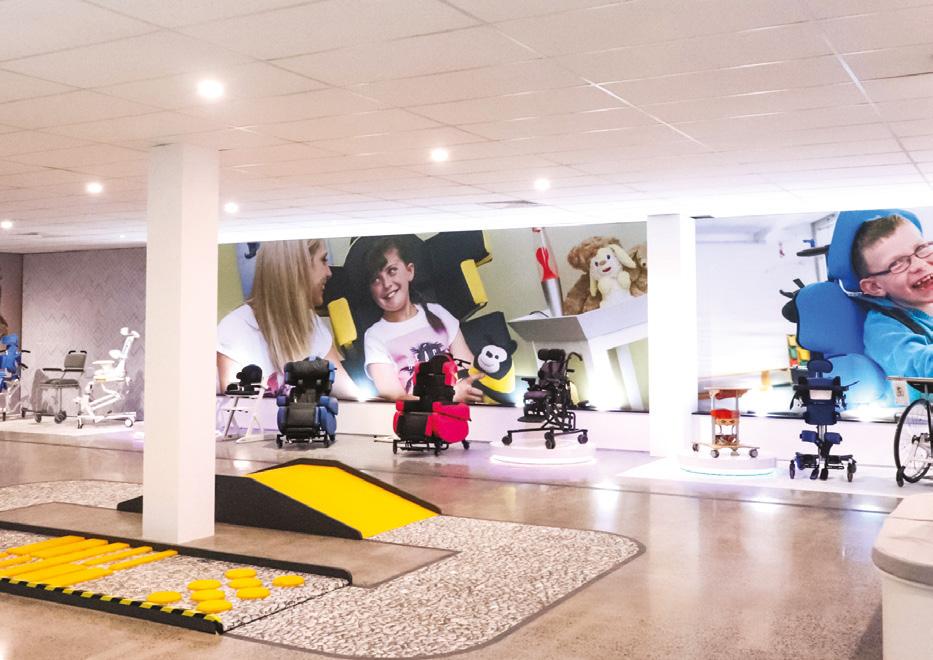
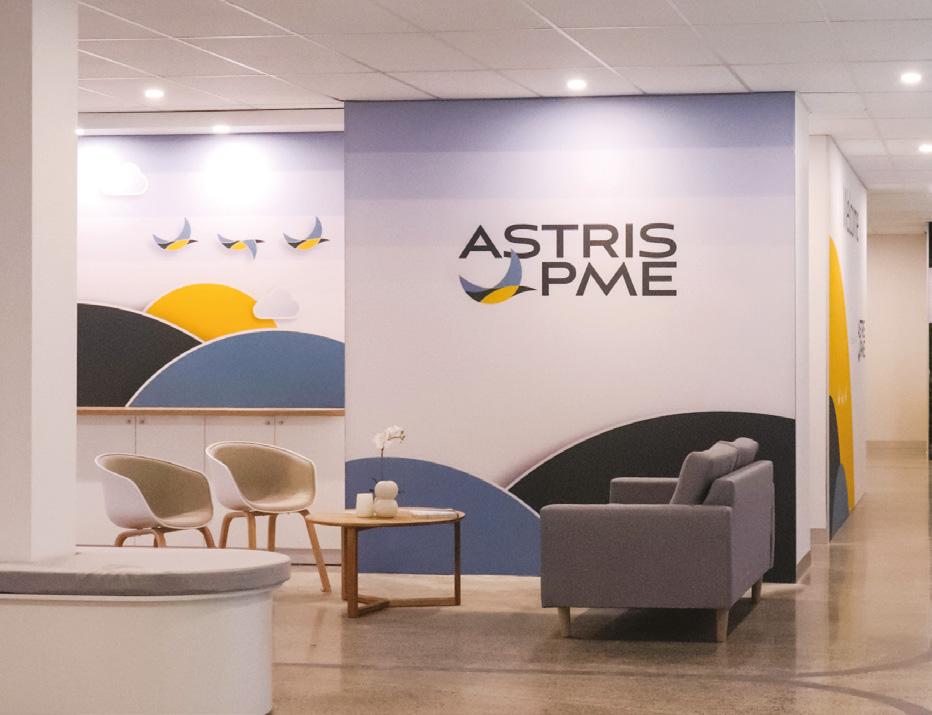

Come and visit one of Astris PME’s interactive showrooms and explore our world-class range of Assistive Technology equipment. We’ve recently opened new branches in Melbourne and Wollongong. You’ll also find us in Sydney, Newcastle, Young, Canberra and Brisbane.
Come and visit one of Astris PME’s interactive showrooms and explore our world-class range of Assistive Technology equipment. We’ve recently opened new branches in Melbourne and Wollongong. You’ll also find us in Sydney, Newcastle, Young, Canberra and Brisbane.
Discover our vast range of
Discover our vast range of quality specialised AT products that promote independent, active lifestyles. Make an appointment for a free
expert advice.









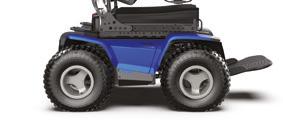





















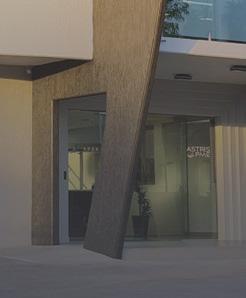
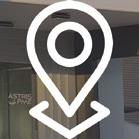




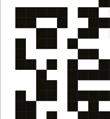
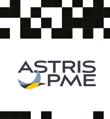



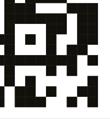
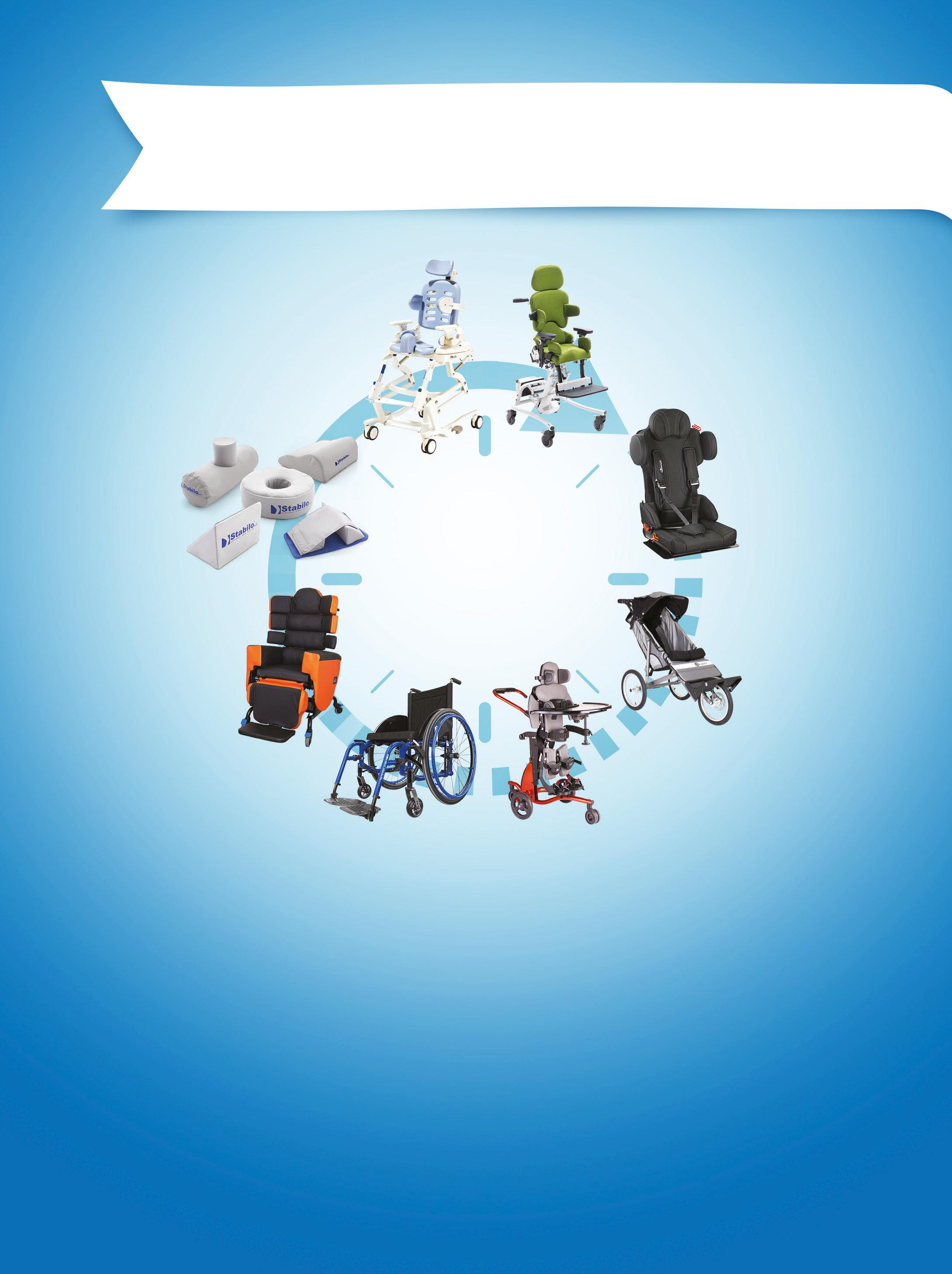
Experience the Astris PME difference!
Specialist
HIRE & SERVICE AVAILABLE 1300-131-884 | astris-pme.com.au Showrooms throughout NSW • ACT • VIC • QLD Manual Wheelchairs Outdoor Recreation Car Seats Alternate Seating Tilt-In-Space Wheelchairs Standers & Gait Trainers Wheelchair Seating Systems Powered Wheelchairs Hygiene & Bathroom Trikes & Bikes Scan the QR code to find your closest showroom Find Us!
the Astris
difference!
equipment trial with one of our
Consultants and experience personalised service and
Experience
PME
quality specialised AT products that promote independent, active lifestyles. Make an appointment for a free equipment trial with one of our Specialist Consultants and experience personalised service and expert advice. HIRE & SERVICE AVAILABLE 1300-131-884 | astris-pme.com.au Showrooms throughout NSW • ACT • VIC • QLD Manual Wheelchairs Outdoor Recreation Car Seats Alternate Seating Tilt-In-Space Wheelchairs Standers & Gait Trainers Wheelchair Seating Systems Powered Wheelchairs Hygiene & Bathroom Trikes & Bikes Scan the QR code to find your closest showroom Find Us!


























24-Hour Positioning

















* Conditions
Schuchmann Madita Fun Rifton HTS Thomashilfen Hercules Prime 10AM12PM 8-10 AM 6-8 AM 9PM6AM 12-2 PM 2-4 PM 4-6 PM 6-9 PM Akces-Med Kukini Rifton Multistander Motion Composites Helio C2 StabiloBed Sleep System Careflex SmartSeat Pro II NEW NEW NEW NEW UPDATED UPDATED New Releases! DEALERS THROUGHOUT AUSTRALIA AND NEW ZEALAND apexmobility.com.au 1300 212 192 APEX Mobility supplies Australia and New Zealand’s largest range of specialised Assistive Technology equipment and supports for 24hr positioning, mobility and care. Contact us to be connected to your local dealer for a free trial!* * Conditions apply
Theatre For everybody
By Olivia Karaolis
“Theatre is the Art of Looking at Ourselves” - Augusto Boal.

Around one in six people (18 per cent) have a disability in Australia. Yet how often do this 18 per cent of people see themselves in art, on television, in movies, books, online or on stage? How often are we hearing their stories or playing a part in the sharing the story of our society?
No Strings is a professional theatre company that reflects the diversity of our society and works exclusively with performers with disability. The theatre company provides a unique platform for the performers to develop their artistry and showcase their work, telling their stories that add to a truer picture of the lives of people with disabilities and removing some of the assumptions made about their lives in the broader community.
Assumptions that are frequently untrue
One such assumption is that people with disability do not graduate from
university. Rachel High was the first person with Down syndrome to graduate from university and in collaboration with No Strings, wanted to tell her story and by doing so, encourage people with disability to pursue degrees in higher education.
As a lecturer of Special and Inclusive Education, I believe our universities should be inclusive to all learners and welcome all students, including students with disability.
A theatre company that shines a light on the lived experience of disability that is authentic and led by a disabled artist plays an important part in our journey, slow as it is, towards an inclusive society.
No Strings has a record of national and international productions, such as Amplify! a performance in Adelaide that showcased the work of 39 actors with disability and was directed by local professional directors. The beauty
of No Strings lies in the collaborative approach applied to every aspect of their programming, the co-design with disabled performers and theatre professionals as mentors.
The company offers theatre skills workshops that foster self-expression, communication, collaboration and wellbeing in the development of social awareness and emotional intelligence through theatre and drama.
Participants can explore creative writing, comedy, physical theatre and drama. The classes also offer a place to form connections and experience a sense of community.
Theatre has a history of bringing us together, to share in an experience that reminds us of our humanity and to peek into the lives of others.
Dr Olivia Karaolis, lecturer, Special & Inclusive Education, University of Sydney.
Link to... News
10 June/July 2024
nib launches NDIS business, nib Thrive
You may know of nib as a Newcastle-based health insurance provider with over 70 years of experience in connecting people with providers of healthcare services and products. Now, nib’s vision extends beyond traditional health insurance, to supporting Australians living with disabilities, and their families.
nib Thrive is nib’s newly launched NDIS business. Building on the credentials earned in the private health insurance sector, nib Thrive brings the same reliability and efficiency nib is known for to the disability sector.
More than just payments and invoices, nib Thrive’s plan management offering makes navigating the NDIS and managing plan budgets simple. With fast and effortless provider payments, an online portal with budget tracking
and comprehensive budget reporting, nib Thrive puts participants at the heart of all they do.
Backed by a nationwide team of experienced and supportive plan managers, nib Thrive offers participants support to get the most out of their NDIS plan and guidance on navigating the complex world of support services.
“Together, we’re creating a healthier, more accessible world”…Dylan Alcott
Paralympian, former Australian of the Year, and nib's chief motivation officer Dylan Alcott, has a passion for advocacy that resonates deeply
with nib Thrive’s commitment to empowering individuals living with disabilities. Together, Alcott and nib envision a world where health and well-being are not limited by ability.
“nib Thrive isn’t just about healthcare; it’s about ‘whole’ care. Our dedication to enhancing the lives of people with disability is not just a statement, it’s action. Together, we’re creating a healthier, more accessible world,” Alcott said.
Backed by decades of experience in keeping Australians healthy and supporting their wellbeing, the launch of nib Thrive is an exciting milestone in providing quality, supportive, and accessible plan management services.
Learn more by visiting: nibthrive.com.au or call: 1800 999 333.

Call 1800 999 333 or visit nibthrive.com.au to find out more

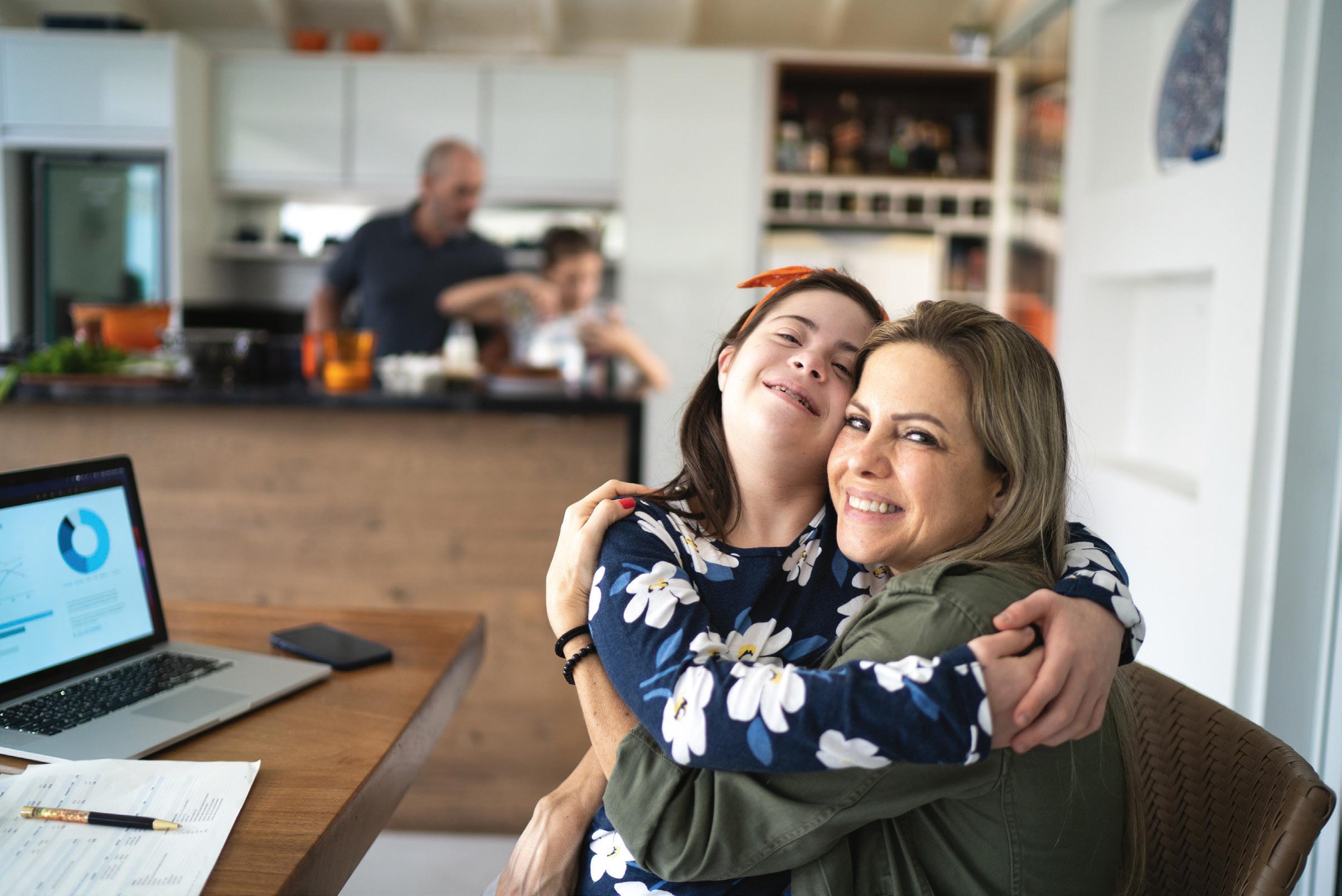
just plan management.
More than
Link to... Plan Management linkonline.com.au 11
Individualised support - your gateway to independence

Imagine being able to do the things you love, explore your city, and live independently. For people with a disability, this can sometimes feel out of reach, but with individualised support, it's absolutely possible.
Tailored to you, focused on your goals
Individualised support isn't a one-sizefits-all solution. It's about getting help designed specifically to your wants, needs, and interests. But how does it really make a difference in people’s lives?
Meet Jayden Sturgess: Independence through adventure
Jayden, like many others, works with a support worker to plan activities he enjoys. Whether it's going out on public transport or enjoying the nightlife, Jayden decides what he wants to do and when he wants to do it.
Exploring the city his way
Jayden loves going on adventures in his hometown of Brisbane. With the
help of his support worker, Jaimee, he gets to explore different parts of the city, using buses, trains, and ferries, making every trip an exciting journey.
One of his favourite things is to go out at night. He and Jaimee often go clubbing together. They catch a ferry to the city and dance the night away. Jayden loves the music and the energy of the nightlife scene.
Beyond fun: Building skills for life
Individualised support goes beyond just having a good time. Jayden, with Jaimee's guidance, tries new recipes, learns to cook, and tackles grocery shopping, all of which build valuable life skills and independence.
Friendship and Support: A winning combination
Jaimee isn't just a support worker to Jayden; she's a friend, and enjoys helping Jayden do the things he loves, like going clubbing. She believes that everyone should have the chance to
enjoy life to the fullest, regardless of any challenges they may face.
Jayden's message: It can change your life. He wants others to know that individualised support can change lives for the better. He encourages anyone who needs help to give it a try. “Go on, if you want individualised support, nothing's going to stop you,” he said.
Empowerment, not just support
Individualised support is more than just getting help, it's about empowerment. It's about celebrating what makes each person special and helping them live their best life. Through stories like Jayden's, we see the impact that individualised support can have on people's lives.
FAQS: GETTING STARTED
What kind of activities can I do?
Community participation is more than going to the local shopping centre, it’s about what being social means to you. Whether it's lunch with friends or attending concerts, we tailor support to what you want.
How does Endeavour Foundation match people?
We’ll chat with you about your goals, likes and interests, and use this information to find a support person who is aligned with you. You will meet them and decide if the match is right.
How quickly can I get started?
We can match you with a support worker within five business days and begin providing services as soon as you are ready.
Why not give it a go yourself? Find out more by calling Endeavour Foundation on 1800 112 112 or visit: endeavour.com.au
Link to... Support Services
12 June/July 2024
Jayden Sturgess with support worker Jaimee Stirling
My Future, My Choice Disability Expos – two new venues for 2024
Presented by Impact Institute, the My Future, My Choice Disability Expo’s stand as an exceptional occasion designed to empower and uplift individuals, along with their families and caregivers, who are navigating life with disabilities.
Centered around the theme of choice, these expos bring together a consortium of hundreds of service providers, spotlighting an array of medical and wellness services, long-term care alternatives, diverse financial opportunities, travel possibilities, lifestyle enhancements, sports engagements, cutting-edge equipment, assistive technology and mobility aids tailored to individuals of all capabilities.
Spanning across two days, attendees are presented with a valuable opportunity to glean insights from
speakers representing governmental bodies and advocacy organisations. Beyond the enriching sessions, the expo extends an array of all-ages entertainment, live stage performances, fully provisioned cafes, and ample seating. This approach creates a warm and inclusive atmosphere, fostering connections, sharing experiences and mutual learning.
The My Future, My Choice Disability Expo’s represent a comprehensive event catering to the diverse needs and curiosities of individuals living with disabilities, as well as their networks of support.
It serves as an invaluable platform to explore the latest advancements and services within the disability sector, learn from esteemed experts in the field, and establish connections within a community of kindred spirits.
The next three expos are Canberra Disability Expo, from September 1-3, at EPIC; Brisbane Disability Expo, on October 13-14 at Royal ICC and the Melbourne Disability Expo November 17-18 at MCEC.
Check websites for all details at: canberrradisabilityexpo.com.au; brisabanedisabilityexpo.com.au and melbournedisabilityexpo.com.au.
The expo program for 2024 has been announced with two additional venues added to the mix – South-West Sydney and Geelong.
If you are interested in exhibiting visit impactinstitute.com.au for all information or if you would like to follow on social to attend the expos for free, check out South- West Sydney Disability Expo and Geelong Disability Expo on Facebook.



We’re thrilled to present the upcoming 2024 program of My Future, My Choice Disability Expos, brought to you by ImpactInstitute, taking place at different locations along Australia’s eastern seaboard. These Expos aim to unite disability product and service providers with attendees, whilst sparking creativity and empowering attendees for a brighter tomorrow.
We’re excited to present the Hunter Disability Expo next, on Friday 10th & Saturday 11th May 2024, from 9am - 3pm, at the Newcastle Entertainment Centre, Broadmeadow. Best of all, entry is FREE!
Exhibitor space is filling up fast, so don’t miss out – contact us today to secure your spot!
More choice, more impact from Australia’s biggest disability expos My Future, My Choice events@impactinstitute.com.au 02 9025 9380 FREE ENTRY 2024 EXPO CALENDER canberradisabilityexpo.com.au southwestdisabilityexpo.com.au melbournedisabilityexpo.com.au
hunterdisabilityexpo.com.au 2 & 3 AUGUST 23 & 24 FEBRUARY 1 & 2 NOVEMBER brisbanedisabilityexpo.com.au 10 & 11 MAY 6 & 7 SEPTEMBER 22 & 23 MARCH 22 & 23 NOVEMBER 7 & 8 JUNE
goldcoastdisabilityexpo.com.au sydneydisabilityexpo.com.au geelongdisabilityexpo.com.au
Link to... News linkonline.com.au 13
NDIS Provider and Worker Registration Taskforce
By Natalie Wade
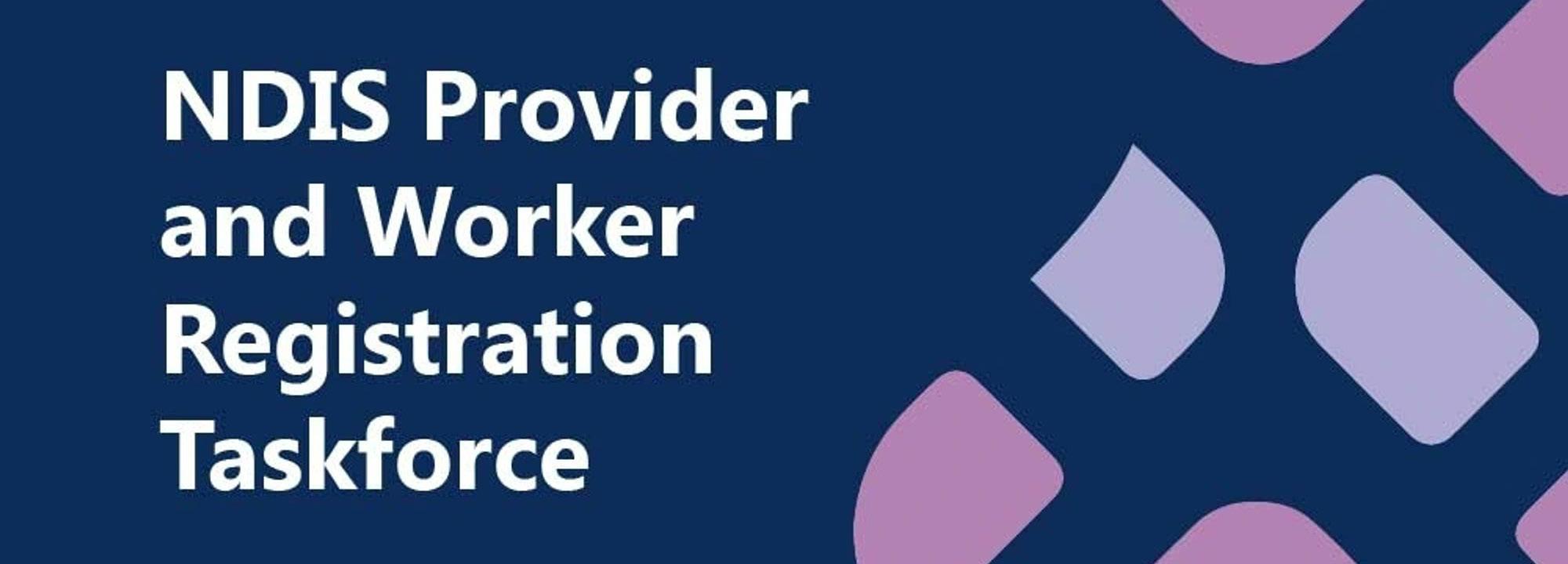
In February 2024, the NDIS Minister Bill Shorten, announced the NDIS Provider and Worker Registration Taskforce, comprised of:
• Natalie Wade, disability rights lawyer (Chair)
• Michael Borowick JP, former ACTU assistant secretary;
• Vicki O’Halloran, former Administrator of the Northern Territory and former president of National Disability Services Australia;
• Professor Allan Fels, former chair of the Australian Competition and Consumer Commission.
The Taskforce is established following Recommendation 17 of the NDIS Review which specifically recommended:
• Design and implement a graduated risk-proportionate regulatory model for the whole provider market (17.1)
• Develop a staged implementation approach to transition to the new graduated risk-proportionate regulatory model (17.2), and
• Amend the National Disability Insurance Scheme Act 2013 to remove the link between a participant’s
financial management of their plan and the regulatory status of their support providers (17.3).
Accordingly, the Taskforce is asked to provide advice on:
• The design and implementation of the recommended graduated risk-proportionate regulatory model, as it relates to upholding the rights of people with disability to exercise choice and control,
• A Provider Risk Framework that identifies and evaluates the risk profile of different types of supports and providers,
• Arrangements for platform providers and circumstances where participants directly employ their workers.
To prepare their advice, the Taskforce is supported by subject matter experts who form the Advisory Working Groups (AWGs) to co-design specific activity in areas of concern. The five AWGs by focus area include:
• Participants and Nominees;
• Disability Care Workers and Organisations;
• Providers and Regulators;
• Intergovernmental;
• Academic and Policy.
Reflecting the importance of ensuring that people with disabilities, their families and carers, the NDIS market, workforce representatives and other relevant stakeholders are heard through the Taskforce’s work, significant engagement opportunities have been made available including:
• More than 30 roundtables on specific topics,
• Webinars for areas of significant concern like Choice and Control and self-managers and self-directed support, and
• An open submission process.
The Taskforce acknowledges the distress that has been caused to some in the disability community and sector following recommendation 17 and we appreciate people continuing to engage with us on this topic in those circumstances.
The taskforce is due to report in mid-year.
Natalie Wade, founder and director, Equality Lawyers – 08 7084 1190 or natalie@equalitylawyers.com.au
Link to... News 14 June/July 2024
Join ATSA: Elevate your business, empower our industry
mentorship, ATSA connects you with like-minded individuals committed to excellence and innovation.
Industry recognition: ATSA shines a spotlight on the AT sector, increasing public awareness of its transformative impact on individuals' quality of life. Our Independent Living Expos offer unparalleled opportunities to showcase your products and services, forging valuable alliances within the industry.
Join ATSA today: Be part of the change
Are you ready to elevate your business while making a meaningful impact in the assistive technology (AT) sector? Look no further than Assistive Technology Suppliers Australia (ATSA), your gateway to a thriving community of industry leaders, innovators and advocates.
Established in 2000 by a group of AT specialists, ATSA serves as the industry body, championing the interests of AT suppliers across Australia. Our mission is simple yet profound: to promote and support an industry to empower people living with disability and older persons to live independent lives.
Why Join ATSA?
As a member of ATSA, you gain access to a wealth of resources, services and connections designed to empower your business and advance our industry. Here's why joining ATSA is a gamechanger for your organisation:
Government advocacy: The AT industry is subject to continuous changes in legislation and funding, impacting businesses significantly. ATSA keeps abreast of government and industry reforms and provides
you with regular updates to keep you informed of changes that may affect your business and peoples’ lives. We amplify your voice on issues, ensuring that your concerns are heard, and your interests are represented in the decision-making process. Our collective advocacy efforts influence policy development, safeguarding the future of your business.
Business support: Navigating policy changes and industry standards can be daunting, but as an ATSA member, you'll receive expert guidance and insights to stay ahead of the curve. Our briefings provide context and clarity on regulatory shifts, ensuring you make informed decisions and implement best practices with confidence.
ATSA also link with business experts to provide free training to ATSA members, assisting you to strengthen your business processes, working smarter – not harder!
Networking opportunities: ATSA fosters meaningful collaboration among industry professionals, creating a network of advisors, suppliers, and experts. Whether you're seeking business partnerships or seeking
Ready to take your business to new heights and shape the future of the AT industry? Join ATSA today and unlock a world of possibilities:
Be heard by government policymakers as we advocate for regulations that support your business.
Gain insights into the latest industry developments and regulatory changes, ensuring compliance and competitiveness.
Access exclusive discounts and priority bookings for exhibition space at ATSA Independent Living Expos.
Network with industry leaders, advisors and suppliers, fostering collaborations that drive innovation and growth.
Safeguard your business and livelihood with the support of a trusted industry body committed to excellence.
Don't miss this opportunity to join a community dedicated to advancing the public interest in the provision of AT. Visit www.atsa.org.au or contact us at: info@atsa.org.au to become a member today.
Together, let's build a future where AT transforms lives and empowers individuals to live equitable, independent lives.
Link to... News linkonline.com.au 15
Creating communities around lesser known disabilities
By Jayne Keogh
Medical researchers are finding more previously undetected rare disorders and syndromes. Whilst this is concerning, for those affected and their loved ones, it offers hope for the future.

An example of this is a syndrome discovered by two Dutch neurologists in 2008. Koolen-de Vries syndrome (KdVS) is named after both neurologists. It is a rare genetic disorder is caused by a deletion on a segment of the 17th chromosome, characterised by developmental delays, learning difficulties and seizures, with an estimated prevalence of 1 in 30,000 people worldwide.
An admiring passing glance frames the caring mother, a friendly and young girl, and a chocolate labrador out for a stroll. The passerby would not guess that the lives of Mel Greenwood, Chloe and Beau are defined by KdVS, but the assistance dog coat should be a clue.
“Chloe wasn’t diagnosed with KdVS until she was aged one,” Greenwood told Link. “After that we realised there were signs that weren’t picked up due to her disability being so rare. Unless a paediatrician or neurologist has treated a patient with it, they are unlikely to recognise it.”
The early warning signs started with Chloe’s turned eyes, which surgery fixed, and a hip displacement which put her in a brace for 24 hours a day. “As a baby she was a poor feeder and very placid, too placid really. Then the worst part was the seizures, which became more frequent and up to two hours long,” Greenwood said.
Chloe then had a grand mal while in the Queensland Childrens Hospital for something else when clinicians picked it up and tested her genes.
Greenwood said two things that changed Chloe and the family’s life
Link to... Profile
16 ChloeandBeau June/July 2024
were the NDIS and Beau. “Before the NDIS, my husband James and I were on our own and decided to relocate back to Brisbane from Perth for support from our extended families.”
“KdVS children are extremely happy, loving, kind and caring.”
Beau is a fully trained assistance dog who can read Chloe’s mood if she becomes anxious, which she masks by putting on a happy face. But it doesn’t fool Beau, who calms her by placing his head on her lap or sitting very close to her. Like many assistance dogs, they can sense when their human is about to have a seizure, through a change in mood and their sense of smell. Apparently, a particular odour is released that is undetectable to humans, but dogs have an amazing sense of smell. Apart from school hours Beau is with Chloe all the time and sleeps next to her in his little crate. He is not permitted at school as the trained handlers must be over 18 years. When out walking Mel and James issue verbal commands and control the leash, but Chloe is connected to him by a second loose lead which comforting for her.
School is a delight for Chloe at the Nursery Road Special School, where she has found ‘her tribe’. She was non-verbal until the age of six, cannot read or write and is at kindergarten stage of development at the age of 12, but school delivers socialisation and friendship. “She loves everyone at school, the children, teachers and teacher aids, hugging them all at every opportunity. KdVS children are extremely happy, loving, kind and caring, people gravitate to them. People seem to see past her disability. They have empathy for others but require constant one-to-one care,” Greenwood said.
The NDIS has made a difference to the Greenwood family, who now have a team of allied medical professionals including a speech, occupational and hydro therapists, an exercise physiologist, neurologist and paediatrician. Greenwood also has
high praise for the dedicated team at the Queensland Childrens Hospital where Chloe has spent a lot of time.
Speech pathologist Maryanne Syrmis has worked with Chloe since she was very young and has guided her journey from being non-verbal to be able to speak in simple sentences. “Chloe has verbal dyspraxia, which means she thinks of something she wants to say, puts words to it, but then the process breaks down somewhere and it comes out the wrong way, which is unintelligible to others and extremely frustrating for Chloe,” she said. “But Chloe is very resilient, she just never gives up.”
According to Greenwood this communication achievement is crucial for Chloe to be able to enjoy her life.
…children with KdVS do things in their own time.
Chloe’s future is uncertain, as further research may uncover more treatment, but this is slow as 40 per cent of clinical trials by drug companies are dealing with 7000 rare diseases and conditions globally. However, Greenwood has a lot of support from the international KdVS community via a Facebook group of carers. “They understand the high
level of care needed in personal care, dressing, and undressing and even a small change can make a difference. For instance, we needed to have the hot tap adjusted in the bathroom to warm water only so Chloe can shower without scalding herself. It’s such a little thing but would give her freedom and confidence to do it herself.
“I think the best thing about the KdVS Facebook group is the feeling that you are not alone on this journey. Every single day parents from around the world turn to this group, for answers, support, a place to sometimes vent and also share the ‘wins,’ and beautiful photos of our children, but most importantly we definitely feel we are one big ‘Kool’ family,” she said.
One thing the Greenwood learnt from the group is that children with KdVS do things in their own time.
“Chloe’s determination, Beau’s support and her resilience to keep trying every single day we know will achieve all these things and much more. While she isn’t at the same level as typical children her age, this doesn’t deter her one bit.
“‘A doctor once said to us that Chloe sees the world around her with rose coloured glasses and if everyone had KdVS our world would be a better place,” she said.

PROFILE linkonline.com.au 17 Mel andChloewithBeau
Supporting safe road travel with special purpose car seats
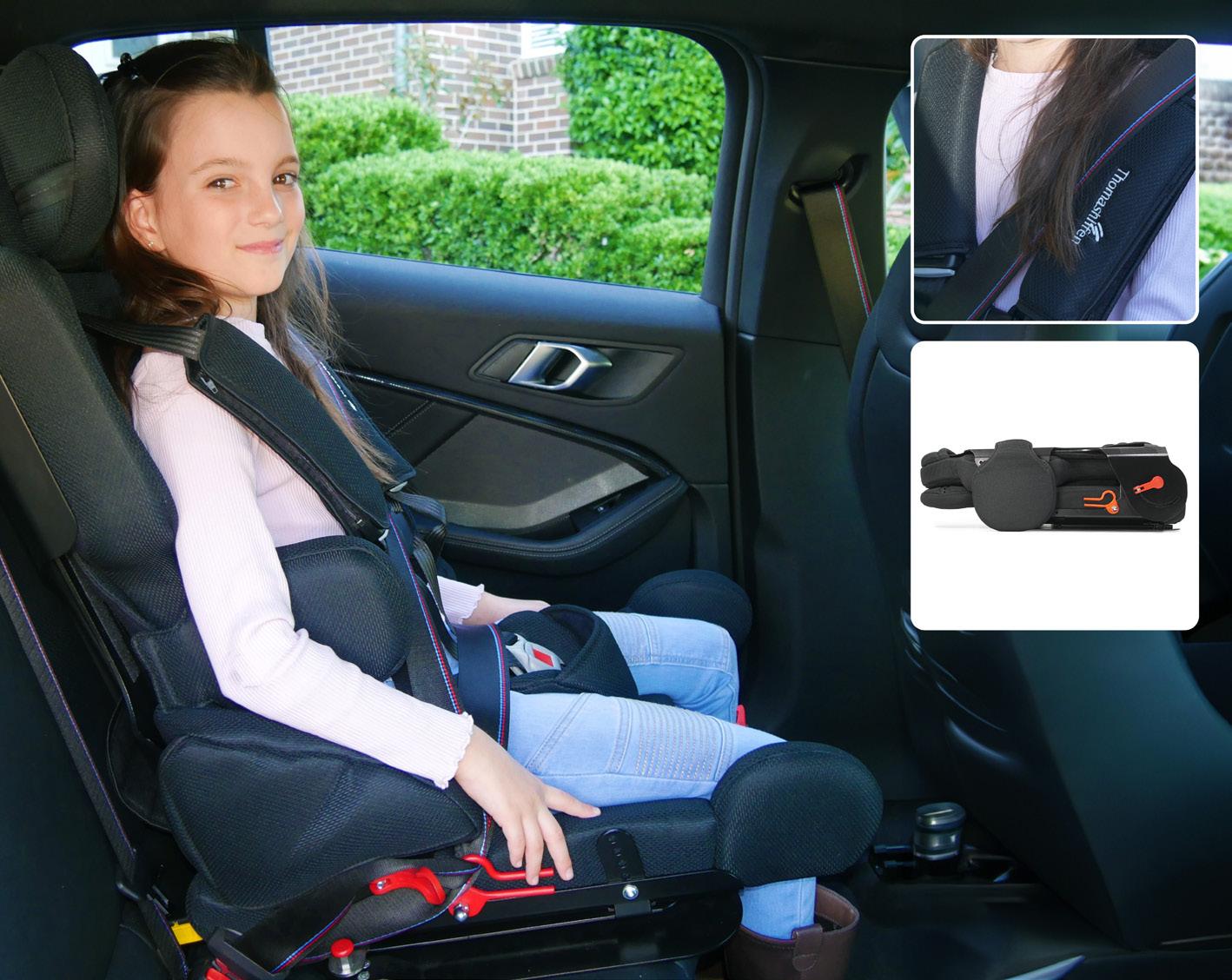
There is no doubt that road safety and travel for children with disabilities, some of our most vulnerable road users, has reached a new level of awareness. Children are at greater risk of injury or death in the event of a car crash, as their bodies are not able to withstand forces from a crash. There is still a long way to go, and many are at work to achieve greater awareness and lasting changes across various sectors in Australia. Fortunately, valuable resources are available through MACA (Mobility and Accessibility for Children in Australia), for families and their support networks (check out macahub.org).
Children under seven years old are legally required to use a car seat while travelling. However, relying solely on the vehicle seat belt may not ensure adequate safety until the age of 10-12. It's recommended to continue using a suitable car seat, which, for some, may be necessary throughout their lifespan.
But what happens if the travel needs of the child and their family cannot be met by a standard car seat and all the options have been ruled out? This is where special purpose car seats come into play, offering features like swivel functions, tilt, and additional supports to overcome difficulties with transfers and address postural needs or behaviours that can compromise safety.
The MACA website lists a range of special purpose car seats that have been independently tested through the Australian Safety Assessment Program. Seats like the Thomashilfen Defender and Hercules Prime offer a safe travel solution for children with disabilities and medical conditions. For families seeking more information on these special purpose car seats, resources like the APEX Mobility and MACA websites offer valuable information on features, compatibility, and where to obtain these seats, helping families make informed decisions.
Collaboration with therapists and suppliers is essential throughout this process:
• Be prepared to discuss travel routines and goals for safe travel, giving consideration to the vehicle/s used.
• Consult with your therapist to work through the outcome of the vehicle assessment and features required to address needs. This will begin to highlight options that could offer a possible solution.
• Be confident in finding a solution by talking to your therapist about potential requirements in your state and territory for travelling with a special purpose car seat and ensure you receive education on the correct installation and safe use of the seat.
• Develop and review the vehicle transport plan with the therapist at a set time. This will also include a review of any special purpose car seat that has been put in place.
Expanding professional support and resources in this domain is pivotal for addressing concerns and fostering constructive dialogue with therapists within the child's care team. Promoting and facilitating safe road travel for children with disabilities requires a collaborative approach. There are many considerations to address, and this goal can only be achieved when everyone works together.
Families should expect to be supported by a best practice approach, which includes MACA’s four step process: Assess, Plan, Implement and Review. This framework ensures a wellsupported, suitable travel solution with a clear motor vehicle transport plan.
Contact APEX Mobility for more information on our range of special purpose seats: email sales@apexmobility.com.au or call: 1300 212 192.
Link to... News 18 June/July 2024
Assistance Dogs: Your guide to zoo accessibility
Venturing into Australia's zoos with an assistance dog is a journey that unfolds the wonders of nature and wildlife, a journey that should be as inclusive and accessible possible. Knowing the guidelines and preparations needed for such visits enhances the experience for everyone.
While Australian zoos and wildlife parks are welcoming to assistance and service dogs, they also uphold necessary quarantine, biosecurity, and animal welfare protocols. These are critical for preserving the well-being of the animals and the integrity of the habitats, not to mention the safety of you and your dog.
It’s important to note that interactive zones, such as walk-through aviaries, butterfly houses, animal feeding, and exhibits featuring native Australian fauna, are sensitive environments
where dogs may not be permitted. However, most facilities offer alternative arrangements, such as having a staff member or volunteer look after your dog, allowing you to enjoy these unique encounters worry-free.
Preparation is crucial. Zoos typically request notice for assistance dog visits, sometimes a week in advance. Be prepared to provide details on your dog's training and up-to-date vaccinations. Also, if your dog is trained to bark as an alert, this could lead to additional restrictions, which are important to clarify beforehand.
While all the restrictions might seem hard to navigate, they pave the way to more inclusive and enriching wildlife experiences. The sensory delights and educational encounters on offer at our zoos and wildlife parks are truly unmatched.
If you want to explore more about Australia’s accessible and inclusive wildlife experiences, read the full article at knowable.me/zoo_insights
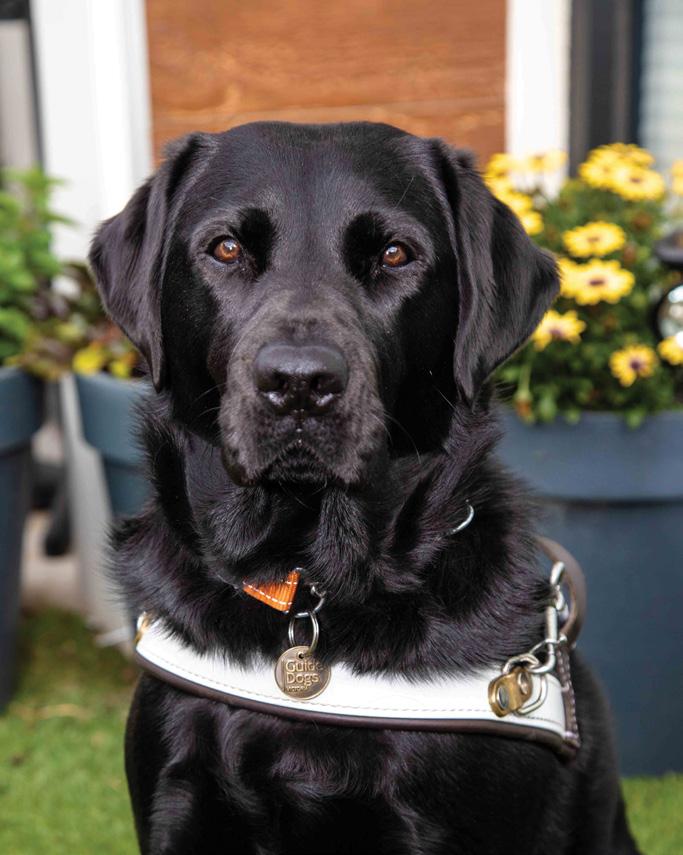

Link to... News
linkonline.com.au 19
Meet Velvet – guide dog for Knowable Me founder, Kelly Shultz
Life’s no drag for these queens: when disability meets drag
The drag scene is having a moment in the spotlight. Danielle Kutchel spoke to three Australian drag queens with disability, who are forging their own paths and smashing stereotypes at the same time.
Charity Steals was born to perform. Her parents were both performers, and she began working in the industry at a young age, doing magic tricks for kids’ parties before moving into modelling. While she describes himself as “quite a shy, quiet, reserved kind of person” – later diagnosed with autism and ADHD at the age of 34 – she said working as a performer allowed her to “push those boundaries [and] pretend to be someone else for a little while”.
It wasn’t long before she got into drag.
“It was not something that I ever thought I would do, to be honest, and not something that anyone that knew me when I was younger would think,” she said. But after getting to know other drag queens and experiencing it for himself, Steals found herself drawn to the artform.
“People are a little bit more open or accepting of your quirky differences when you’re in drag, because I think it’s a bit more of a character,” she told Link.
Intersecting communities
As an autistic person, Steals said this means that if she says or does something that people might consider to be ‘odd’, it gets written off as part of the drag act or character. It also enables her to reach out to individuals who may be having a tough night or seem socially isolated, helping to connect them with others in the venue or community, while bridging her own social barriers.
“I really enjoy just being able to pretend to be someone else for a little while [and] push my boundaries.
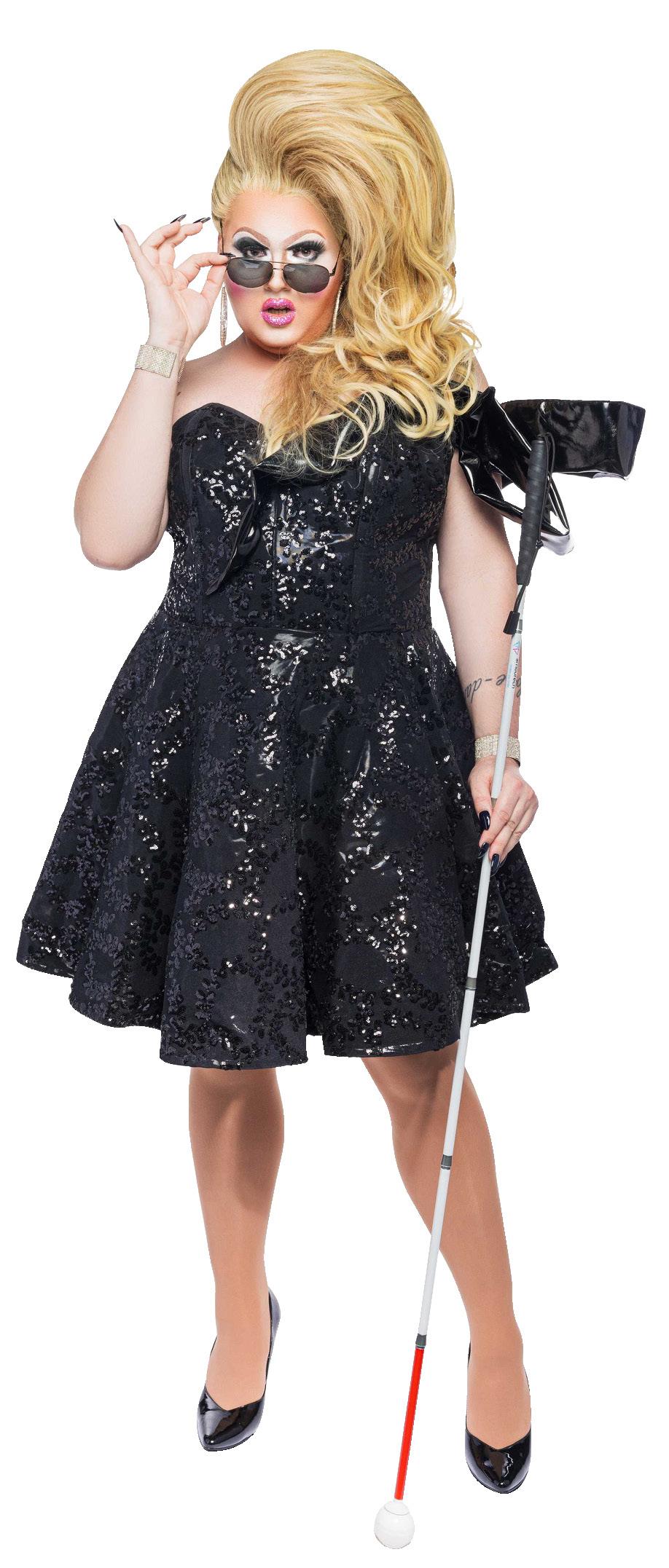
It’s given me a creative outlet as well. When I was younger I went through some hard times, depression, anxiety, and I could just focus it into making crazy headpieces!”
Having worked in the disability field for over 20 years (her drag name is drawn partly from this work), Steals also uses her drag platform to bring awareness to invisible disabilities and help others like her. She incorporates his neurodivergence into her drag, and performed a show called Neuro-Die-Cursed at this year’s Midsumma Festival that was based on her own experience of life with autism.
And she’s committed to helping other people with disability to learn the art of drag, making use of her qualifications in makeup, disability and teaching. Steals has been working with disability organisations to build up clients’ skills in things like drag makeup and performance.
“I’m able to, depending on the person, break things down to how they need it and individualise it,” she said of her makeup teaching.
Celebrating disability
Dizzy Bility is another drag queen forging a path in performing as a person with disability. She was introduced to drag through movies, but after seeing live drag performances, decided this was the art for her. She began on her 21st birthday.
Dizzy Bility is the alter-ego of Petey Walter, a deaf/blind man from Sydney. Despite being told by his ophthalmologist to consider a different career he has continued performing
Link to... Profile
20 Di zz y B i l i t y June/July 2024
as a drag queen, is open about his disability and how this influences his performances and comedy.
“You have to be yourself. The best thing to write is the truth – the truth is way funnier, way crazier, than fiction. I realised that there was no one else like me. Disability is a universal thing, everyone knows someone or everyone understands what it’d be like, I thought it is good to bring it to the stage,” he said.
He believes that people can relate to what he’s talking about in his performances, while the jokes add some lightness to an often complex and taboo topic. Many of his performances are based on his own life, bringing some joy to the tale of lived experience. Sometimes, Walter said, his drag can dispel stereotypes about disability.
“When I started out, I felt like I had something to prove. It was something to overcome. Now it’s not something to overcome; it’s something I use as a vehicle to entertain. People just need to understand and learn. I might be helping someone realise that there’s a spectrum of disability. Blindness comes in so many different forms, and so does hearing loss,” he said.
“The world has changed [since my diagnosis]. People are like, so what if you’re deaf? So what if you’re blind? You can do anything.”
Passion for performing
Helen Wheels got into drag early in the pandemic, following in the footsteps of her twin brother. She told Link it seemed like a good way to connect her interests in makeup and performing.
“When I was in high school I was part of the performing arts program and when I graduated, didn’t know what to do and I didn’t want a plain office job… I wanted to spread happiness and positivity,” she said.
Wheels, who has cerebral palsy and uses a wheelchair, said she also wanted to “inspire people anywhere I can, and prove to people that there are ways [of] doing what you love”.
“When I first knew drag I did not know anyone that had a disability or was like me,” she said.
She believes the drag scene has become more inclusive and accessible over time and is proud of the community that has grown around the two identities. Members of each community help each other; for example, Wheels produces a show, called ‘Ability’, that brings together a number of performers with physical and invisible disabilities and gives them a welcoming space to showcase their craft.
In her own performances she likes to make her wheelchair a central part of her act, using it to “be creative” as she lip syncs and tells stories.
“I want people in wheelchairs and other people with disabilities to understand they can do anything that they put their mind to if they have the passion for it, and to keep going and not let any hate get to them,” she said.
And it seems the message is striking a chord. Wheels was featured on the People with Disability Australia float at this year’s Mardis Gras, one of the world’s largest LGBT festivals.
Making drag inclusive
While drag is generally an inclusive art form, the queens Link spoke to said some places could do more to be inclusive of all performers.
Steals said she hopes that all performers will one day receive an equal footing within the industry.
“I don’t think ‘mainstream’ bars and clubs are really that inclusive of people with disabilities, especially if there’s any kind of reasonable adjustments that need to be made. I think that’s something we still really need to look at. I think it’s getting better because more people are coming out openly as being on the spectrum or having mental health challenges.”
Walter said although he hasn’t faced any discrimination, he did encounter some challenges when starting out in drag,
with inclusive practices not yet well known or incorporated into performing.
“I don’t want to put anyone out, and I don’t want to rock the boat. My biggest challenge was coming to realise that people are willing to help and want to help,” he said.
Fortunately, he added, people “went out of their way” to make sure that stages were marked correctly, lighting was sufficient and that he had time and space to rehearse early. But he knows that’s not always the case, and many other people with disability find it difficult to ask for help.
Wheels, a passionate advocate for accessibility, said she feels that although the drag scene has become more accessible, more needs to be done. She said venue managers should talk to people with disability themselves to find out how to make their venues accessible for all, from backstage to toilets.
“Every venue needs to be accessible. But we’re getting there slowly,” she said.
“I want to see a lot more people like me out [and about]. They don’t necessarily have to start drag, but I really want to see people with disabilities out in those sorts of places. But I think we’re getting better at it… it’s so easy to make a space accessible and welcoming. My biggest advice to people is to give it a go and you’ll never know how it turns out.”
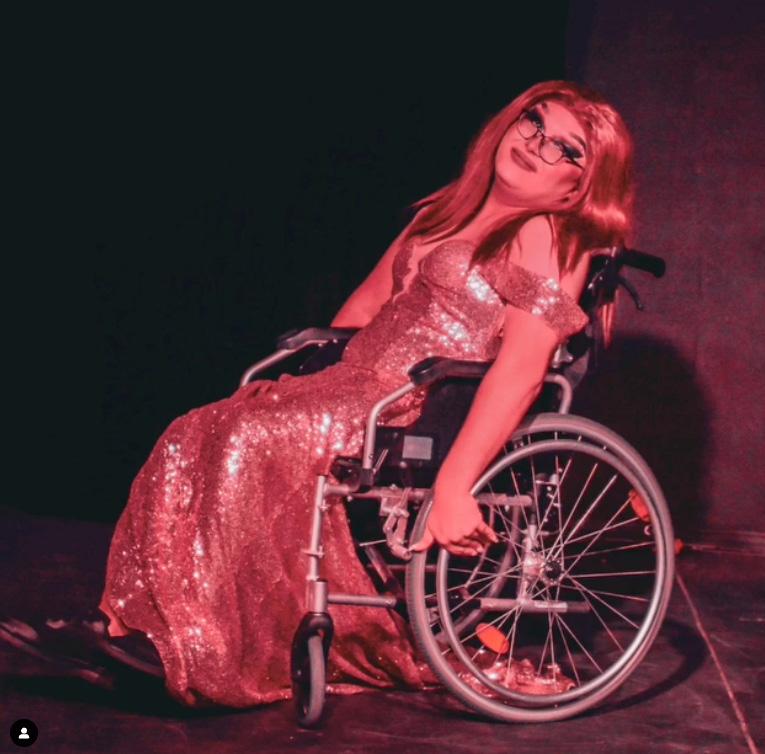
PROFILE linkonline.com.au 21
HelenWheels
Malawi producing more than films as watermelon crop booms

When Focus on Ability, NOVA’s short film Festival now in its 17th year, it was never imagined that film makers from around the world would be drawn into creating a short film celebrating the achievements of people with disability.
“Or that there would be so many positive spinoffs, but nevertheless, that’s what has happened,” NOVA Employment CEO and Focus on Ability founder, Martin Wren told Link
Wren wanted to showcase the achievements and ability of young people with disability. As part of his vision he targeted a dozen Western Sydney high schools, encouraging Year 11 and 12 students to create five-minute films. His aim was to utilise the embryonic digital technology while also drawing on the creativity of the students.
Prizes included travel and accommodation in Sydney for overseas entrants and travel to Los Angeles. Prizes for winning entries included international travel, cash, unique film opportunities and a car. Not surprisingly, entries to the annual festival expanded.
Also growing was the number of international entries including many from Africa that included Kenya, Malawi Zimbabwe, Uganda, South Africa and Ethiopia plus a host of other overseas entrants. In 2016, first-time entries included a winning short film from Malawi: ‘See me, see abilities’.
The film maker was MacDonald Nyirenda. As part of the winners prize the Focus team had the privilege of showing MacDonald some of Sydney, during which time the Australian and Malawian teams struck up a friendship that led to discussion on how Australia’s Focus on Ability might translate in a Malawian environment.
Nyirenda had recently completed an agricultural course designed to get the best results from the available soils and changing weather patterns. NOVA Employment put up the $US2500 necessary to purchase a water pump and irrigation equipment enabling the now named FOAS (Focus on Ability Society) Malawi, to go into the farming business.
The chosen crop was watermelons and assisted by skilled support workers and a sound business plan FOAS business
boomed, enabling the program to achieve financial independence and expand the area under cultivation. Despite starting at the end of a prolonged drought, followed by flooding rains, FOAS has continued to thrive.
Malawi Council for the Handicapped (MACOHA) described the Focus on Ability Short Film Festival project by Focus on Ability Society FOAS as crucial in achieving an inclusive community in Malawi.
In an interview, MACOHA public relations officer, Harriet Kachimanga welcomed the initiative saying it has had a tremendous impact on the community.
“These short films have given an exposure to people with disabilities showing their abilities and also helps to take out the stigma and discrimination which is a step in achieving a collective inclusive society in the country,” she said.
Downloaded from: https:// nthandatimes.com/macoha-forinclusive-society-through-short-films/
To know more and be part of the celebrations go to: www.focusonability.com.au
Link to... Employment 22 June/July 2024
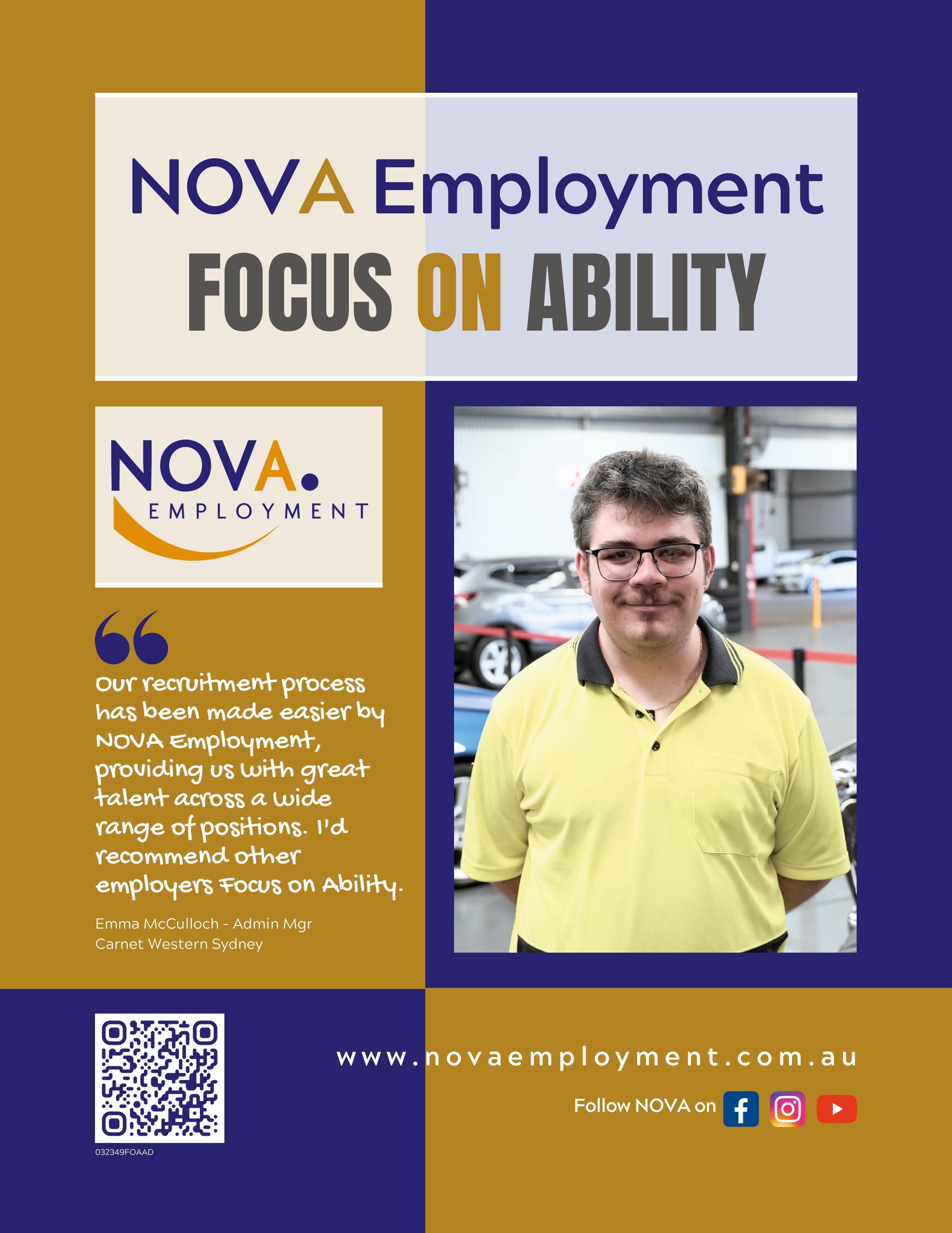
Industry first microcredential - to drive high-quality Disability Employment Services
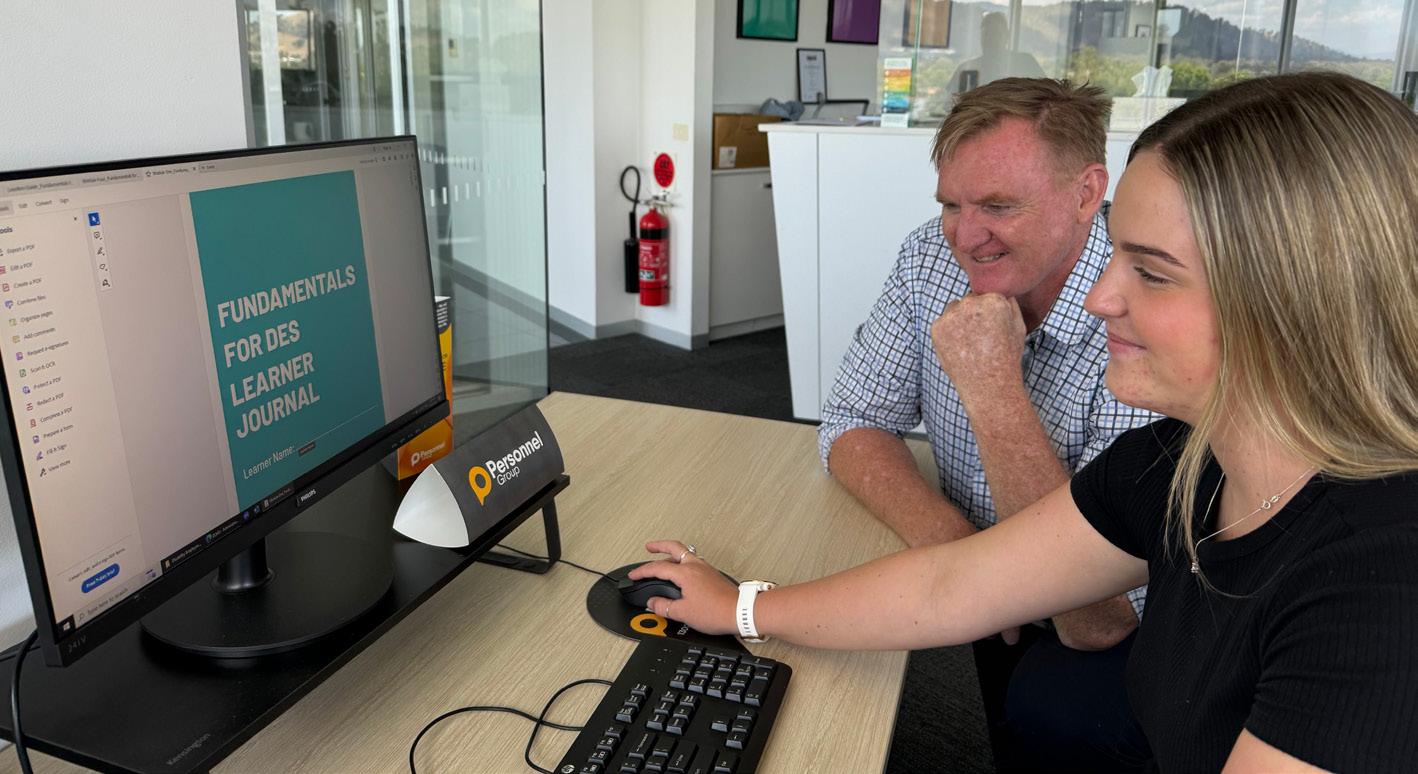
Acollaboration between Disability Employment Australia (DEA) and genU Training is helping Disability Employment Service providers deliver high-quality, person-centred service to DES participants in alignment with the new Quality Framework.
Designed with evidence-based research and best practice from across the sector, the co-designed Disability Employment Fundamentals for DES offers Disability Employment Service (DES) workers person-centred training that will enhance their skills, confidence and client outcomes.
A changing landscape
With the announcement of the new DES Quality Framework in 2023 and the end of DES Star Ratings, many DES providers needed to pivot their focus and assess their organisation’s current capability to meet service delivery expectations under the new framework.
To support this transition, Disability Employment Australia partnered with
genU Training to chair a co-design reference group, bringing together industry experts, DES providers, and government stakeholders. The result –an industry first, peak body endorsed microcredential designed by industry, for industry.
“We recognised a need to better standardise learning in our sector and this is a big step towards that goal,” DEA CEO Peter Bacon said. “We are working with DEA members to utilise their deep expertise and experience, creating rich learning experiences for staff at all levels. These foundations will ensure that disability employment providers continue to deliver worldclass services.”
Building Provider Capability
Fundamentals for DES take learners through the evolution of disability employment services to the new era where individual strengths and capacity building are the core focus. Learners are equipped with the skills and knowledge to provide tailored employment pathways
and high-quality support for people living with disability.
The Personnel Group (TPG) is one of many providers experiencing the benefits of upskilling team members through Disability Employment Fundamentals. General Manager, Ross Hill emphasised that the course offered invaluable insights into the service delivery expectations outlined in the Quality Framework.
“It’s user-friendly and requires input and learner feedback, and we are confident that having this training incorporated into our induction plans will greatly assist new DES team members,” he said.
“The follow-up and support from genU Training has been exceptional.”
Industry best practice training
With a growing government emphasis on professionalising the sector, the peak body endorsed training provides a proactive approach for Disability Employment providers to enhance their workforce's skills, ultimately leading to better employment outcomes for people with disability.
The accessible online modules cover essential topics such as understanding the disability landscape, recognising abilities, navigating the Quality Framework, guiding the employment journey, and fostering resilience and self-care. Whether you're new to the sector or an experienced practitioner, this microcredential offers valuable insights and knowledge to drive positive change across the DES industry.
Contact Dan Gavin on 0422 693 488 or email dan.gavin@genu.org.au to learn more.
Link to... Employment
24 June/July 2024
Ken and Lu from The Personnel Group
Build your skills and knowledge to deliver outstanding person centre services.
Fundamentals For DES
Fundamentals for DES brings together industry best practice and the most current information to ensure your workforce can service in alignment with the Quality Framework.
Co-designed with DES providers. Endorsed by Disability Employment Australia. Delivered by genU Training
Deliver quality service and improve your client experience.
1300
Disability Employment Fundamentals
582 687
TOID 5553
A regional enterprise that has turned out like a well-made cake!
This family business that started a decade ago with wedding cakes has become a cake lovers’ delight.
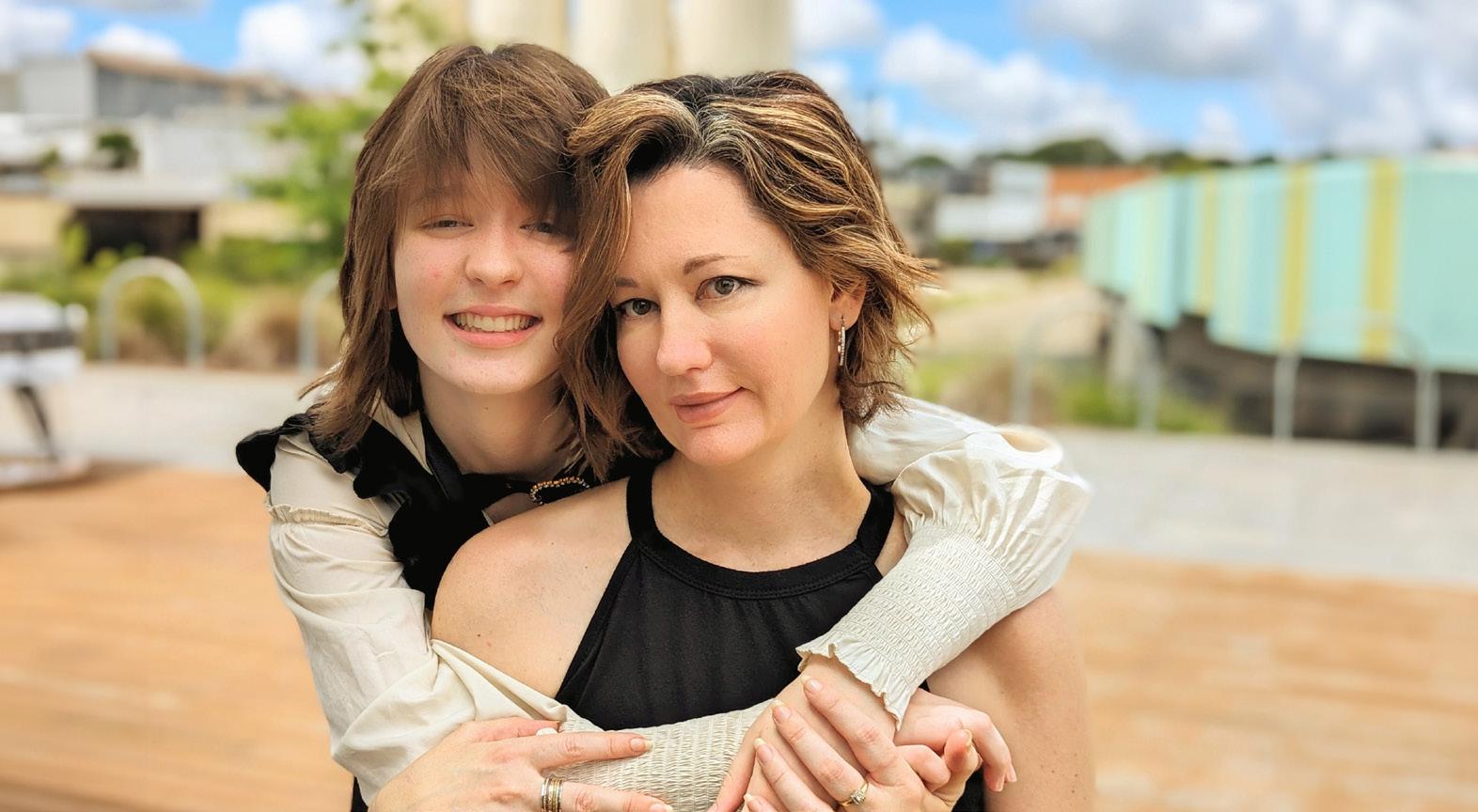
Karyn Mills who has muscular dystrophy was looking for something completely different that turned out to be a cake that is baked in a cup in a microwave for one minute.*
Story Book pre-mix cakes, puddings and cookies are made in Warwick, on the Queensland Darling Downs. The mixtures use basics such as flour and sugar, founder Kayrn Mills told Link. Help in the kitchen comes from husband Mark and daughter Hope, who is 16 years old and assists when she can.
“We went into the pre-mix business five years ago which are simple and easy, just add melted butter and boiling water, except for the children’s mixes which have cold water added,” Mills said. All products carry 7-9 months use by date and are sent all over Australia.
The business started with wedding cakes then into pre-mix five years ago. “When I see a recipe now there are so
many ingredients. Our products are all natural ingredients what you would put into it yourself, basics such as sugar and flour.”
Mills enjoys creating new flavours recently adding lemon myrtle to the recipe list. “It’s fun to see what develops from an idea to a product that works in package that people enjoy.”
As for the biggest seller, it’s white and rich chocolate Cake in a Mug.
Mills was diagnosed with MD in kindergarten which she inherited from her mother. She gets around in a power wheelchair but can walk if “I hold onto my husband’s arm”. Her daughter has MD but is showing no symptoms.
Speaking of arms, hers are put to good use as she does all the mixes, fillings and packaging herself, from an elevated chair at the kitchen bench.
Fatigue can be a challenge, but she tends to look at it as positive. “When I was doing the wedding cakes I went through a stage where I hid it for so
long, but acceptance has made my life so much easier.”
While the business operates online there are expansion plans to reach more retail outlets to join existing stockists, Essential Ingredient in Canberra and Orange and Lolly Bug in Little Hartley in the Blue Mountains.
Modifications are underway to convert an old Fraser Island tour bus into a wheelchair accessible vehicle for family trips. “It will be nice to travel and have what you need in your own space and not rely on finding suitable accommodation,” Mills said. “Eventually we will use the bus to showcase our business and travel to stores and the bus will carry advertising.”
You can shop for these treats at: order@storybookcakes.com.au
*For Cake in a Mug, just add melted butter and boiling water to the mixture, put it into the microwave for 60 seconds, and this sweet treat is ready to eat.
SPECIAL OFFER: Get 15 per cent off your order with the use of the code: LINK…valid until June 30, 2024.

Link to... News
26 June/July 2024
Karyn and Hope Mills
Pathways to employment with Barkuma Supports
Barkuma is dedicated to empowering individuals with developmental disabilities to lead fulfilling, independent lives by offering comprehensive employment support services.
These services include The Transition Program, School Leaver Employment Supports (SLES), Supported Employment at Commercial Services, and Disability Employment Service (DES), each designed to cater to the unique needs and career goals of people with disabilities. Barkuma provides a seamless pathway between these supports and the flexibility to combine multiple supports to thrive in the workforce.
The journey towards employment starts with the Transition Program for final-year students, facilitating their move from school to work through
structured learning, accredited training, and work placement opportunities. For many, SLES is the next step, emphasising essential life skills, job readiness and personal development. Participants in SLES gain practical experience and explore career options through work experience, developing independence and confidence to make informed decisions about their future employment goals.
…supported employment offers an inclusive work environment…
Barkuma's supported employment offers an inclusive work environment for individuals who require more support. Employees gain valuable skills, build
self-esteem and work towards more independent employment options.
Barkuma’s DES focuses on placing individuals with developmental disabilities in mainstream employment, leveraging their skills and experience to secure long-term work. Barkuma provides long-term support and job coaching to help individuals maintain their positions and thrive.
Its holistic approach ensures a seamless transition between employment supports, allowing individuals to progress at their own pace. The flexible pathways are tailored to meet each person's needs, ensuring they receive the right level of support to achieve their employment goals. This person-centred approach has proven effective in supporting individuals with disabilities to secure meaningful, long-term employment.
EXPLORE YOUR WORK POTENTIAL
WITH EMPLOYMENT SUPPORTS
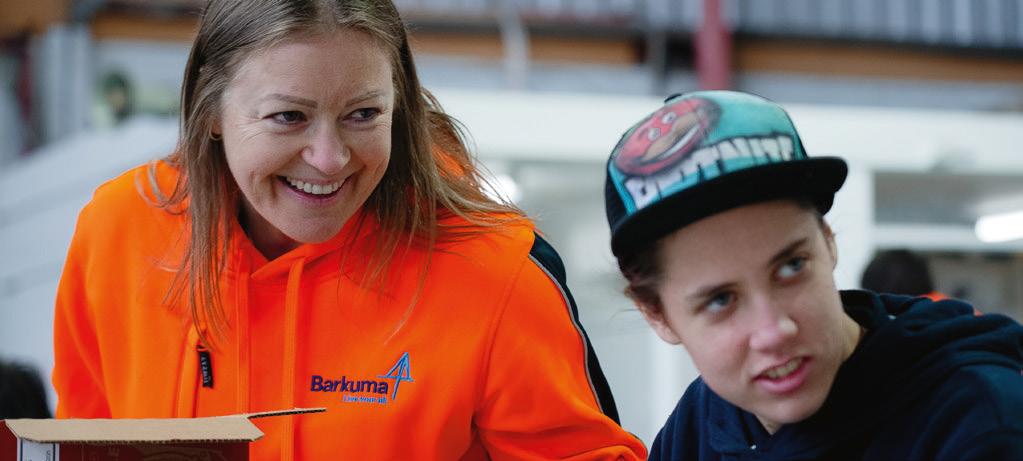

For South Australians with intellectual disabilities and Autism who want to create their own future, Barkuma provides long term support, connection and belonging.
• Transition from School Program (Year 12)
• School Leaver Employment Supports (SLES)
• Supported Employment through our Commercial Services
• Disability Employment Service (DES)
(08) 8414 7100
barkuma@barkuma.com.au
Barkuma.com.au
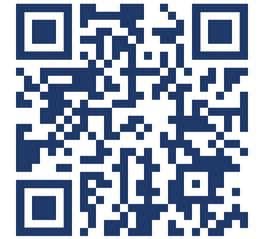

Scan here
Link Half page Employment Supports.indd 1 8/04/2024 1:35:47 PM
Link to... Employment linkonline.com.au 27
Proudly registered with VDWC - showing what quality support looks like
Disability workers play a valued role in supporting people with disability to participate fully in their communities and live life their way. The work they do is crucial to ensure people with disability and their families have confidence in the services that are being delivered.
The Victorian Disability Worker Commission (VDWC) supports disability workers to be the best and most competent professionals they can be through disability worker registration. To be registered, workers must meet set standards for safety, skills and experience, because people with disability have a right to strong safeguards and high-quality services.
Tanae is a registered disability worker passionate about providing better outcomes for people with disability. For three years, Tanae has worked closely with Darcy, supporting him to do the things he loves and building his confidence along the way. They play basketball, go bowling, attend dance classes and get out into the community.
Along with getting involved in his favourite activities, Tanae has supported Darcy to overcome fears like tackling escalators and build new skills like using a hairdryer.
For Darcy’s mum Julie, it’s Tanae’s professionalism and involvement in her sessions with Darcy that makes all the difference.
“You hear stories about other workers who go out and don’t participate with their client, like it’s a babysitting service. Then there are genuine people like Tanae out there that have Darcy’s, and people like him, wellbeing at heart. They want to see

them achieve,” Julie said. “If he’s struggling to do a move at dance or basketball, she helps him break it down and work it out step by step.”
Knowing Tanae is a registered disability worker through the VDWC means Julie has even greater confidence that Tanae is the safe choice for Darcy and her family.
“It shows she’s invested in her training and the quality of care that she gives,” she said.
Completing 10 hours of continuing professional development (CPD) is one of the registration standards that disability workers like Tanae must meet to remain registered each year.
To support professional development, the VDWC and the Disability Worker Registration Board of Victoria have launched a Training and Development Catalogue to assist disability workers
with building their knowledge and skills to work safely and competently, as well as provide options to add to their CPD hours.
The catalogue contains over 200 training courses, resources and activities across a wide variety of specialty types, delivery methods and skill levels. It provides disability workers with a single resource to search and connect with appropriate training, and the ability to filter to specific topics or areas of interest.
Access to the catalogue and disability worker registration is currently free. Through registration, the VDWC seeks to increase safeguards across the entire disability sector, creating better choices for people with disability.
For more information about disability worker registration and the Training and Development Catalogue, visit vdwc.vic.gov.au.
Link to... Employment
28 June/July 2024
Tanae and Darcy
Become a registered disability worker and show people that
safety and experience matter.
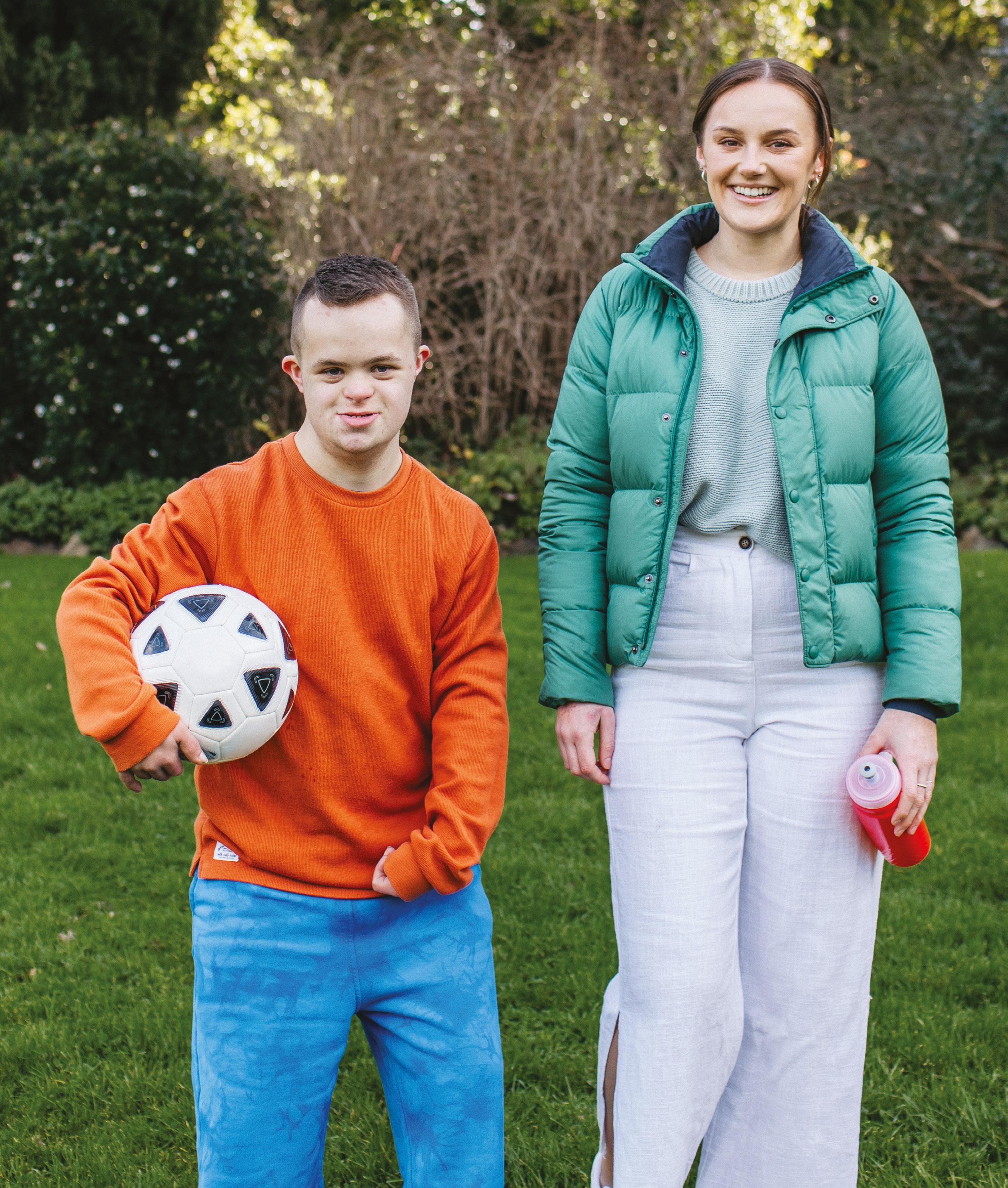
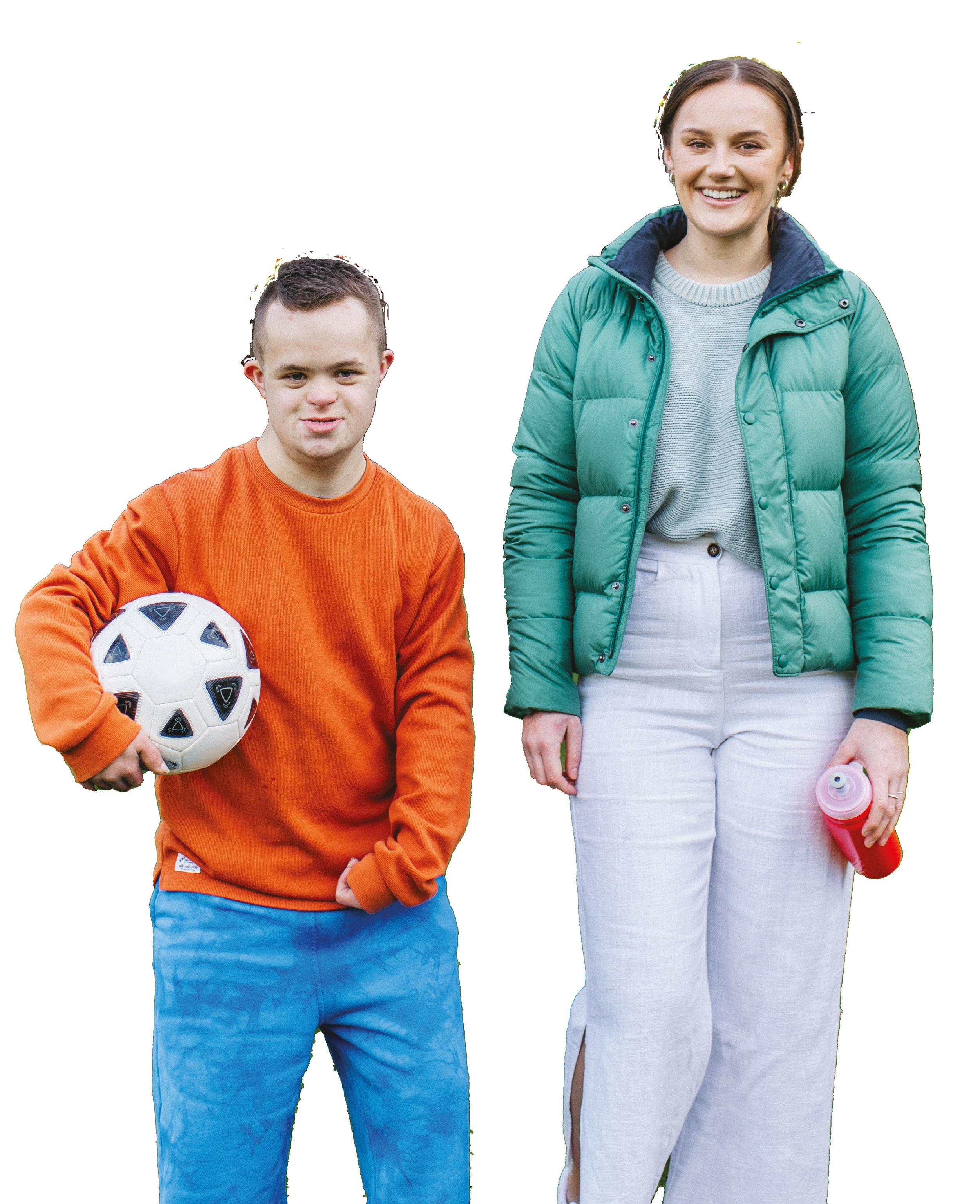
Register with the Victorian Disability Worker Commission, today. Call 1800 497 132 or Visit vdwc.vic.gov.au/registration
quality,
Embark on a Virtual Experience with Theorem
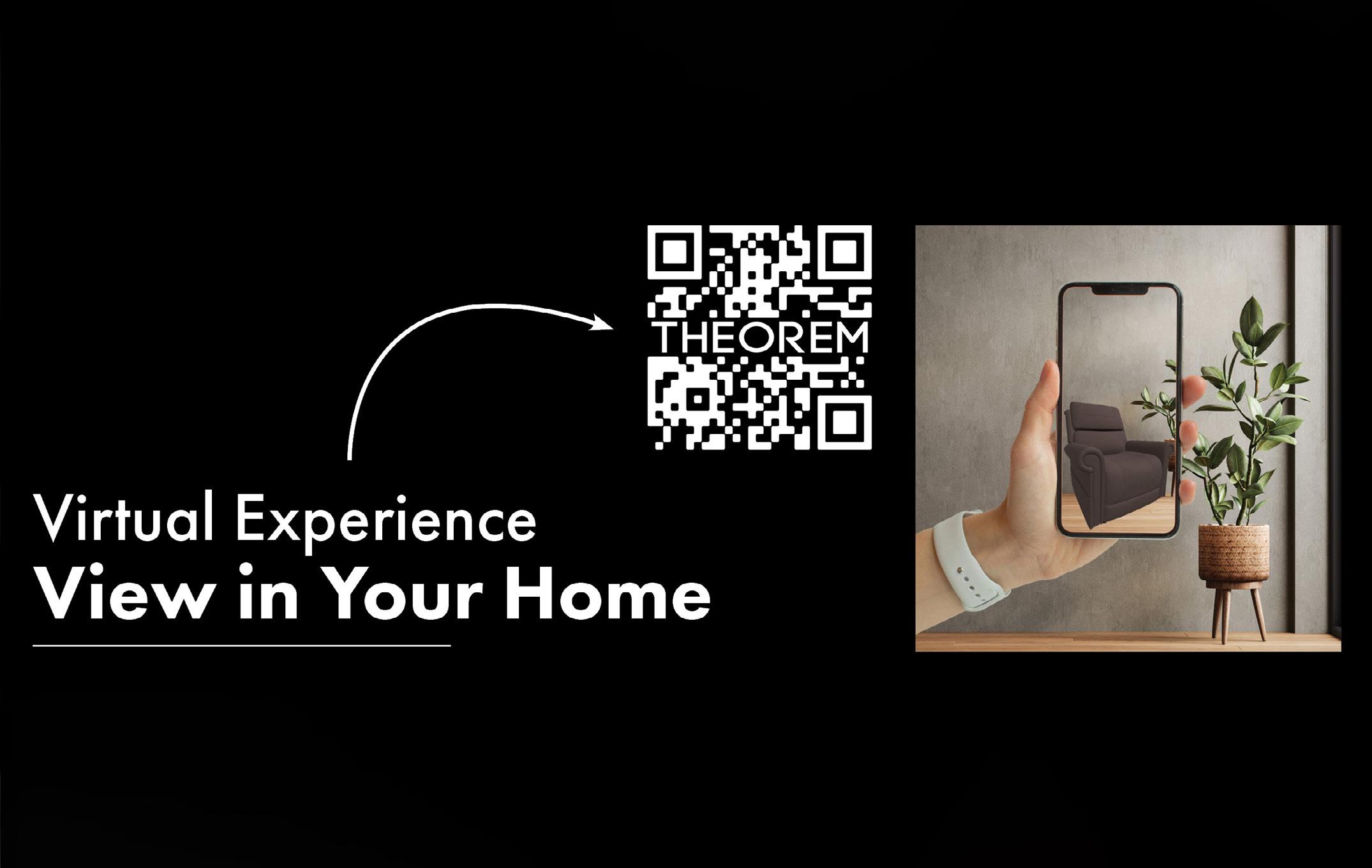
Theorem continues to redefine the power lift recliner industry with the introduction of Augmented Reality (AR) technology. Integrated into Theorem’s website, AR allows you to experience their range in your own environment.
“This tool is a game-changer for us. It empowers our customers to envision our chairs in their homes before making a significant decision,” Theorem sales and marketing director Darren Rose said.
In addition to the AR feature, each product is now showcased in immersive 3D. This feature enables you to explore every detail and witness the chair’s key functions in action. The comprehensive 3D view consolidates the entire range into one accessible platform.
The next phase elevates the user experience by using the AR feature to project the 3D product and its functions into the real world.
In 2023 Theorem introduced their ground-breaking app-controlled power lift recliner, the ‘Winslow.’ Building on this innovation, 2024 sees the introduction of a height-adjustable headrest and a petite option to the Winslow design.
Accessing Theorem’s AR technology is simple: scan the QR code with your smart device, select your desired model and colour, and seamlessly visualise the chair in your living space. Experience its functionality firsthand before making your purchase decision.
Theorem Power Lift Recliners combine cutting-edge technology with unparalleled comfort to provide users with an enhanced seating experience. With features such as AR integration, 3D viewing capabilities, and innovative designs like the app-controlled ‘Winslow,’ Theorem is revolutionising the power lift recliner industry.
Whether it's visualising how a chair will fit into your home or experiencing its functionality firsthand, Theorem empowers customers to make informed decisions and enjoy ultimate relaxation.
For more information on Theorem’s product offering or to view the full range, please visit their website www.theorempowerliftrecliners.com.au
Link to... Assistive Technology 30 June/July 2024

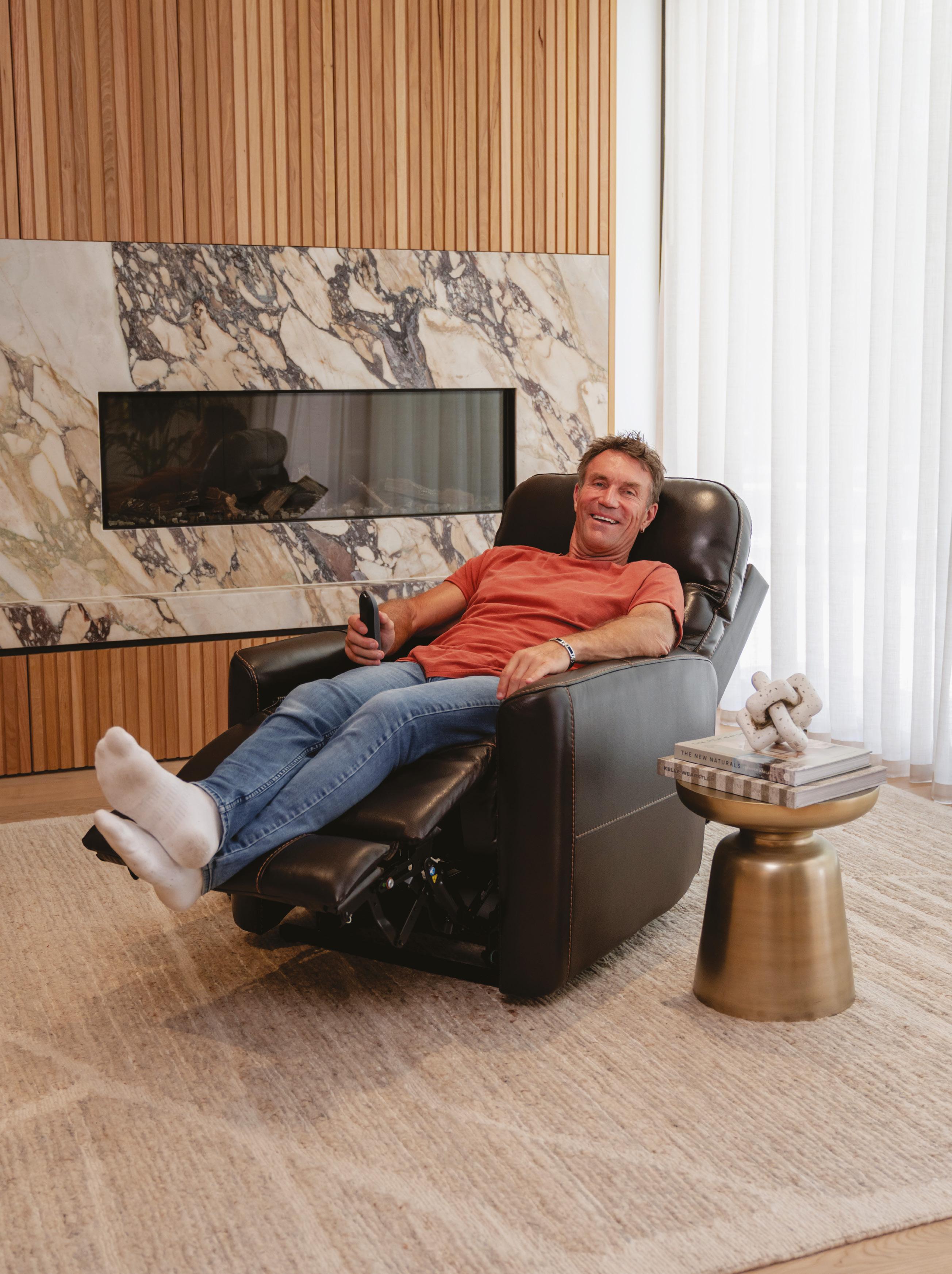

Accessible Telecoms – closing the information gap
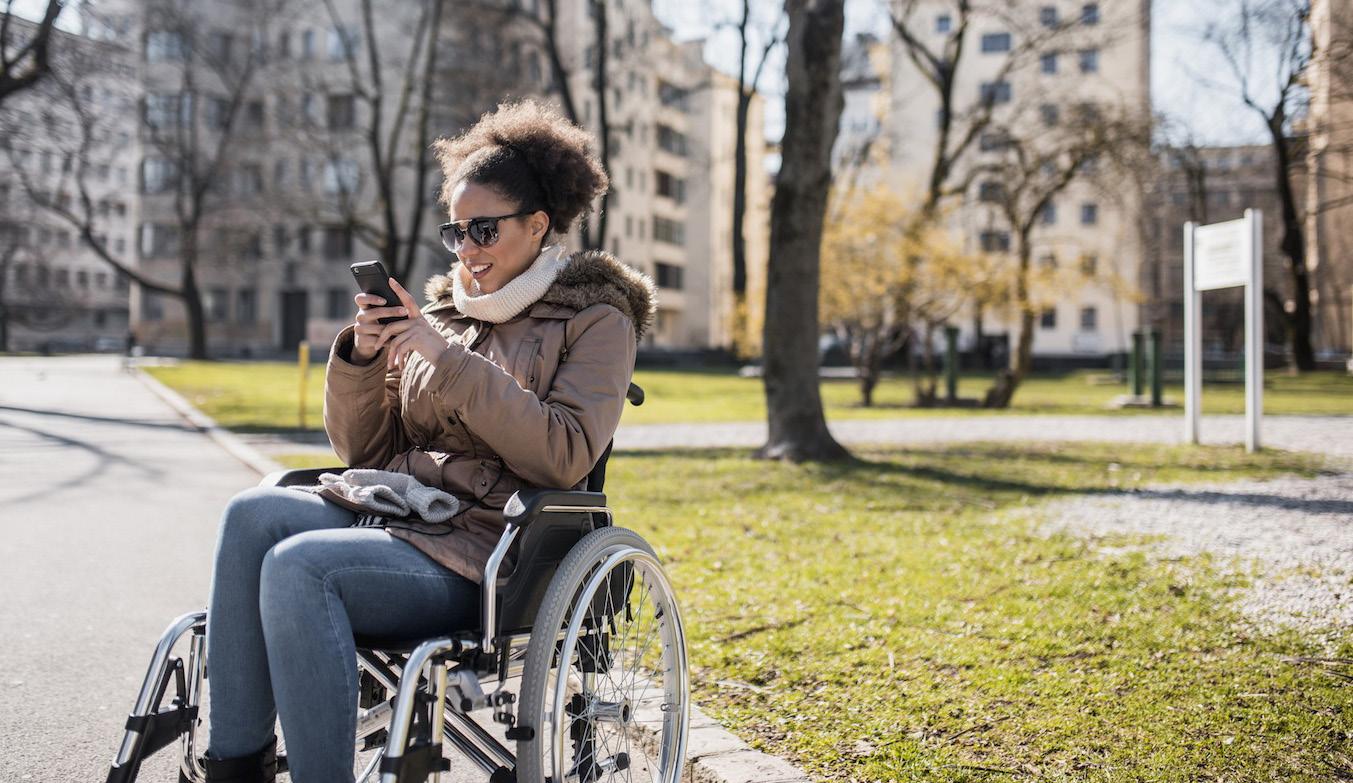
Are you looking for communication devices to suit your needs? Are you thinking about purchasing a new phone and want to know what’s new, or which features and options might help to improve your access to telecommunications?
With so many assistive technology options to choose from it can be overwhelming to choose the right one for you.
Accessible Telecoms is a free service, funded by the Commonwealth of Australia, which aims to close the information gap surrounding the accessibility features of telecommunications equipment available here.
An initiative by the Australian Communications Consumer Action Network (ACCAN), this service is specifically designed to cater to individuals with disabilities, seniors, their families and caregivers, as well as service providers and advocates. However, Accessible Telecoms welcomes anyone seeking assistance.
At the heart of the Accessible Telecoms Project is ACCAN's Inclusion Team, overseeing its development with insights from a dedicated advisory committee of disability experts. Their contributions shape the product listings, accessibility features, and user-friendliness of our website, among other key aspects.
Our online platform serves as a selfhelp resource, listing the accessibility features of phones, tablets, accessories, and apps that facilitate communication. You have the option to search for specific models or devices, accessing detailed specifications, or tailor your search based on individual accessibility requirements, simplifying your quest for suitable solutions.
Whether you're exploring ways to enhance the accessibility of your existing device or thinking about something new, our Accessible Telecoms team is here to offer personalised guidance. With industry expertise and lived experience with disabilities, our team can help maximise the potential of your current devices or steer you toward new options that
align perfectly with your needs. We can also help connect you to local or online training resources to add to your tech skill set.
Experience a world of easier communication with Accessible Telecoms:
• Home phones equipped with loud ringers, adjustable volume, or large buttons
• Phones and equipment that are compatible with your hearing aids and other devices
• Browse mounting solutions for wheelchairs, vehicles and the home
• Control accessories like eye gaze tools, switch buttons, prosthetics, and more
• Apps for media captioning, voice-to-text, screen zoom, and enhancement
• If staying in touch with your service providers poses challenges, consult us about alternative contact options or specialist helplines dedicated to accessibility and priority assistance
• Curious to test a device before making a purchase? Reach out to us for assistance in locating local providers with trial options
• Gain new skills with technology by using our training search or seeking advice from our team on available training options.
Accessible Telecoms is eager to address your unique requirements. Our dedicated team stands ready to answer your questions and direct you to optimal solutions. Don't delay— connect with us today!
• Helpline: 1800 442 300
• Text: 0438 454 413
• Email: accessible.telecoms@accan.org.au
• Website: www.accessibletelecoms.org.au (featuring Device Search and Livechat support)
Link to... Assistive Technology 32 June/July 2024

WILA Innovations - specialist in disability equipment

WILA Innovations is the Australian distributor for the Vicair pressure care products, the FOCAL dynamic arm supports, the Obi robotic feeding device, the new Free2Go walker and VELA work and medical chairs.
Vicair O2 cushions are a unique
combination of high-quality pressure redistribution, optimal positioning and comfort. Available in several models, these are extremely suitable to protect skin.
The Vicair O2 wheelchair cushion range offers optimal hygiene, temperature and moist regulation as the cushions
are 100 per cent breathable and machine washable.
FOCAL arm supports assist with reduced arm and/or hand function. In line with its motto ‘listen, create, improve’, the focus is on personal needs to achieve an improved quality of life.
The Obi, a revolutionary eating device for individuals with upper extremity strength and mobility limitations. Using customisable accessibility switches, the Obi allows the user to control what they eat and when. Eating should be personal, fun, joyful, exciting and independent, and Obi makes this possible.
The latest product from Wila Innovations is the Free2Go Walker. Discrete and portable it offers complete toilet safety in any restroom.
The VELA chair range comprises the VELA 700E, suitable for those up to 160kg, while the VELA 310E is for users up to 300kg and the 600ES is a chair for children.
In a world first, WILA Innovations recently released the new user-friendly VELA chair with power wheels, for delivering independence at home, work and school.
The Power Wheels VELA 700E carries all the benefits of a VELA chair, even for those without the strength to ‘walk’ the chair around throughout the day. It allows the user to perform their usual standing activities safely and comfortably without draining their energy, thanks to a safe handbrake, easy-rolling wheels and stable sitting comfort. The chair can convert a new or an existing VELA chair into an indoor power wheelchair.
For more details visit: www.wila-products.com.au or info@wila-products.com.au
Link to... Assistive Technology
34 June/July 2024
TheFree2Gowalker
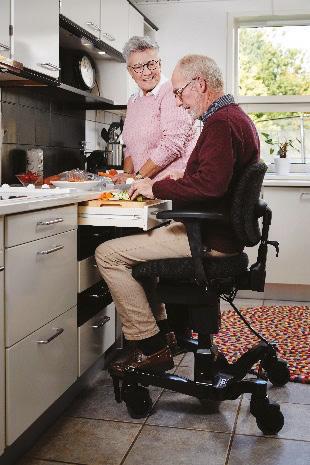
VEL A 700E
The VELA 700E chair that can assist you continue living independently.
• The VELA 310E
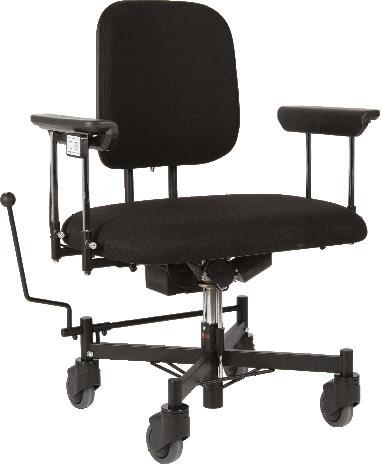


RELIEF BY
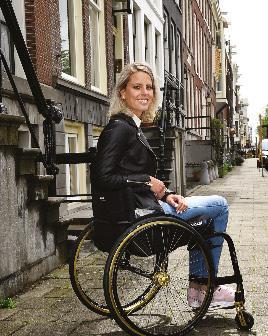

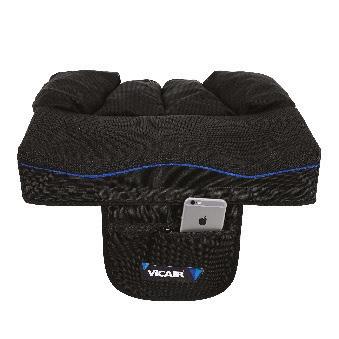


Quality of life enhanced through innovation in assistive technology info@wila-products.com.au www.wila-products.com.au WILA Innovations is the Australian distributor for a range of assistive technology equipment for people of all a es and le el of disability
OBI ROBOTIC FEEDING DEVICE The first dining robot of its kind. VICAIR
AIR Wheelchair cushions designed for comfor t and protection.
Monitored personal alarms: which type is best for you?
Monitored personal alarms have long been a trusted safety tool for NDIS participants, offering prompt assistance during emergencies. These alarms not only provide a sense of security but also empower people by boosting their confidence to navigate daily challenges more effectively.
Monitored personal alarms are widely used in Australia, so it's important to understand the distinctions among the various alarm types. Here we look at the three alarm categories: home alarms, mobile alarms and watch alarms, to uncover their features and to whom they are best suited.
Personal home alarm: keeping you safe at home. A Home Alarm system consists of a base unit with two-way voice communication between you and emergency responders, and a small wearable pendant with a help button. It’s designed to keep you safe at home and its range typically covers the home and garden.
Features & benefits:
• No need for a landline phone, Wi-Fi or the NBN
• The home alarm system can be easily self-installed
• 4G Technology with SIM card and calls included
• Waterproof pendant that can be worn in the shower or bath
• Falls detection pendant option for those who at higher risk of falls
• 48+ hours of backup power in case of a power outage
• The battery on the pendant lasts 2-3 years – don’t worry about recharging!
• The home alarm can support up to four users with individual pendants
• Simple activation with one tactile button
• Pendant can be worn around the neck or wrist depending on individual preference
• Accessories can be added to support
use – such as jellybean button, blow switch and vibrating pendant.
Personal mobile alarm: on-the-go peace of mind. The mobile alarm provides rapid access to emergency help when you’re out and about. The all-in-one design is compact and lightweight. It uses 4G technology, so you can take it with you anywhere in Australia where there’s good reception.
Key features & benefits:
• GPS shows your location in an emergency
• Falls detection sensors can automatically raise an emergency alert
• Two-way communication with emergency responders directly through the alarm
• The alarm works anywhere in Australia with good mobile coverage
• Simple and easy-to-use with one tacticle button activation
• Can be worn around the neck as a pendant on clipped to your clothing/belt
• Requires frequent charging.
Personal watch alarms: stylish and functional. The Solo Connect watch alarm combines emergency response software with the convenience of a discreet and stylish smartwatch. Designed for those who are comfortable with touchscreen technology and no dexterity limitations, the watch alarm is activated with a tap of the watch face and includes additional health apps.
Key features & benefits:
• GPS shows your location in an emergency
• Falls detection sensors can automatically raise an emergency alert
• Two-way Communication with emergency responders directly through the watch
• Operates on the 4G network so it works anywhere in Australia with good mobile coverage
• Health and wellness apps
• The watch can be used in the shower, bath or swimming pool
• Easy and comfortable to wear and looks like a normal smartwatch
• Requires frequent charging.
Which alarm is best for you. When choosing a personal alarm, it’s important to assess your situation, routine and safety needs to determine which alarm type would provide optimal protection for you.
In summary:
• The home alarm is our recommended device for people while spending time in or around their home. It can be worn all the time and won’t go flat, providing you with constant peace of mind.
• For those who frequently go out in the community, we recommend bundling a home alarm with a mobile device. When you head out the door, swap your home alarm pendant for the mobile alarm and know you’re covered wherever you go.
• The watch alarm is popular with active people who spend time both at home and away. It is only suited for people who are comfortable with smartwatch technology and can confidently use a small touchscreen interface. It does require charging, which we recommend is done while you are engaged in a low-risk activity, such as watching TV. Or you can bundle with a home alarm and charge the watch while wearing your pendant around the house.
Whichever option you choose, personal alarms are a smart investment in safeguarding your lifestyle and enjoying the peace of mind and confidence that come with knowing you always have someone looking out for you.
For more info about monitored personal alarms visit mepacs.com.au or call: 1800 685 329.
Link to... Assistive Technology 36 June/July 2024




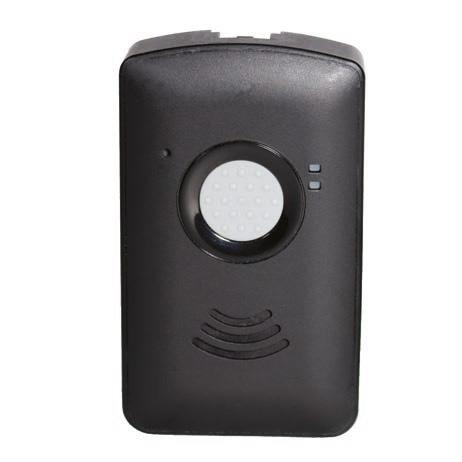





Homeable smart home technology
by Ralph Johnstone in collaboration with the Telstra Sustainability team.
A company with the tech ‘smarts’ - to make people feel right at home

When Liam Highmore started researching the technologies that can be used by people with disability to live safer, more independent lives at home, he was overwhelmed by the sheer range on offer. “Smart-home tech has taken off in recent years, but it’s often over-
promised and under-delivered, simply because people don’t know what’s out there,” Highmore said.
From smart plugs and video-doorbells to voice-activated climate controls and medication reminders, home tech has snowballed since the advent of the TV
remote. But for millions of Australians who live with disability or advancing years, setting up your “smart home” can still be a challenge.
This is where Homeable, the hometech partnering service established by Highmore and co-founders Luke Ray and Ashleigh Dodson comes in.
In just over two years, Homeable has helped more than 100 people with disability and senior Australians customise their homes, giving them direct control over everything from lighting and heating to their security, entertainment, digital calendars, and ‘remote care’ notifications through which their families and carers know they’re safely following routines.
“These days, there’s opportunities not only to create a connected home where devices talk to each other, but a really smart home that knows when you’re feeling unwell, when you’ve missed your medication, when the temperature’s not right for you and adjusts things to make your life safer, healthier, and more enjoyable,” Highmore said.
“One of the greatest things for me is witnessing a child with cerebral palsy using his voice to turn his room into a disco, or someone who’s blind answering the door for the very first time. In 2024, with all the technology available to us, everyone should have the right to these things.”
Personal passion
To say that Highmore is passionate about changing people’s lives is a serious understatement. After leaving Canberra’s Marist College in 2013, he spent two months living at the Lavalla
Link to... Smart Home Technology
June/July 2024 38
School for children with disabilities in Cambodia; and he returned there after his engineering degree to design 3D-printed tech for people with disability, gaining the Oceania Prize at the Global Undergraduate Awards in the process.
When he joined Telstra as a product engineer in 2020, he had the idea brewing that would change his life, and potentially those of thousands of ordinary Australians.
The idea is a relatively simple one: to help people with disabilities find, integrate and use the most effective technologies to live safely and comfortably in their own homes.
In just over two years, Homeable has helped more than 100 people with disability and senior Australians customise their homes.
Homeable helps its clients through three interlinked services: co-design of smart homes, tech installation and integration, and follow-up advice to help make homes “even smarter”.
Liam says none of it would have been possible without Telstra, which not only allows him the freedom to run his own business, but helped it get off the ground through a grant from the Telstra Foundation’s 2022 Changemakers program.
“The idea for Homeable came through the 2021 ‘designathon’ at Remarkable, which was founded with funding from the Telstra Foundation. And when we got the follow-up grant from Telstra Changemakers, it gave us the boost we needed to become a commercial entity.”
The grant helped Homeable launch a pilot with Guide Dogs NSW/ACT to explore the potential of smart-home tech with six blind and low-vision participants, a pilot that basically proved the merits of their business case. “We
were really green in those days,” he said. “But the grant helped us make a few mistakes that were really important to help us refine our concept.”
Changing lives
Today, Homeable has revolutionised dozens of lives across NSW, ACT and Victoria. People like Salma, a guide dog owner from Sydney, who now feels more confident opening her front gate, having installed a video doorbell with facial recognition software that tells her who is there. “I feel comfortable now,” she said. “It’s making life a lot easier, and way more accessible.”
As an accredited NDIS provider with close links to the accessibility teams at Apple, Amazon and Google, Homeable has been able to extend its reach from clients with limited vision and mobility, to people with more complex needs, neurodiverse clients, and a growing number of seniors.
Clients are usually referred by carers or occupational therapists and are then allocated a Homeable consultant who will work with them and their carers to understand their needs, map out their homes, and co-design solutions that take account of their routines, their safety, hobbies, and other considerations.
According to Highmore voiceactivated notifications, appliance safety features and other tech can make all the difference, particularly for older Australians who want to remain in their own homes as long as possible. “This not only takes pressure off the aged care system, but lets people live more independent, fulfilling lives, without feeling they’re being a burden on their families.
“It really is one of the greatest benefits of technology that you can possibly think of.”
More info: https://homeable.com.au/

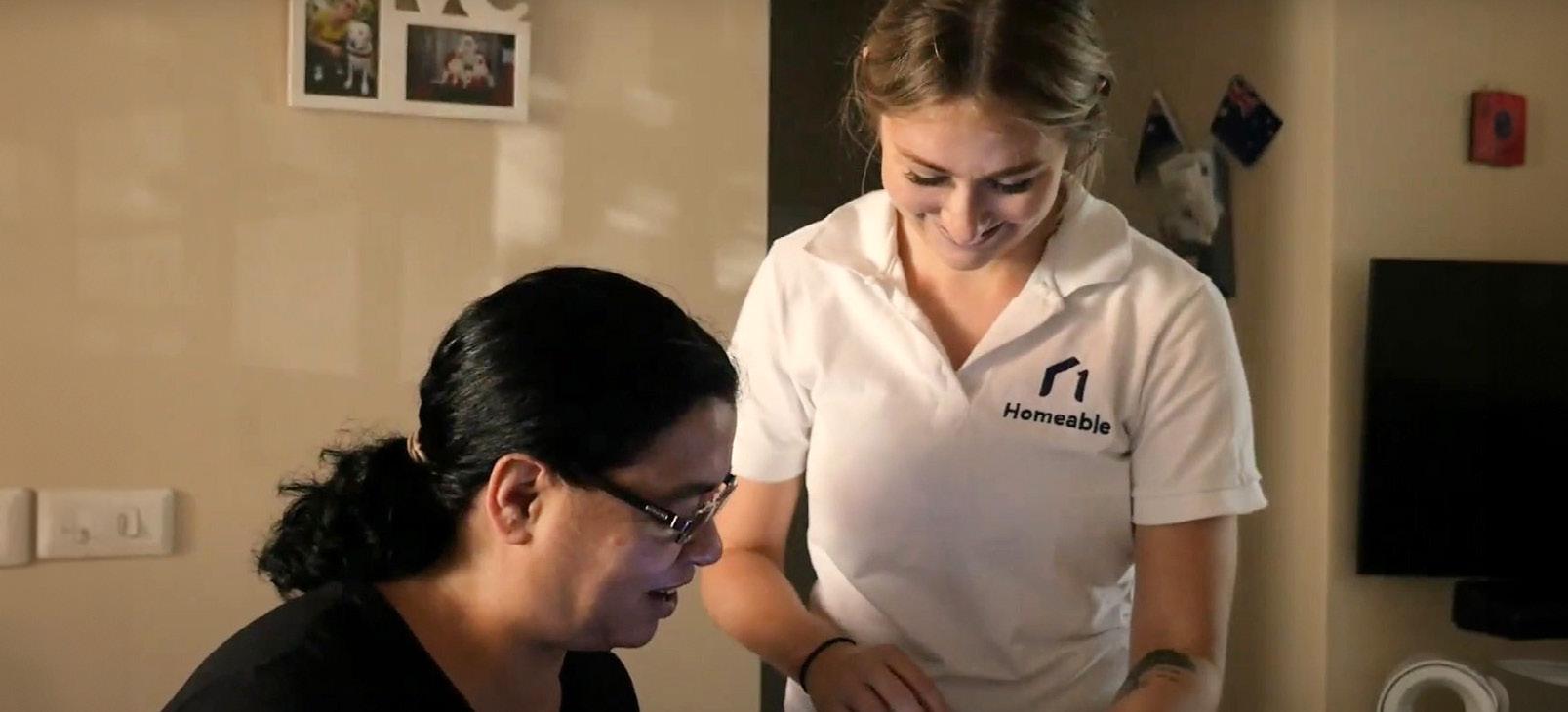
SMART HOME TECHNOLOGY linkonline.com.au 39

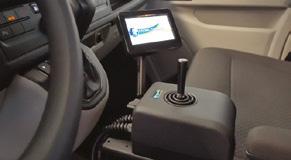



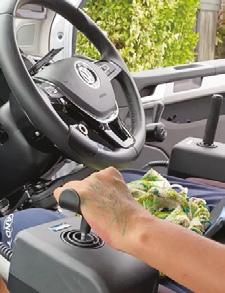
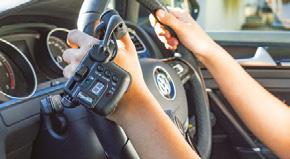


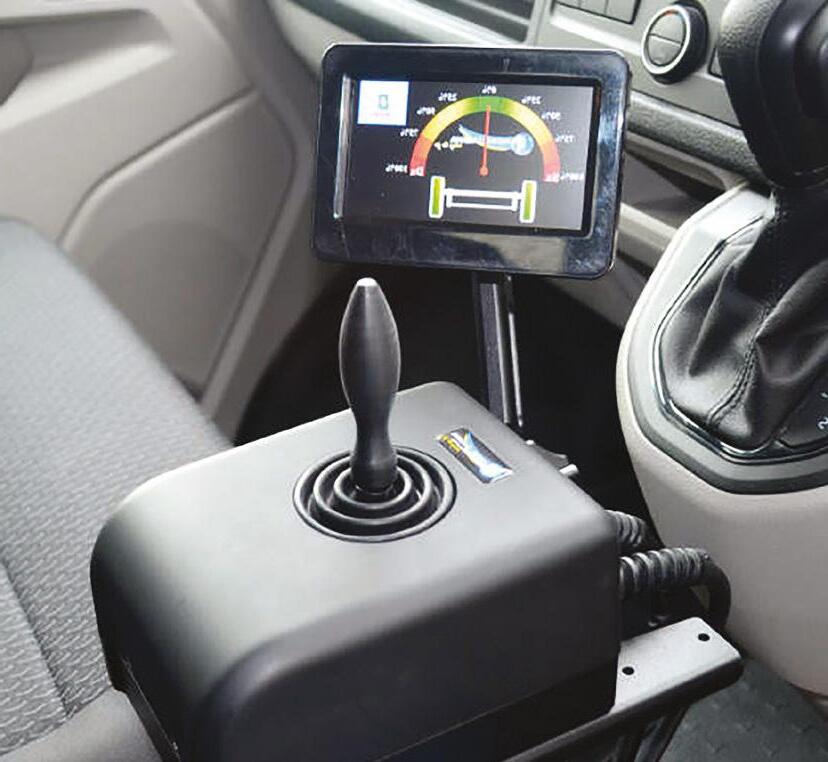

CONTACT US TO START YOUR JOURNEY! 1300 858 420 | sales@totalability.com.au totalability.com.au RESOURCES DRIVING CONTROLS VEHICLE ACCESS The Complete Guide to Driving with Disability. 2023 Edition Love to Drive For those who love to drive! Revised Edition Licensing and certification information added NDIS Guide to Vehicle Modifications. 2022 Edition For those who love to drive!

YOUR DRIVING ONE-STOP-SHOP .
CONTACTS
Your local…
Driver Trained OTs
Specialist Driving Instructors
Equipment Installers

ACROSS AUSTRALIA
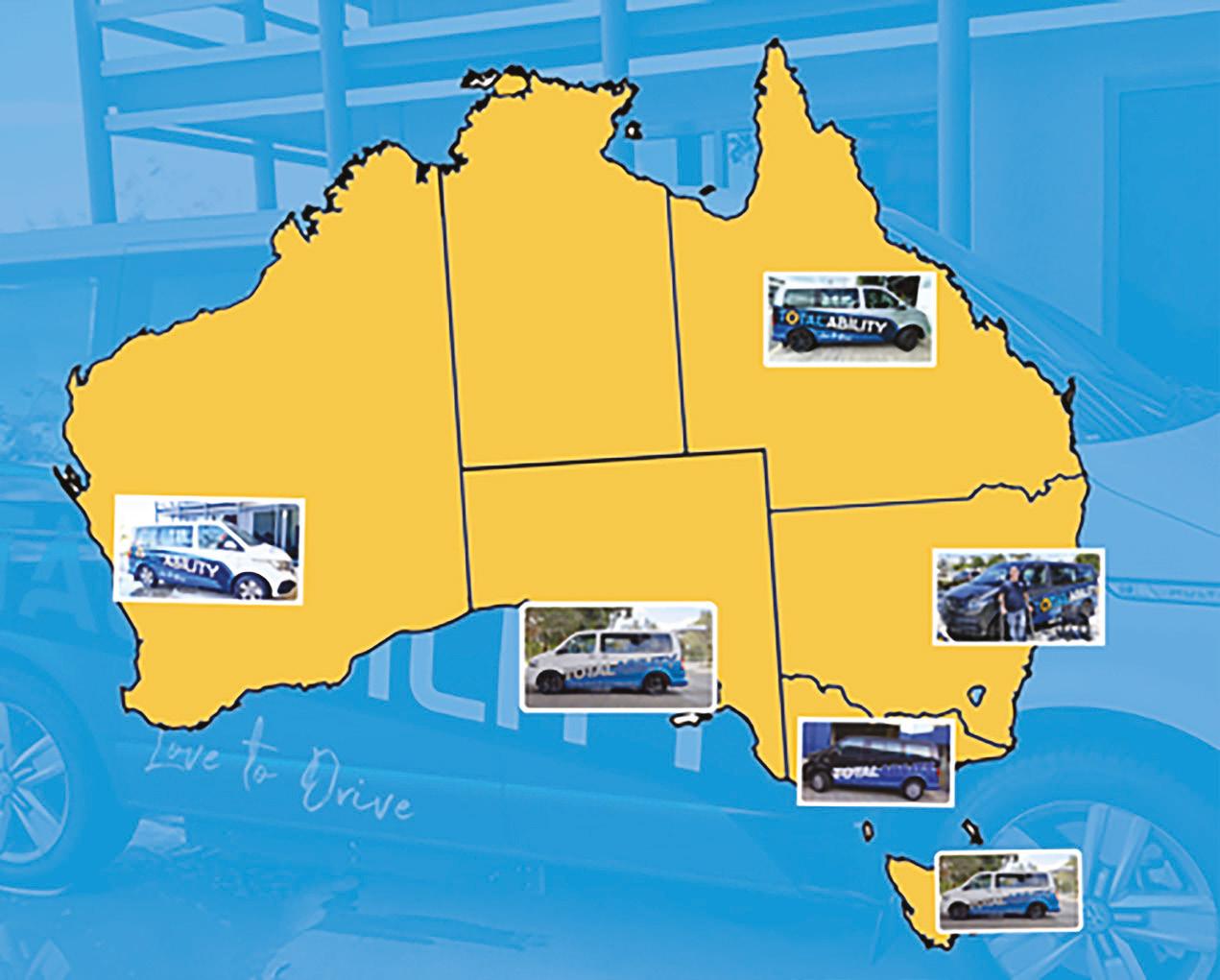
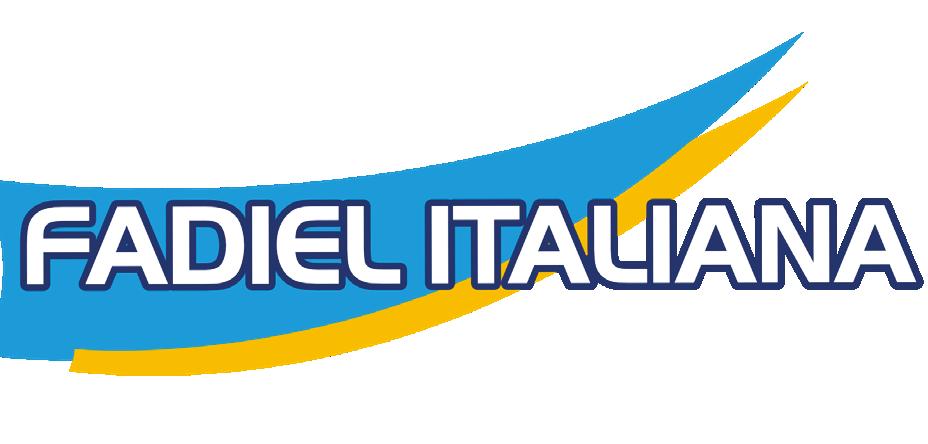
5 HIGH LEVEL ASSESSMENT VANS
Total Ability – Your one stop shop to get you driving with disability
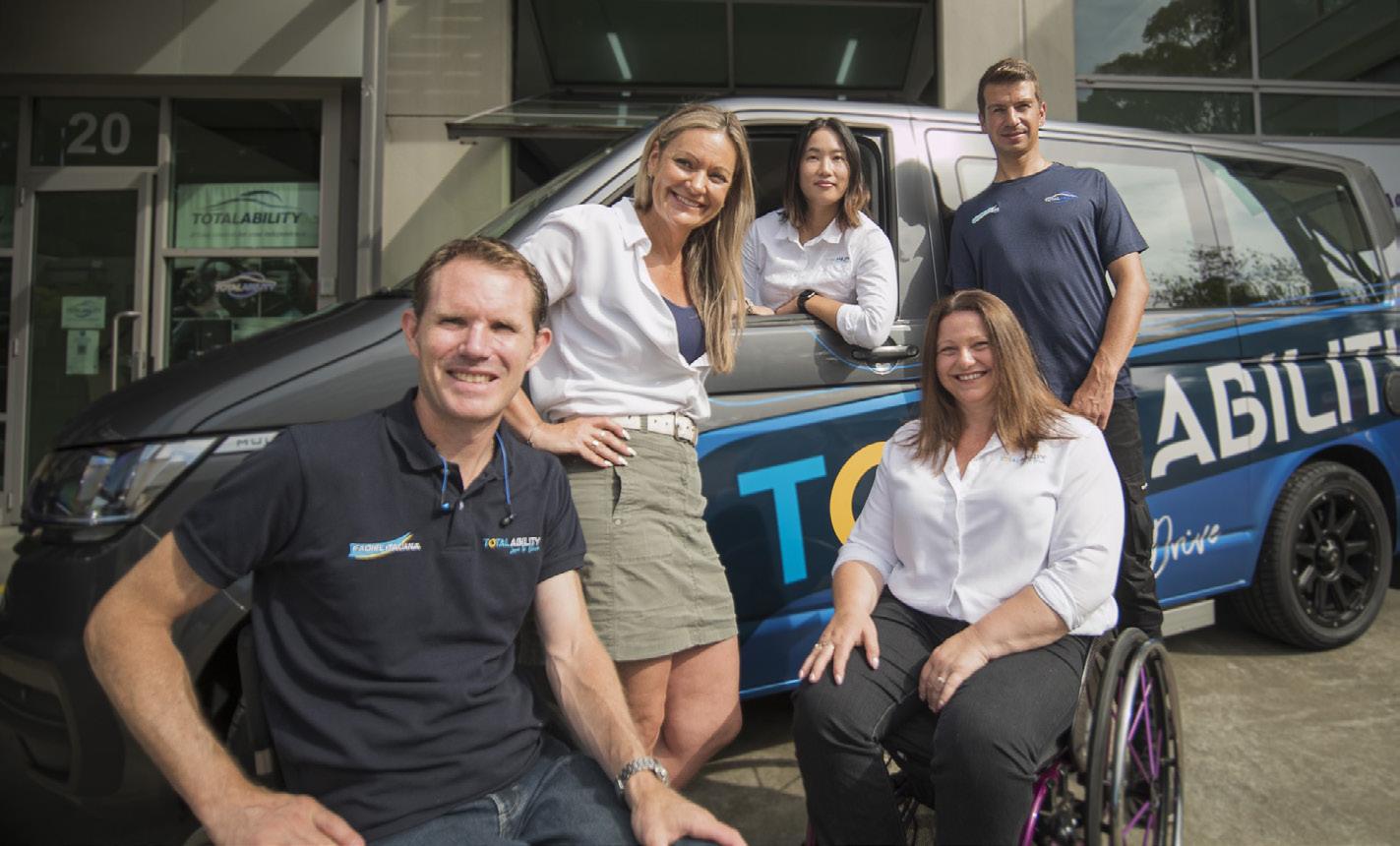
Anyone who has taken the bold step of learning to drive with disability knows, getting on the road involves a lot more than just finding the right equipment and getting it installed. To make the process of getting on the road as straightforward as possible, Total Ability offers:
• Informational resources
• Contacts to your local driver trained occupational therapist
• Contacts to your local specialist driving instructor fitted with a range of driving controls
• Access to five high level assessment vehicles across Australia
• Contacts to your local equipment installer
• Our Artarmon Installation and Service Centre complete with showroom, conference room and installation workshop.
We Understand Your Love to Drive
At Total Ability, our secret is that we’ve been where you are now. Our team includes people with lived experience of using disability driving controls and vehicle access equipment
every day, so we personally understand the complexities around driving and vehicle access. With this experience, we have developed the Complete Guide to Driving with Disability and the NDIS Guide to Vehicle Modifications. The Guides enable you to understand the step-by-step process to getting your licence and the important things to consider when driving with vehicle modifications.
Access to key professionals across Australia
We collaborate with a network of professionals nationwide to ensure you receive the support you need, wherever you are. We are one phone call or email away from tapping into all the professional resources you need to start your driving journey including Driver Trained OTs, Specialist Driving Instructors, and Installers. We are here to help you every step of the way.
High level assessment vans
Our high-level assessment vehicles, equipped with Fadiel driving controls, are strategically located to reduce barriers for learners. A van based in
each State (NSW/ACT, QLD, VIC, SA/TAS, WA) ensures local access like never before.
An overview of the Artarmon centre and showroom
The Artarmon Centre in Sydney, is designed to not only have specialised mechanics to install a wide range of products for driving with disability, it also includes a fully fitted showroom and access to high level assessment vans. Occupational Therapists can bring clients into the Artarmon Centre to view our products on demo and conduct assessments in our private consultation room.
The showroom is fitted with a variety of products for driving with disability, such as hand controls, transfer aids and hoists, lifts and ramps. Customers can get up close and hands-on experience with the items on display.
As the exclusive distributor of Fadiel Italiana products, the showroom is primarily stocked with Fadiel items. However, to provide customers with maximum choice and flexibility, we also install other non-Fadiel brands such as Lodgesons keypad spinners, Vehicle Adaptions roof hoist and Autochair electric hoists.
As one of only five complex driving control installation centres for Fadiel Italiana in Australia, our highly accredited and skilled mechanics will install your equipment with precision and quality workmanship, ensuring it looks like it came straight out of the factory and certified by an accredited independent engineer.
To find out more, go to the Total Ability Installation and Service Centre page or contact us on: 1300 858 410. you can view the entire range of our products and services on the Total Ability website.
Link to... Automotive Services 42 June/July 2024
A new age in community: transport lifters
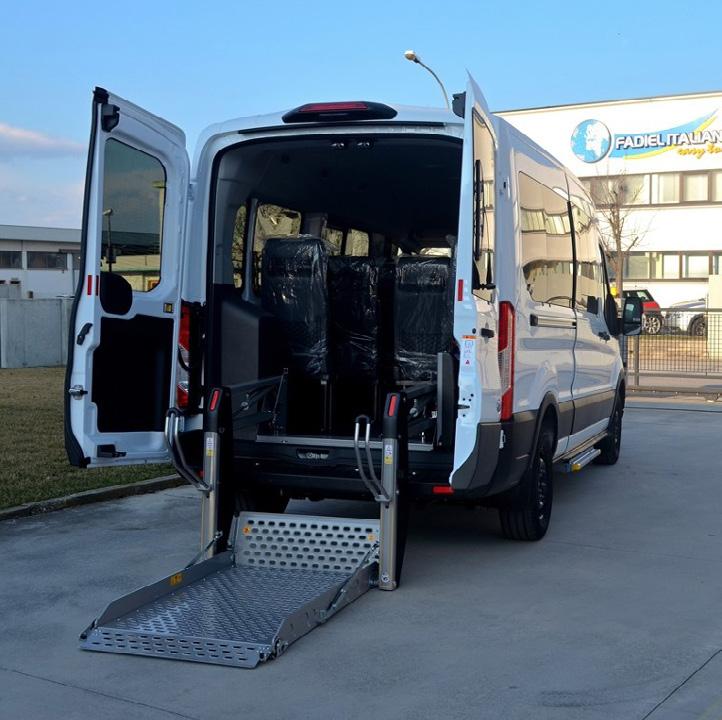
Step into a realm where innovation meets accessibility, where every journey is a testament to the power of inclusion and convenience.
Total Ability introduces the groundbreaking Fadiel Italiana Platform Lift range, poised to revolutionise community and commercial transport with its unparalleled blend of strength, safety, and comfort.
The journey of Fadiel Italiana and platform lifts.
At the heart of this transformative range lies a story of passion and ingenuity that dates back to the late 1970s. Picture a young, gifted engineer named Fabio Domeneghini, stationed at Venice's bustling Marco Polo Airport.
Faced with the challenge of swiftly and safely boarding wheelchair users onto airplanes, Fabio embarked on a mission to engineer an elegant solution.
The first folding platform was born, laying the cornerstone for Fadiel Italiana's legacy of innovation in accessibility.
Since its inception in 1992, Fadiel Italiana has been at the forefront of providing driving controls and vehicle

access solutions for the disability sector. And since 2011, Total Ability has served as the exclusive distributor of Fadiel products in Australia and New Zealand, bringing cutting-edge Italian engineering to the Southern Hemisphere.
Why choose a Fadiel lifter?
It’s not just about history; it's about continuous improvement and relentless innovation.
Over the decades, Fabio and his team have listened to users, operators, and industry experts, refining their designs to perfection.
The result? The first Fadiel Italiana platform lift hit the market in 2017, marking a new era of accessibility. And today, after years of research and development, the latest Fadiel lifter stands as a pinnacle of excellence, in terms of strength, reliability, and innovation.
Stand out features
Take, for instance, the new community transport lifter, the lightest lift in the world, yet unmatched in its strength and durability. Its reduced footprint and anti-vibration technology ensure

a smooth, quiet ride, perfect for longdistance travel.
With all key components manufactured in-house at the Meolo factory in Italy, you can trust in the uncompromising quality and reliability of every Fadiel lifter.
But perhaps what sets Fadiel apart is its commitment to accessibility without breaking the bank. Despite its superior quality and features, the Fadiel Platform Lift offers unbeatable value, making it accessible to a wide range of customers.
From private use to community transport, there's a Fadiel lifter to suit every need, with models ranging from single platform to horizontal and vertical split configurations.
So, why settle for ordinary when you can elevate your transport experience to extraordinary heights? Join us as we embark on a journey of inclusivity, innovation, and excellence with Total Ability's Fadiel Italiana Platform Lift range. Together, let's redefine what it means to elevate, not just physically, but socially and emotionally as well.
Contact Total Ability today on 1300 858 410 or sales@totalability.com.au
AUTOMOTIVE SERVICES linkonline.com.au 43
Taking to the road in a modified vehicle
When it comes to vehicle modifications and driving supports there are requirements to consider and the first is that the person wanting to modify the vehicle, or a family member, need to either own the vehicle or have a vehicle they intend to purchase or lease.
If you don’t own the vehicle, you must be able to use it regularly and have permission from the owner to modify the vehicle.
The NDIS will only consider vehicle modifications that are needed because of the disability, and without these changes you are not able to drive the vehicle or travel as a passenger.
The vehicle modifications and driving supports the NDIS might fund because of disability are:
• Making changes to a vehicle so you can drive it or be a passenger in it – this includes fitting assistive technology into the vehicle
• Help to remove modifications from an old vehicle and fit them to a new vehicle
• The value of modifications, allowing for age and depreciation, already made to a second-hand vehicle you buy
• A driver trained occupational therapist assessment and a driving instructor for the on-road part of the assessment, if you plan to drive the vehicle
• Specialised driving lessons
• Additional driving lessons where your disability impacts your ability to learn to drive
• Assessment and trial of passenger modifications
• Help with extra insurance costs if vehicle has been modified
• Help with an engineering certificate or authorisation report you need to register a vehicle with modifications
• Help with your transport needs while your vehicle is being modified
• The costs of maintenance or repair of the modifications
• Inspection for a vehicle condition report for a vehicle older than five years and no longer under warranty to confirm it is safe and reliable for daily use and suitable to modify.
Accessing occupation therapy support
A driver trained occupational therapist has extra qualifications to assess the task of driving, by looking at how you use your vision, body and thinking to drive.
You may have had modifications in the past, but if your driving ability has changed the OT will also need to check whether your modifications need to be changed.
The NDIS will consider whether the vehicle modifications you want have worked for other people with needs like yours, or if you need a unique solution.
It will also ask you about your experience. For example, if you have used a modified vehicle before, and if so, how this worked for you. If you haven’t the NDIS might help you do this as it is important to know if the changes are likely to work for you.
Monetary options
Any modifications spend must meet the following criteria:
• The benefits for from them
• Cost compared to other supports
that would achieve the same outcome.
• If the vehicle is suitable to be modified
• The age of the vehicle
• IF the vehicle is under warranty
• The cost of the modifications
• How often vehicle will be used
• How long the modified vehicle is likely to last
• If modifications can be removed and installed in another vehicle, if you need to replace your vehicle
• Whether the vehicle requires a unique engineering solution
• If the modifications are the best way to meet your long term transport or driving needs.
Modifications and driving supports not funded under the NDIS
• Usual vehicle registration, insurance or running costs, such as fuel, servicing, or repairs to the vehicle
• Driving supervision or driving lessons to make up practice hours to get a driver’s licence
• To buy or lease a vehicle
• Non-standard equipment for modifications, for example installation of extra seats. The NIDS will only fund the minimum needed to meet disability-related needs
• Costs to upgrade a commercial vehicle to a passenger grade vehicle, such as installation of windows, air conditioning and roof insulation or lining
• Changes to public vehicles, such as buses or taxis
• High-cost modifications if less than eight years since the last modifications were made unless there are exceptional circumstances.
For more information: www.ndis.gov.au or PH: 1800 800 110
Link to... Automotive Services 44 June/July 2024
lternate Mobility is a NDIS approved and registered Queensland Government service provider that has been supporting people with disability, modifying vehicles for wheelchair and scooter access, for over 10 years.
Services offered include:
• Disability vehicle conversion for wheelchairs and mobility scooters
• Disability driving aids
• Lifting hoists and cranes for wheelchairs and scooters
• Wheelchair docking stations
• Mobility vehicle seating and restraints.
“We are a family business, servicing South-East Queensland and Northern NSW, and pride ourselves on quality workmanship,” managing director Andrew Whale said.
The company also has a large range of demonstration equipment for
customers, a designated assessment room set up for occupational therapists to use with their clients, four cars for driving instructors as well as a selection of hire cars.
“We operate our business to keep people mobile with simple vehicle upgrades to make life a little bit easier for both the person with the disability and their carers,” he said.
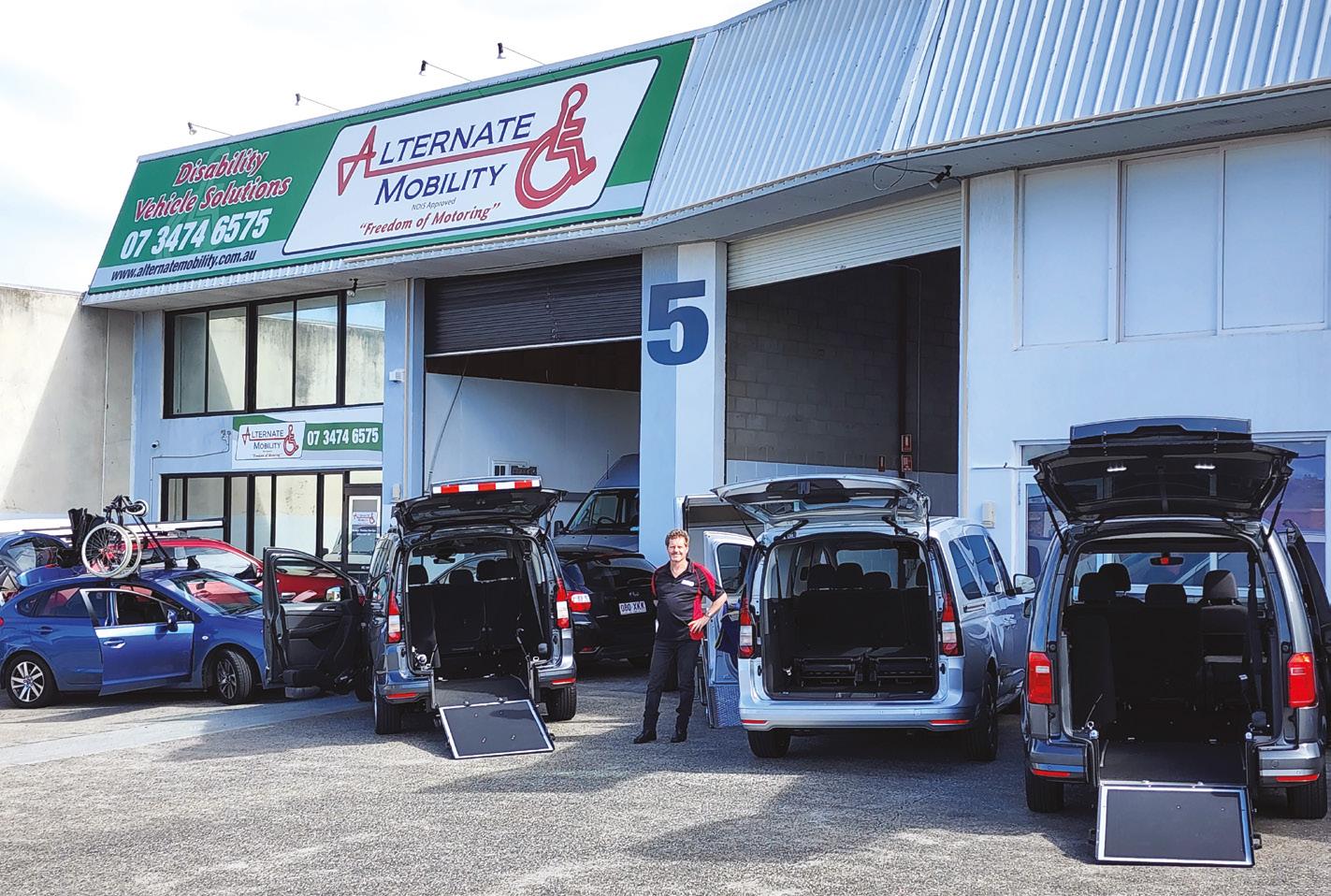




Unit 1/5 Miller Street, Slacks Creek, Qld 4127 Email: sales@alternatemobility.com.au Alternate Mobility : NDIS Approved “ Freedom of Motoring” NDIS Provider# 4050004526 To simplify your family’s transportation Get Your Family Mobile with Simple Upgrades to your Vehicle • Van Fit Outs • Turney Seats • Hoists • Docking Stations NDIS Approved Volkswagen CADDY GEN 5 with a lowered floor set up Brisbane Service Agents for: Call (07) 3474 6575 Visit our website: www.alternatemobility.com.au • Wheelchair Ramps & Lifts • Hand Controls • Careva Harnesses • Custom Jobs Disability Vehicle Conversion for Wheelchairs & Mobility Scooters A
A decade in car modifications and more Link to... Automotive Services linkonline.com.au 45
Freedom Motors – at the cutting edge of wheelchair modifications
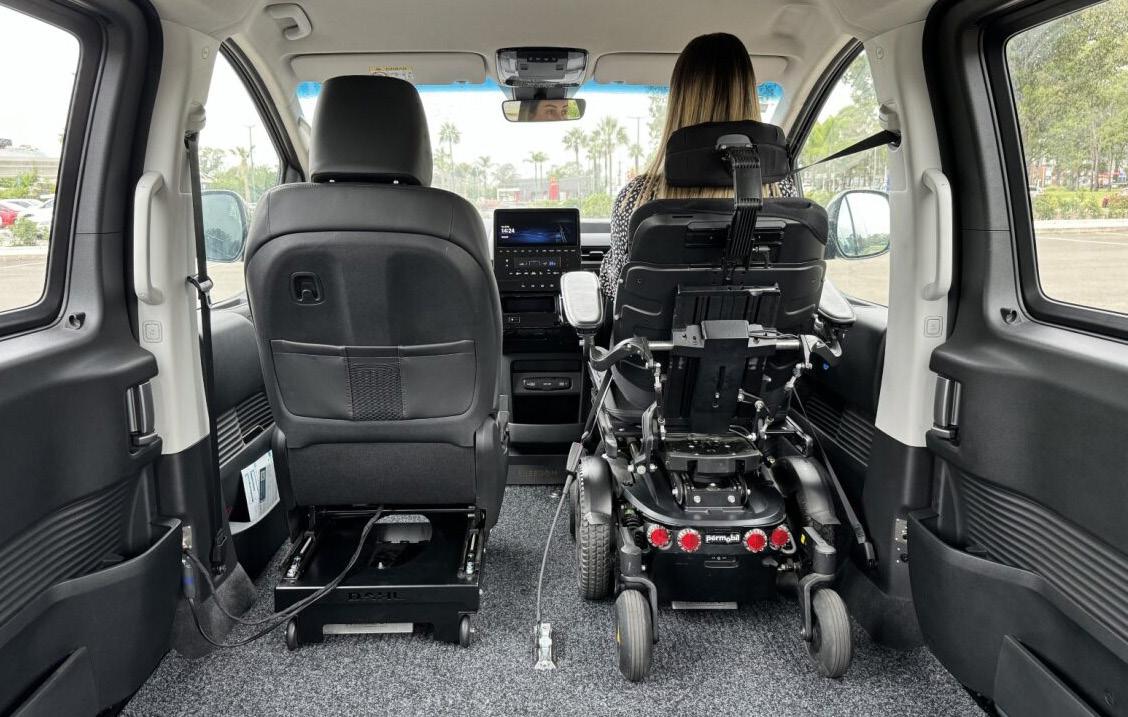
Based in Sydney, New South Wales, Freedom Motors Australia emerged in 1997, igniting a journey to revolutionise vehicular accessibility nationwide. Over the years, our dedication has propelled us to the forefront of the industry as a leading provider of wheelchair accessible modifications. Specialising in bespoke solutions, particularly in lowered floor conversions, our mission is to empower individuals with enhanced mobility options and to give them ‘Freedom’.
At Freedom Motors, innovation and reliability are the foundation of what we offer. We take pride in introducing cutting-edge wheelchair transportation solutions to the market, seamlessly integrating them into a diverse range of makes and models of vehicles, vans, and taxis. Popular conversion choices have been the latest Kia Carnival and Hyundai Staria models.
Our expertise spans the design, manufacture, and installation of lowered floors, ramps, and hoists
across both private and commercial vehicles. Central to our approach is the creation of user-friendly designs, ensuring effortless accessibility through rear entry configuration and gently sloping wheelchair ramps. Our aim is to streamline the in and out process for a wheelchair user, eliminating the need for turning manoeuvres within the vehicle.
In our pursuit of inclusivity, we have developed a rear entry wheelchair access design that not only caters to individual needs but also accommodates families with ease, offering ample seating options. This seamless integration is further enhanced by our attention to detail and high-quality conversions, seamlessly combined with renowned branded vehicles.
Beyond mere modification, our mission is to empower individuals to reclaim their mobility and independence, where they can either transfer into the driver’s seat or drive from their wheelchair themselves. We unveiled Australia’s first fully lowered floor Hyundai Staria conversion,
engineered for unparalleled wheelchair accessibility. Available with either side entry featuring an underbody lift or rear entry with a ramp, this innovation offers versatility in parking options or accommodates to a towing enthusiast.
Utilising advanced remote controls, wheelchair users can independently enter the vehicle and position themselves behind the steering wheel. Our array of driving controls, ranging from basic push-pull handoperated systems to sophisticated joystick or mini steering wheel configurations, coupled with voice control functionalities, cater to diverse preferences and needs. Additionally, the wheelchair can be positioned on the passenger side when necessary, allowing a seamless swap to be possible with the passenger seat, which retains all original features such as airbags and electrical functionalities.
This extensive modification process underwent over a year of development and rigorous testing in accordance with Australian Standards, reflecting our unwavering commitment to safety and quality. Leveraging over 25 years of experience, coupled with the dedication of our designers and modifiers, we have achieved a milestone in vehicular accessibility. We trust that our brand's legacy speaks through the communities we serve, buoyed by our wealth of expertise and the widespread presence of over 3000 Freedom vehicles on Australian roads.
At Freedom Motors Australia, we are committed to delivering tailored solutions that exceed expectations. Contact us on 1800 672 437 to embark on a journey towards enhanced mobility or schedule a demonstration with one of our knowledgeable sales representatives.
For more information, visit: www.freedommotorsaustralia.com.au
Link to... Automotive Services 46 June/July 2024
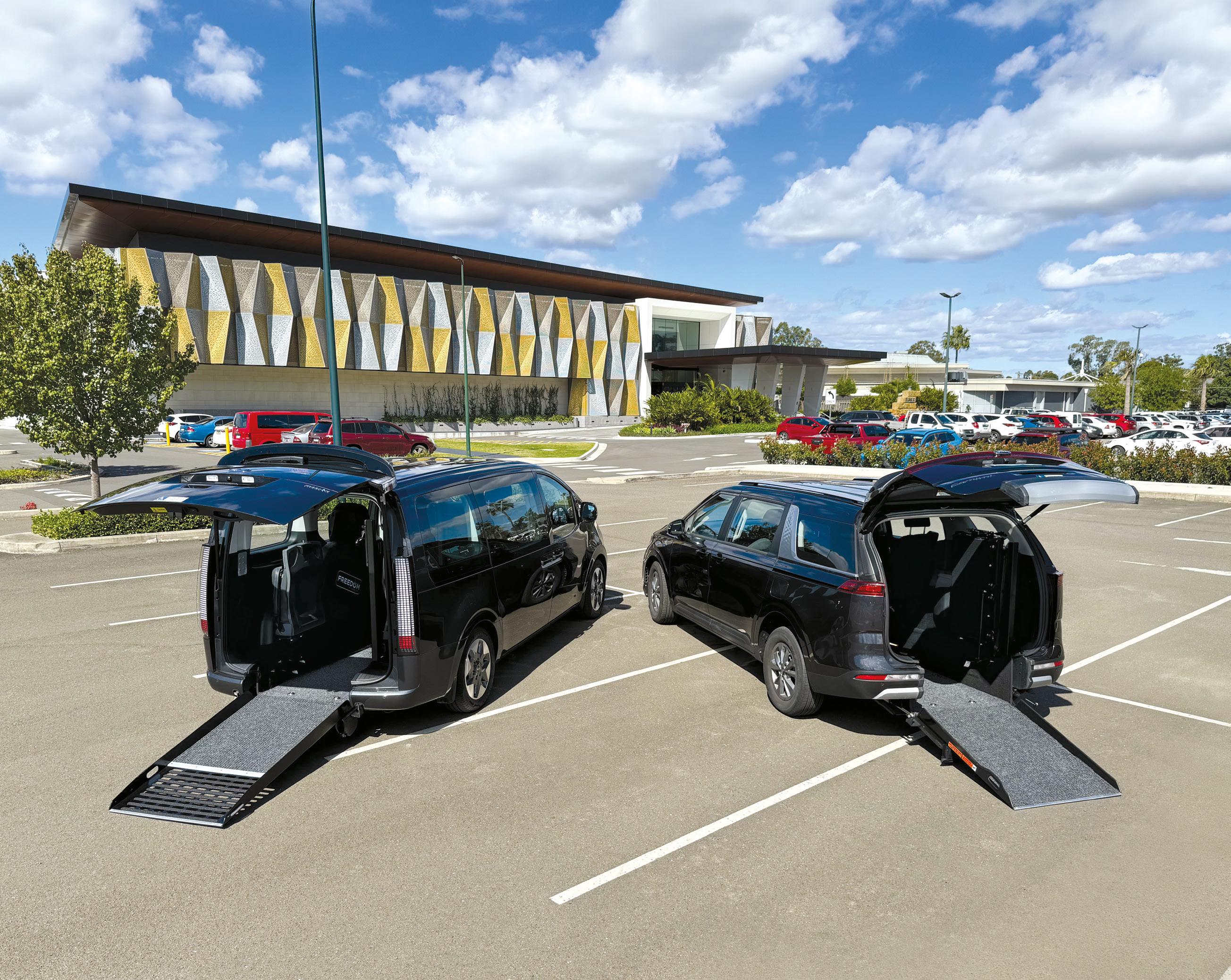
WE DELIVER FREEDOM YOU CHOOSE THE DESTINATION FREECALL 1800 672 437 WWW.FREEDOMMOTORSAUSTRALIA.COM.AU 17 PLASSER CRES, ST MARYS NSW 2760 PROVIDING WHEELCHAIR ACCESS MODIFICATIONS FOR 25+ YEARS. ALSO SPECIALISING IN THE FITMENT OF: WHEELCHAIR HOISTS/LIFTS, TURNING SEATS, WHEELCHAIR RESTRAINTS, WHEELCHAIR DOCKING SYSTEMS, DRIVING CONTROL SYSTEMS AND MUCH MORE. CONTACT US NOW TO BOOK A DEMO WIT H YOU R STATES REPRESENTATIVE.
Sunrise2Sunrise is a Registered NDIS provider doing things differently. We take a personalised approach and tailor our services to each participant.
Supported Independent Living
Community Participation
Support Coordination • In-home Support & Personal Care
Development of Life Skills • Domestic Assistance • Child, Youth and Family Services Phone: 03 9188 3499 Sunrise2Sunrise.com.au
•
•
•
•
We love
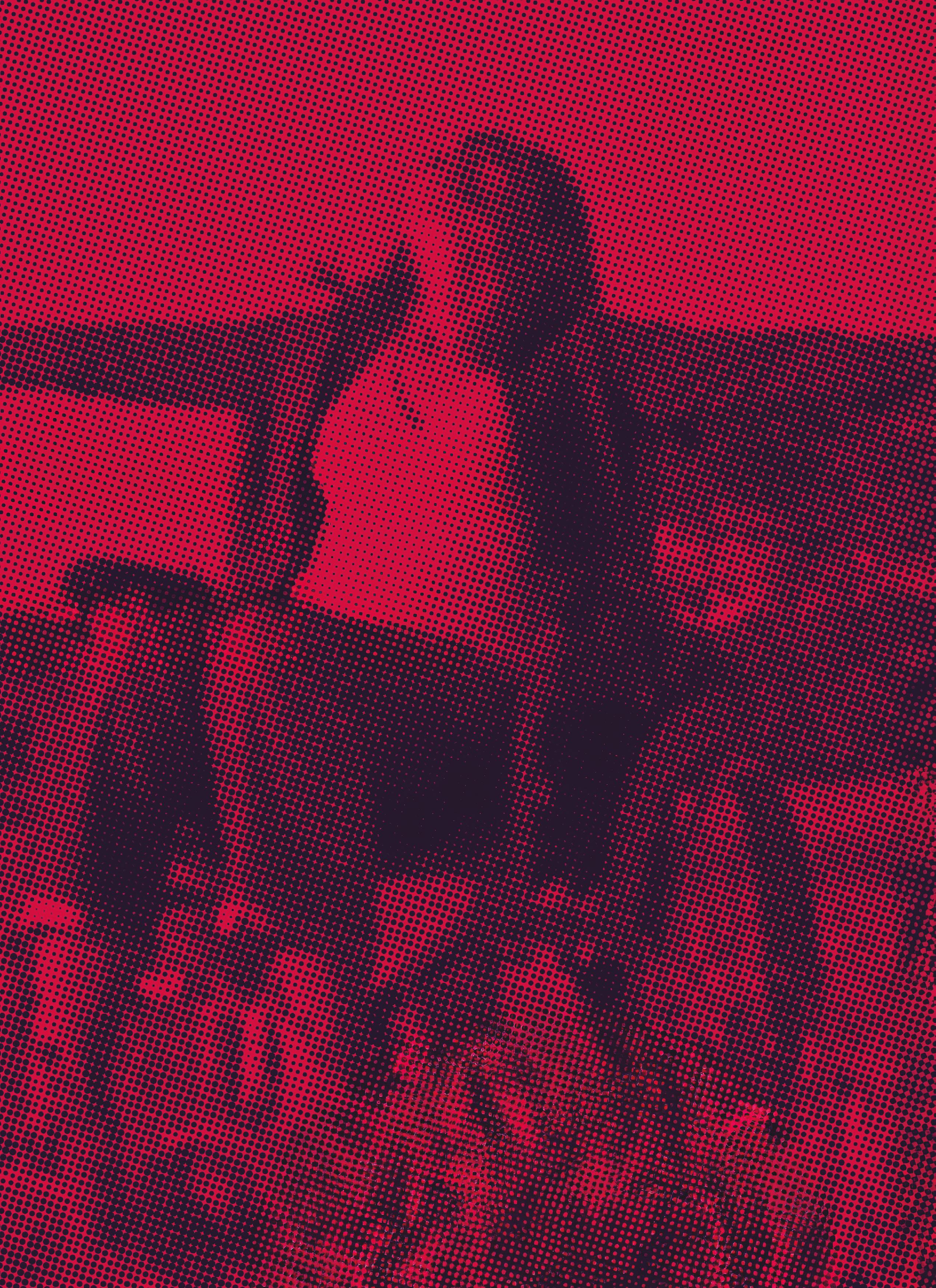
Disability Care when you need it, how you want it.
Challenges facing SDA in Australia
As CEO of Victorian based NDIS provider Sunrise2Sunrise, Ravi Bhatt has been engaged in monitoring the trajectory of Specialist Disability Accommodation (SDA) in Australia, with recent data showing a concerning trend that despite allocated funding, there exists a surplus of unused SDA properties.
And the numbers paint a vivid picture, a substantial increase in total SDA supports, reaching a $440 million by December 2023, alongside a burgeoning count of 8,590 enrolled SDA dwellings during the same period.
“However, within this growth, a significant issue looms large, as of December 2023, a staggering 8,961 active participants with SDA funding have yet to utilise this support,” he told Link.
“These individuals, deserving of tailored accommodations, remain unlinked to available SDA properties and raises a critical question as to why?”
The underlying reasons behind this disparity are multifaceted. They range from challenges in finding suitable matches between participants and properties to factors of choice and control, where individuals may opt against residing in specific areas, or families may reject locations or funding levels. Each presenting a unique challenge in bridging the gap between allocated resources and their practical implementation.
“Another significant challenge we're observing is the situation where young individuals with severe behaviours of concern, who are approaching 18 and consequently transitioning out of the care of the Department of Families, Fairness, and Housing
(DFFH), are allocated the same SDA funding as others.
“This allocation assumes they will be able to effectively adapt to living in a smaller residence than they are accustomed to. Frequently, this puts those assisting them at higher risk. How can it be that the most substantial SDA funding level cannot accommodate someone in a more fitting property size to meet their needs?”
“Sunrise2Sunrise is committed to working in tandem with government agencies, service providers, and advocacy groups to tackle this challenge head-on.”
While the NDIS has made commendable strides in bolstering support for Australians with disabilities, a critical bottleneck exists in translating funding into tangible outcomes.
Although the NDIS was designed to complement existing services, including housing provisions, the gap between funding allocation and utilisation underscores an urgent need for recalibration.
“The surge in enrolled SDA dwellings, especially in robust and high physical support categories, signifies a proactive response to the growing demand for specialised accommodations. However, this momentum risks being undermined if we fail to address the disconnect between supply and demand, a
challenge that demands collective action and innovative solutions,” Bhatt said.
“As stakeholders in the disability ecosystem, it is imperative that we collaborate to streamline processes, enhance matchmaking mechanisms between participants and properties, and foster greater transparency in decision-making. “This entails leveraging technological advancements to track and analyse utilisation patterns, identify bottlenecks, and implement targeted interventions to optimize resource allocation.
“We must adopt a holistic approach that goes beyond the mere provision of accommodations to encompass wraparound support services. This ensures that individuals not only have access to suitable housing but also receive the necessary assistance to thrive within their communities.
“Sunrise2Sunrise is committed to working in tandem with government agencies, service providers, and advocacy groups to tackle this challenge head-on. By harnessing collective expertise and fostering a culture of innovation and collaboration, we can turn the tide on the SDA conundrum, transforming allocated funds into meaningful impact for those who need it most.”
According to Bhatt, the proliferation of unused SDA properties stands as a stark reminder of the imperative to bridge the gap between intention and execution, between funding allocation and realisation.
“We must seize this opportunity to recalibrate our approach, ensuring that every dollar invested translates into tangible outcomes, and that every individual, irrespective of ability, can lead a life of dignity and fulfillment.”
Link to... Accommodation & Home Support 50 June/July 2024
Living spaces modified for accessibility and safety
VIP Access is dedicated to enhancing your quality of life through unique disability renovations.

Led by owner Scott Darmanin, a registered builder and wheelchair user, VIP Access offers a perspective that blends expertise with personal understanding.
Its commitment to Australian standards ensures the safety and functionality of every modification, from minor adjustments to major renovations.




With a focus on creating accessible spaces, VIP Access specialise in adapting bathrooms, kitchens, laundries, lift installations and more to meet the diverse needs of its clients by removing obstacles and incorporating modifications to foster independence and convenience in daily life.
The company not only complete major modifications but also minor modifications including but not limited to installing grab rails, ramps, bidet installation, stair lifts, pool hoists and rails and Therm-Oz installations.
VIP Access works closely with a wide range of clients, ranging from private clients, My Aged Care, DVA, Insurance and the NDIS. As a NDIS provider, it prioritises safety and accessibility in



every project, ensuring that homes are transformed into secure and welcoming environments. The team is dedicated to supporting clients through every step of the process, from initial consultations to the completion of renovations.
If you are considering modifications for yourself or a loved one, reach out to VIP Access. It operates in South-East Queensland from the Gold Coast border, Scenic Rim and Ipswich to south of the Brisbane River, and ready to help you create a safer, more accessible home.
Contact us today at: enquiries@vipaccess.net.au or (07) 3807 4309 to discuss how we can assist you in making your home accessible.







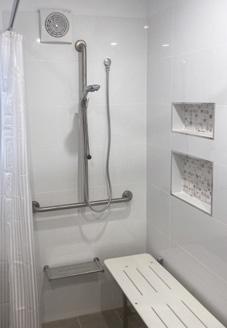



































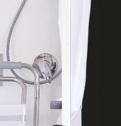











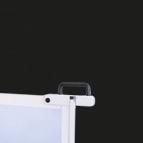
















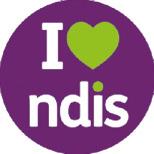






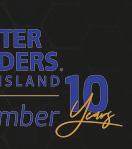


Link to... Home Modifications
linkonline.com.au 51
Scott and Melissa Darmanin
Navigating independence through tailored solutions and thoughtful home adaptations

Linds Rehabilitation Equipment has been offering solutions to its clients for over 50 years. Over that time, it has progressed from the trusty old walking stick to customised rehabilitation equipment.
Linds Rehab has gained recognition for its creative approach to rehabilitation, offering a diverse array of customisable products that go beyond the norm. From intuitive adaptive wheelchairs to smart home and lifestyle products, the company's portfolio addresses a multitude of mobility challenges.
….a diverse array of customisable products…
Moreover, Linds Rehab recognises the crucial role that home modifications play in fostering independence.
While home modifications are crucial for creating an accessible living environment, Linds Rehab's extensive
range of home and lifestyle products demonstrates that there are numerous ways to enhance the daily lives of seniors and individuals with disabilities.
Daily living assistance
There are so many products in our range that can assist in everyday living. Items like specialised cutlery which offer an easier dining experience, ensuring that every meal is a moment of enjoyment rather than a challenge. Key turners make access to homes effortless, eliminating the frustration of turning keys for those with limited hand strength.
Navigating the home becomes more manageable with self-help poles, offering stability and support where needed. Meanwhile, shower stools provide a secure seating option for a safer bathing experience, contributing to overall well-being.
For individuals seeking enhanced mobility, Linds Rehab provides slings and reachers that facilitate reaching objects and offer additional support
during transfers. The overbed tables cater to those who require a versatile workspace within the comforts of their bed, making various activities more accessible and so many more.
The company's portfolio addresses a multitude of mobility challenges.
While home modifications are crucial, there exists an extensive list of products offered by Linds Rehab that cater to diverse needs, allowing for a more independent and fulfilling life.
As we embrace the possibilities of assistive technology, the journey toward a more inclusive and accessible future becomes increasingly promising. Linds Rehab isn't just redefining accessibility; it's making independent living a reality for everyone seeking a life filled with dignity, freedom, and endless possibilities.
Link to... Home Modifications & Housing 52 June/July 2024


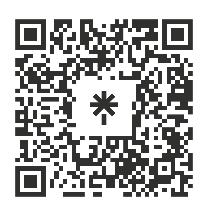
sales@lindsrehab.com.au 1800 501 601 www.lindsrehab.com.au


Got a question about Telstra’s disability products or services? The Disability Enquiry Hotline provides specialist advice to customers with disability and their carers across Australia. Visit telstra.com.au/accessibility-and-disability for more information. Call 1800 068 424
NZ pilot produces beneficial results for families
An online pilot program in New Zealand that teaches about financial capability to families with disability has shown positive outcomes. Program coordinator Kate Donley spoke to Kymberly Martin.

The intensive four- week workshop on financial management coaches groups of 10-15 people with a focus on low-income families with limited financial education, for one and half to two hours once a week. There is also a one-hour, one-on-one session with a facilitator to help put the learning into practice.
“In a cost-of-living crisis it’s hard to survive on a lower income”
Donley said many people have no idea how to budget and spend money week to week.
“The program covers emergency savings, for instance if your car breaks down you need to have a buffer of a few hundred dollars to get out of that cycle of debt.
“In a cost-of-living crisis it’s hard to survive on a lower income. We explain how they can manage their income, take control of their finances, and prioritise paying their rent, electricity, and food first. Teaching the basics of good money management to live the best lifestyle they can, even on a low income.”
The course includes a legal section on power of attorney and wills. “A group of mothers with children with disability were concerned if they became sick or died. We give them the tools to plan for these possible situations.”
Content also covers disability eligibility and government funding.
“In New Zealand you need to know what to ask for as no one will offer it to you,” she said. “It is an evolving process, and we include information on cyber security as people on a low income can be more susceptible to scams.”
There can be concerns with individualised funding where you are giving people access to bulk amounts of money which they are not used to, “explaining the best ways to budget, before they rush out and buy nice equipment but don’t allow for extra costs that might arise, such as a service delivery fee”.
…it has created an informal network among families…
Independent Living Services NZ that provides services for people with disability, assisted with setting up
the program that initially involved workshops at the Royal Oak centre in Auckland, which proved to be difficult to get people out in the evenings.
“Maybe it was a post-Covid thing, so we moved the program online and it now reaches people all around NZ, particularly those living in regional areas without access to a lot of support services,” she said.
Connecting produces surprising results
“We are reaching people in isolated areas without access to services which has created an informal support network among families with disability.”
Post-Covid it has been hard to get people involved in some of these programs and as an incentive, participants are given a supermarket voucher for each session they attend.
But the program does deliver some unexpected outcomes.
“One lady, a new migrant who had never met anyone in NZ with her disability met another woman with the same disability. They met online and although they live in different towns have stayed in touch and set up a Facebook group.”
The program is also helpful for people either recovering from an accident, or just out hospital wanting information about services and support that are available for them.
Ministry of Disabled People funded the program from July to December 2023 and, with an interim valuation report showing how beneficial it has been, funding has been extended to June 2024.
Link to... News
56 June/July 2024
New positioning cushions for enhanced comfort
Introducing the Make Rehab Next Generation Positioning Cushions, crafted to deliver unparalleled stability and pressure relief, ensuring optimal patient positioning at all times. These groundbreaking cushions feature an innovative filling of small, oval-shaped dynamic bullets which seamlessly blend softness with unmatched stability. In contrast, conventional cushions filled with granulated foam or polystyrene balls, are prone to deterioration which compromise support over time.
These Next Generation cushions are engineered to endure 50,000 instances of pressure loading and still retain their shape and structure.
The Make Rehab Next Generation Positioning Cushions prioritise longevity and durability, ensuring consistent support and stability
throughout prolonged use, crafted from breathable, stretchable, antibacterial, waterproof, and fire-retardant PU material.
including delicate or healing injuries. By modifying the cushion's filling level, they can be tailored to meet each client's specific requirements.
The cutting-edge bullet filling technology not only guarantees durability but also provides protection against heat and moisture buildup. Engineered with optimal weight and stability to prevent collapse, these cushions securely maintain patient positioning without compromise.
The unique bullet shape facilitates consistent positioning over time and enables micro-adjustments tailored to individual body shapes and needs,
Maintenance is effortless; simply wipe the cushions with disinfectant for quick drying and readiness within minutes. Make Rehab Next Generation Positioning Cushions signifies a monumental advancement in patient care, integrating both advanced technology with usercentric design to elevate standards in positioning and comfort.
Follow us on social media:
• https://www.youtube.com/@ activerehabaustralia
• https://www.instagram.com/ lifebeyondthenorm/
• https://www.facebook.com/ lifebeyondnorm
• www.activerehab.net.au

Rehab equipment, tailored for your life. www.activerehab.net.au Book an appointment today Call: 03 5441 8966 | E: support@activerehab.net.au
… engineered to endure 50,000 instances of pressure
loading…
Link to... Home Support linkonline.com.au 57
Is an assistance animal assistive technology?
By Libby Callaway and Melanie Hoyle
The National Disability Insurance Scheme identifies assistance animals as a type of assistive technology and provides operational guidelines on the criteria for an animal support to be considered for funding within the scheme.
Whilst the World Health Organization defines assistive technology as an umbrella term for assistive products and their related systems and services, and assistance animal organisations work hard to raise funds for and train animals to partner with humans for medical, physical, or emotional support, sometimes thinking about the link between an animal and a product may be challenging.
What is important to understand though is the difference between the types of animal supports that exist, and how a person may partner with an animal in everyday life.
More broadly, it is useful to understand how environmental design (e.g. of community buildings or houses), assistive technology (that is products and services), and human or animal supports can make a real difference to independence and participation when a person is living with a disability or health condition.
Firstly, let’s look at the types of animal assisted services that a person may consider:
• Companion animals: Also referred to as a pet animal, a companion animal’s primary role is to provide companionship and companion animals do not have public access rights under the law.
• Therapy animals: A therapy animal has usually undergone some training and assessment and is

handled by an owner or someone who is working in the therapy session to support or further enable the completion of therapy activities in a specified session of engagement.
• Assistance animals: Assistance animals are specifically trained to perform tasks that relate to the animal handler’s health condition or disability and have full public access rights which are protected under the Disability Discrimination Act 1992.
Now let’s think about the activities and participation domains that may be important to a person, and how an animal support may assist. The International Classification of Functioning, Disability and Health lists a whole range of activity and participation domains.
A companion animal may assist across some of these, or a therapy animal may provide support or input in sessions where skills relating to activities and participation are being developed or practiced. In contrast, an assistance animal can be trained in very defined assistance or service roles to provide support within specified tasks (e.g. picking up laundry items and placing them in a washing machine for someone who has limited hand function to do so, or assisting with vision or hearing support in activities
when a person experiences vision or hearing loss, or sometimes to manage health conditions associated with specific bodily functions and structures (like alerting a person with diabetes in the case of a change in insulin levels, or providing an early seizure alert for someone who has epilepsy).
Finally, it’s important to remember that in person-centred practice the best place to start a conversation in the planning of supports is with a focus on a person’s goals, priorities, and needs in everyday life. It is only then that it is possible to collaboratively consider the range of way these goals and needs may be met and one of those ways may be through partnering with an animal, whether that is a companion, therapy or assistance animal depends on the activities and goals the person has.
It is certainly worth keeping the range of support options that may be available to a person in mind, but also being clear on the definitions, roles and justification of different types of animal supports that may be possible.
Associate Professor Libby Callaway is Strategic Executive Advisor of the Australian Rehabilitation and Assistive Technology Association (ARATA), and a registered occupational therapist who works across the Rehabilitation, Ageing and Independent Living (RAIL) Research Centre and Occupational Therapy Department at Monash University in Victoria. Callaway and her family are also volunteer puppy educators for Assistance Dogs Australia. Dr Melanie Hoyle is President of ARATA, and a registered occupational therapist who works for the School of Health and Rehabilitation Sciences at The University of Queensland. Hoyle has an interest in and is currently involved in research projects exploring animal assisted services.
Link to... Assistance Animals 58 June/July 2024
Footpath clues: where are they?
By Jane Bringolf

Research by Guide Dogs NSW/ ACT has revealed there are new footpath and urban design challenges faced for people with low vision or blindness. The research is part of a longitudinal study to understand what environmental and footpath clues are needed and used. Tactile indicators are only part of the story even when they are present and properly placed.
A 2023 survey of 622 people with low vision or blindness from around Australia, found many challenges impacted their confidence in getting out and about with new-style urban design features creating additional
challenges with micro-mobility, shared paths, shared roads, and crowd protection barriers now on the list.
Shared paths
The application of shared paths has increased significantly since an earlier survey in 2015 and is now emerging as a major issue. The speed and unpredictability of cyclists and micro-mobility users means these paths feel unsafe.
Another new and popular urban design feature is flush finishes. Not surprisingly, 80 per cent of respondents
lacked confidence in crossing roads when the footpath and road were at the same level. Places where the road and footpath are level are often found in shared zones and flush finish intersections. Respondents over the age of 65 find these finishes particularly unsafe. The absence of clear distinctions and continuous finishes hinder straight-line navigation, made worse by street furniture, goods displays, and outdoor dining positioned along the building line.
Flush finishes at intersections with traffic lights where there are no gutters, kerbs or kerb ramps are a significant challenge. Multiple lanes of traffic in both directions, together with buses and light rail, create high levels of anxiety for safety and often avoided.
Wayfinding
Key wayfinding factors for safe travel are based on maintaining a straight path, safe road crossings, and knowing where it is safe or hazardous. This is regardless of whether the person is using a cane, a guide dog, or their remaining sight. Kerb ramps are vital markers and those who are blind or have low vision know to pause and assess the situation. They also reinforce appropriate guide dog behaviour when approaching roads.
From a universal design perspective, many design features that are essential for some, are also good for others. Children are taught to stop at kerbs for safety, and older people prefer clear separation between footpaths and other zones. People with neurodiverse conditions, including dementia, also need clear signals to navigate the built environment.
Read more about this research in Access Insight. Environmental clues: Using them and losing them.
Dr Jane Bringolf, chair, Centre for Universal Design Australia.
UNIVERSAL DESIGN linkonline.com.au 59
The healing power of Pet Therapy: Enhancing Recreational Therapy
In recreational therapy well-being and quality of life are pinnacle using pets as a therapeutic modality can offer many benefits. Recreational therapists implement animal-assisted therapy (AAT) and animal assisted activities (AAA), to improve physical, social, emotional, and cognitive functioning. From hospitals to nursing homes, schools to rehabilitation centres, the integration of pet therapy into recreational therapy programs has showcased transformative effects on participants' overall wellness. One of the primary advantages of pet therapy lies in its ability to alleviate stress and anxiety. For individuals accessing recreational therapy services, including people with a lived experience of mental health or chronic illness, the calming effects can be profoundly therapeutic. When involved in AAT and AAA individuals experience positive emotions and a sense of connection which can reduce feelings of loneliness and isolation.
Pet therapy fosters benefits for social interaction and communication skills as animals provide a non-judgmental presence, creating a safe space for individuals to express themselves freely. This can be particularly beneficial for individuals who may find it easier to engage with animals than with humans. Through meaningful interactions with therapy animals, individuals can learn social cues and build improved interpersonal relationships with others outside of therapy sessions. An outcome of pet therapy may be that individuals have improved motivation and participation within group-based recreational therapy programs.
In terms of physical health benefits, pet therapy offers notable advantages

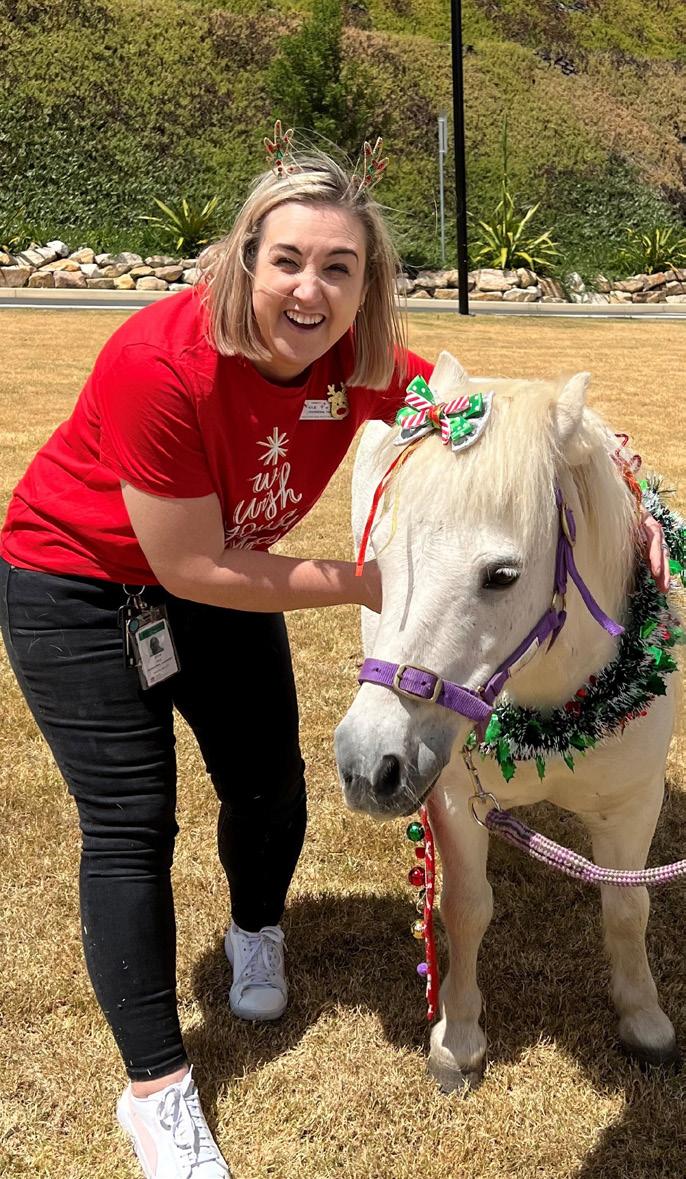
as well. Studies have shown that spending time with animals can lower blood pressure, reduce heart rate, and even alleviate pain. For individuals undergoing rehabilitation or managing chronic pain conditions, incorporating pets therapeutically can complement traditional treatments and accelerate recovery. Activities like walking a therapy dog, grooming activities or engaging in gentle play can also contribute to improved
mobility and coordination and may increase participation in other physical recreation activities.
The therapeutic use of animals has been found to enhance cognitive function and stimulate mental acuity. The sensory stimulation provided by interacting with animals, such as touching their fur, hearing their sounds and observing their movements can also sharpen focus and attention. For individuals experiencing cognitive changes or memory loss, engaging in play-based activities with therapy animals can support memory recall, encourage spontaneity, and increase engagement.
Beyond individual benefits, pet therapy has a broader positive impact on the therapeutic environment. The presence of therapy animals can create a warm and welcoming atmosphere, reducing feelings of isolation and institutionalisation often associated with healthcare facilities. Additionally, it can serve as a powerful morale booster for patients, families, staff and visitors, fostering a sense of joy and companionship amidst challenging circumstances.
Integrating pets into recreational therapy programs offers many benefits that encompass physical, social, emotional, and cognitive well-being. By harnessing the healing power of animals, recreational therapists can provide holistic and effective interventions that address the diverse needs of their clients. Whether it's a wagging tail, a gentle nuzzle or a playful romp, the simple presence of therapy animals has the remarkable ability to uplift spirits, promote healing, and enhance the overall quality of life for individuals undergoing recreational therapy.
Link to... Assistance Animals
60 June/July 2024
Recreational therapist Kylie Rice
Therapy Animals – delivering special support in schools
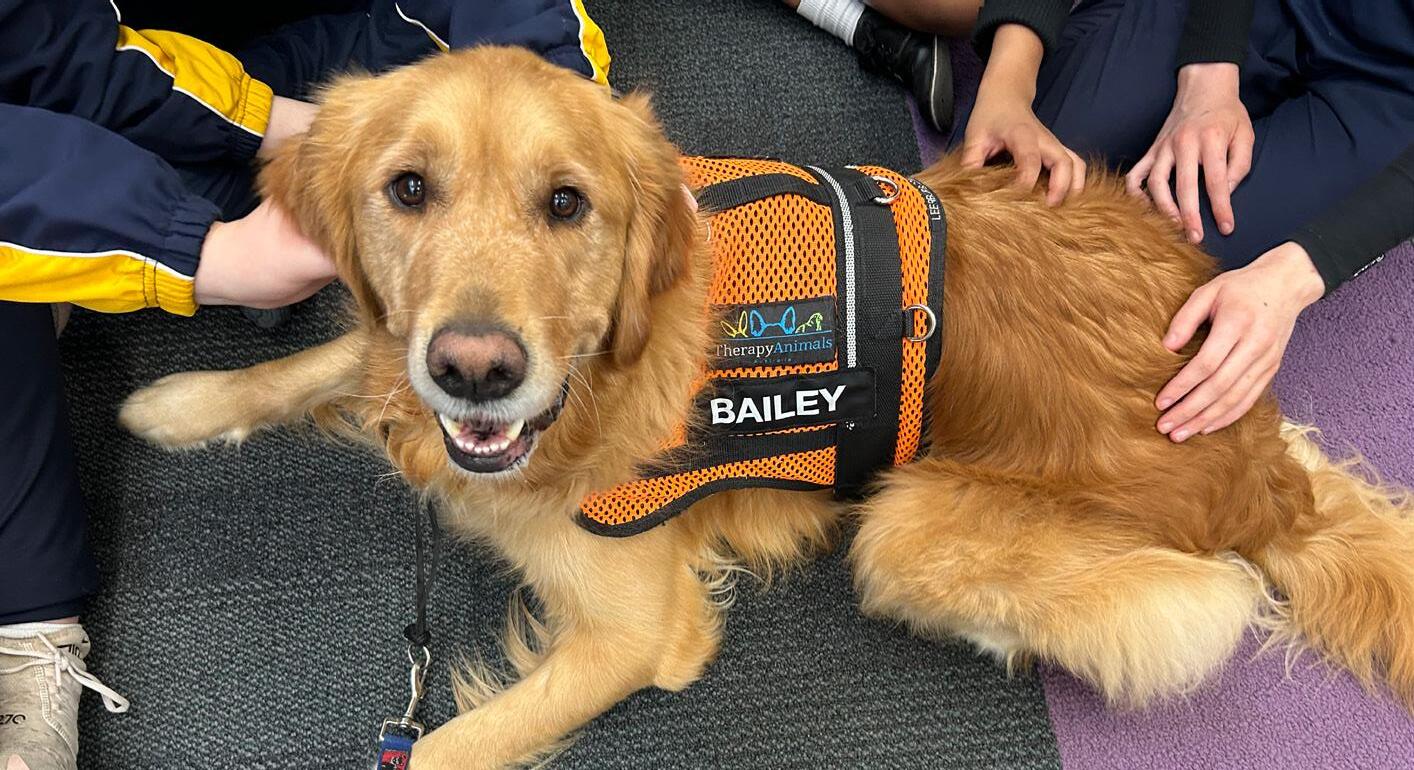
Therapy Animals Australia has spent the last decade training and accrediting dogs for specialised roles, including both Service (Assistance) dogs and Therapy dogs. The organisation helps people do the groundwork to get their dog ready for the formal Service dog training program offered by Service Animals Australia, offering highly specialised and complete programs for Therapy Dogs and their handlers. This involves ensuring all dog/ handler teams meet the Service Animals Australia Essential Standards for Therapy Dogs and maintain this level.
“We pride ourselves on the high standards of our accredited therapy/ dog teams, as well as the ongoing support and professional development to clients in teaching the skills and knowledge they need to integrate their dog safely and effectively into their unique environment, to achieve the best outcomes they can for the people who engage with them,” Therapy Animals specialist Melanie Rundle told Link. And once accredited, dog/ handler teams must be re-assessed to maintain their therapy dog status.
“Due to the high demand for the support a well-trained dog can offer,
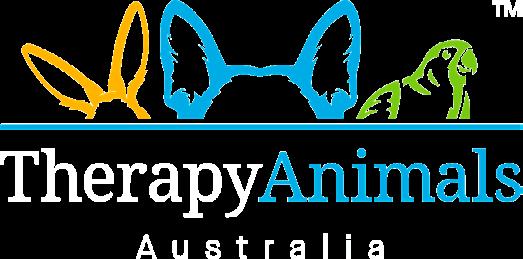
we have developed our “PAWS In Schools”, “PAWS at Work” and “PAWS in Care” programs which allow facilities to offer their clients, patients, and staff the benefits of interacting with a specially trained therapy dog/handler team, without having to own and train the dog themselves,” she said. “We love seeing the smiles and joy our dogs bring to each place we visit. This is a proactive approach for creating a unique and fun team building experience that facilitates positive staff interactions and is guaranteed to lift the mood in the room.”
According to Rundle, the impact visiting therapy dog/handler teams have in schools is powerful. The PAWS in Schools program is centred around the effective use of a trained therapy dog by a skilled handler. “PAWS in Schools dog/handler teams are trained to assess the immediate needs of students and assist them to overcome difficulties and challenges that they find overwhelming, and the work is extremely rewarding. The dog/handler teams can provide a unique type of support to achieve outcomes that have previously been unattainable.”
The program offers support at various levels from individual and small groups
though to whole classes and in some cases year level presentations. Dog/ handler teams take the time to get to know individual students, their needs, as well as their challenges and triggers.
“We work closely with school staff to set individual goals and develop personalised learning experiences and programs, as well as provide immediate ‘in the moment’ support to help students regulate their emotions and re-engage with their learning,” Rundle said.
Handlers incorporate the dog into explicit teaching about emotions and social skills, as well as developing academic skills through targeted literacy and numeracy intervention support sessions and programs.
“Students in upper primary levels who have fallen significantly behind in literacy and numeracy often avoid these tasks at all costs as they know they don’t have the skills to succeed. The result is high anxiety and/or very challenging behaviour. These behaviours often take over to the point where students fall into a pattern of avoiding engaging with learning tasks and help is not accepted from teachers or support staff,” she said. “The cycle is repeated, students fall even further behind, but these are the scenarios we love to bring our dogs into.
“Making a positive connection and being able to meet the needs of these students is quite a privilege. Our dog/handler teams are highly skilled in modifying tasks and experiences that allow students to feel safe and take small risks in their learning to experience success and gain the motivation they need for further learning,” she said.
Contact: info@therapyanimals.com.au to find out more about programs or to make a booking.
ASSISTANCE DOGS linkonline.com.au 61
Inclusive outback business picks up two awards

Katherine Outback Experience has won two 2023 Qantas Australia Tourism awards, taking out gold for Tourist Attraction and bronze for Excellence in Accessible Tourism.
Owner Annabel Curtain told Link the Northern Territory business has focused on becoming more accessible and inclusive in the past year.
“We developed an Accessibility Guide for the website and redeveloped the car park closer to the venue. While some are small changes, we were mindful of both the older demographic with low mobility requirements and families with small children with specific needs.”
The site is step-free, with accessible toilets and undercover seating for people in wheelchairs. Check-in facilities are also designed to be wheelchair suitable, and the petting zoo farm animal space provides different height options to engage with the animals.
“We have put in a lot of training for staff using resources from Queensland Tourism. Staff always take the opportunity to ask visitors with a visible
disability, if there is anything special we can do for them,” she said.
The tourism attraction runs a Farm Therapy Project for local organisations that includes a special needs school in Katherine with a 10-20-week program for children with autism to learn about horses - riding, leading, grooming and saddling.
The Ghan Train comes through four times a week and there is often a passenger in a wheelchair wanting to discover the outback.
The Katherine site operates from April to October. In the summer season, November to March, the show takes to the road complete with horses, goats, dogs and a stage, visiting regional areas around Australia, setting up in showgrounds or venues that are accessible and includes working dog demonstrations.
Now in the eighth year of touring the show nationally over the summer, the team has made an effort to ensure they are more accessible.
Much like the attraction in Katherine, the road show includes horse training
and working dog demonstrations. It is more interactive with the audience, particularly kids, and has two hours of live music.
“We have a much better understanding of our markets and know the show is highly valued by those with specific needs particularly for the animal interactions and music,” Curtain said.
“We accept people with Companion Cards too and recently had a patient turn up in a hospital bed at one of our roadshows. Since adding free Companion Cards to our ticketing options, we have seen an increase in support type organsisations bringing small groups of clients to the shows.”
The team is constantly tweaking the show and services based on feedback from guests to make it easier for people to find the information they need and book. Planning is underway for the next national tour that will commence later this year.
For further information, visit www. katherineoutbackexperience.com.au.

Link to... Travel & Leisure 62 June/July 2024
Embrace new adventures with Leisure Options
It would be of little surprise to most that the experience of travelling offers a raft of positive benefits, physically, mentally, and emotionally. Whether you are venturing near or far, the act of travelling exposes us to numerous situations beyond those of our daily lives that help us grow as individuals and work towards achieving our personal goals.
Travel broadens our horizons by allowing us to experience new environments and cultures, helps to boost our confidence with firsthand involvement in new situations and enhances our social skills as we meet new people throughout our journeys.
Perhaps the most significant benefits one could gain when travelling on a holiday are those that reduce personal stress and anxieties, improve your mood and general wellbeing, and help you recharge and relax.
As keen travelers themselves, the holiday team at Leisure Options have all had first-hand experience of the benefits of holidays and travel. The team are well travelled and likewise well versed in the positive attributes that holidays bring and are on hand to help you experience similar benefits yourself.
Leisure Options offers a varied range of small group and personalised One on One departures with options currently available through August 2025. From relaxing cruises to short escapes to grand international adventures there are itineraries bound to appeal to all and, if not, the team will create one especially for you.
With an understanding that selecting your travel destination and holiday style is a personal decision and your goals and desired benefits are also

an individual preference the Leisure Options team will ascertain your chosen goals and what benefits you value the most and plan your holiday accordingly.
The sky’s the limit so let Leisure Options help make your travel dreams a reality.
Tel: 03 9646 0666 or 1300 363 713 or via mail@leisureoptions.com.au.
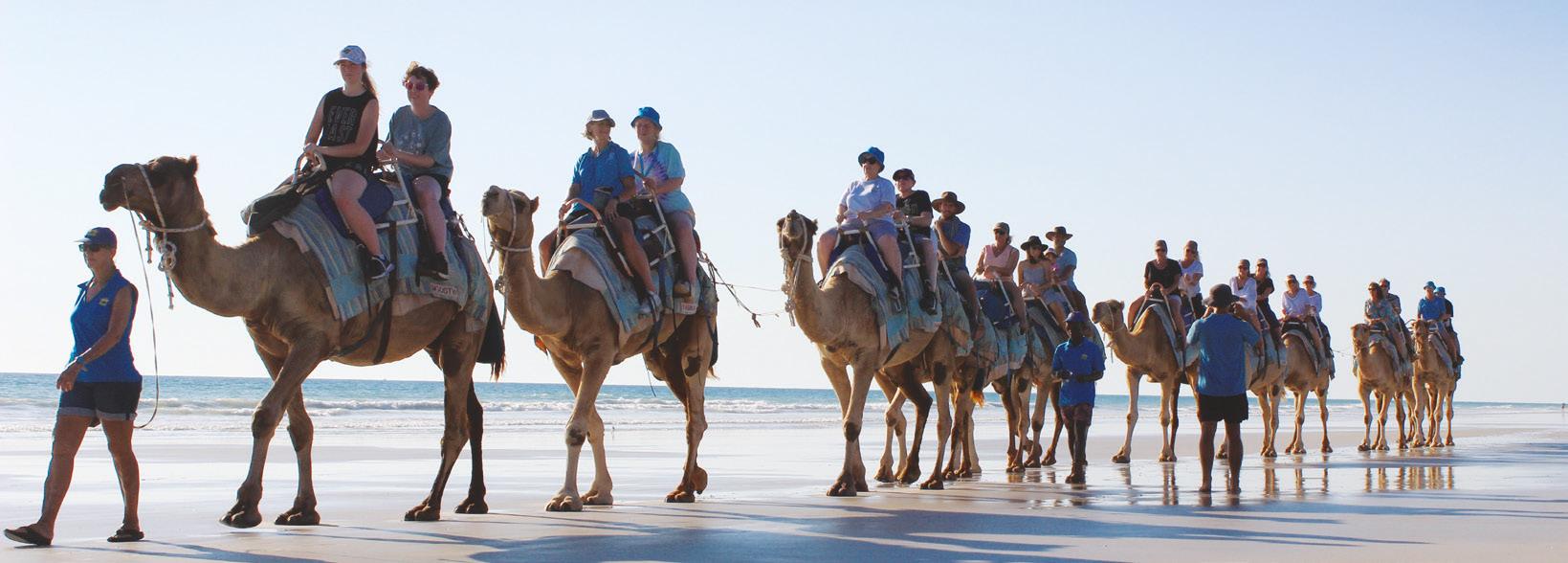
Great holidays and travel for people with disabilities
With more than 30 years’ experience in both the travel and disability industries, Leisure Options is Australia’s only national award-winning, accredited travel agent specialising in supported travel for the disability sector.
Focus on providing holidays that allow maximum choice, loads of fun, high staffing ratios, commitment to individual needs, and a supportive holiday environment
• Choice of either group or individualised touring
• Respite care offered in a stimulating and fun-filled environment
• Over 80 departures annually to local, national and international destinations
• Passionate, energetic, and professional tour leaders with extensive qualifications and a world of experience
Registered service provider with the NDIS






For more information call
or visit our website www.leisureoptions.com.au
1300 363 713
We support the
Link to... Travel & Leisure linkonline.com.au 63
A prescription for change – Loc Tang's journey from Vietnam to Perth
By Sally White
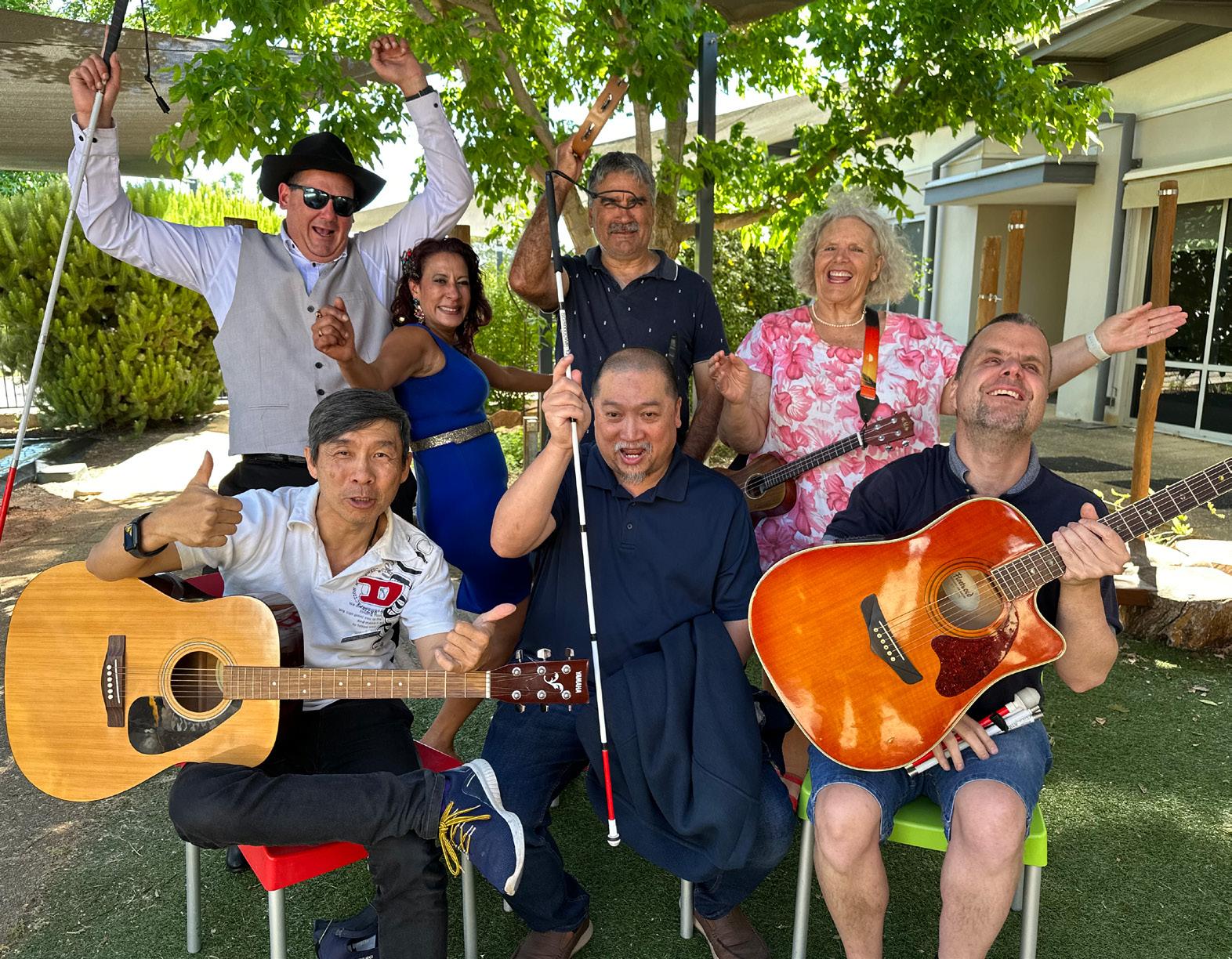
It’s a memory forever etched on his mind. Loc Tang recalls 304 people piled high on a battered fishing boat 18m long by 3m wide. Crammed into one corner of the leaking boat, along with his parents and four siblings, he recalls lying on top of a human. His biggest concern – there wasn’t room for his whole body.
“Looking back, it seems crazy, but I was only 13 at the time. I remember thinking there’s no room for my toe, where can I find space? I could hardly breathe. Everyone was told to lay down low because we weren’t allowed to be seen and that would have been disastrous,” he told Link
WithGrandDelusionsbandmembers
Tang, now legally blind due to glaucoma, is a Vietnamese boat refugee who sought asylum in Australia more than 40 years ago. Sitting in his home, surrounded by musical instruments, it’s difficult to imagine his humble beginnings and his tortuous journey.
It was 1979, his mother and father owned a successful motor parts business, but had been labelled capitalists by the Vietnamese communist government. They feared for their lives and rightly so as they had seen their neighbour die following a bomb attack on her house and their Chinese heritage meant they were more of a target than others.
When he embarked on that perilous journey to take him to a new life, he could never imagine what lay ahead.
“I thought I might not survive. I was petrified because I couldn’t swim. It was a perilous three and half days at sea. We were thrown around like clothes in a washing machine. Amazingly, we managed to avoid a pirate ambush. We faced dehydration and starvation, there was no water, or food.”
Tang can now proudly call Australia home. Back then he wasn’t sure what would happen beyond his teen years. His boat docked at the island of uku, a United Nations refugeeholding camp. On the island malaria and disease was rife.
“I had endured the crossing, but the water was contaminated. People were carrying dead bodies to a makeshift burial area. One UN doctor who’d arrived on the island to help us, ended up losing his own life to disease.”
After a year of deserted island life, his family applied for refugee status. They had a choice where they could go, but what made his family choose Australia?
“Australia had a reputation for being family friendly, having weather similar to Vietnam and opportunities to work on the land, so it made sense.”
A vision for a better future
Tang’s father couldn’t speak a word of English. He may have had intentions to work in agriculture, but he settled in Highgate near Perth and became a cleaner at a local cinema.
Link to... Profile
64
June/July 2024

“My parents lost everything. They’d built up a successful business in Vietnam but here they started from scratch. My father stayed as a cinema cleaner until he retired. Myself and all four of our siblings would often help out.”
Tang worked hard, achieved good results and academically shone in science subjects.
He gained a degree in chemistry at Curtin University and found a role in the pharmaceuticals industry, but at 23, he received a diagnosis that would change his life.
“I had blurred vision,and it turned out to be glaucoma. I’d had it all my life, but never known.”
An operation followed to bring the pressure down and stop the deterioration. Throughout his 30s and early 40s, the changes in his vision were subtle and his condition manageable. However, the pressure in his eyes fluctuated and by 2014 his vision had worsened, and he gave up his job at Pfizer. Further surgery to lower intraocular pressure and reduce fluid production didn’t have the desired outcome and he sank into a deep depression.
“I couldn’t and wouldn’t accept my vision loss and stayed in my room for three years. The hardest thing was sleeping, because I was scared that if I went to sleep, I would lose my vision entirely. I was fixated on my vision loss, and it caused severe insomnia, and I was utterly exhausted. It was a dark period of my life.”
He would stay awake until the sun rose and then exasperated would take a
sleeping tablet, that slows activity in the brain offering much-needed sleep.
From adversity came triumph
He knew he couldn’t stay on the medication long term and would have to change his mindset. His turning point came when he was referred to the NDIS provider VisAbility. Here he met his tribe, other people with vision impairment who were enjoying life and working.
“There was an exercise physiologist who had albinism, a social worker who had vision loss, a youth officer who’d lost his sight to cancer and an assistive technology officer called Manny with retinitis pigmentosa. All were happy, independent and enjoying life with successful careers.”
Manny introduced Tang to music. He learnt to play guitar and drums. Selftaught, he believes it’s easier to learn musical instruments if you have limited vision because your sense of hearing is heightened. “I can pick up chords easily and recognise when I’m out of tune.”
As well as discovering music, guided by an art therapist, Tang started painting and found it restorative and good for his mental health. He was in a good place when he met a former Pfizer work colleague at a college reunion. It was a chance meeting that would turn his life around for the better.
“He knew of an available position that would suit my skill set at Perrigo, a pharmaceutical company. I thought this could give me money, independence and new connections, but naturally I was apprehensive.”
Tang is now employed as a validation specialist. His role is to ensure the
quality of pharmaceutical products made by Perrigo.
Assistive technology is supporting him to do a job he once did 30 years ago. He has a brightly coloured contrasted keyboard with tactile markers. So-called ‘muscle memory’ means his hands and brains coordinate so he automatically types in the right sequence. Magnification and screen reading software enlarges, enhances and reads aloud everything on the computer screen.
“Work means the world to me. My job, connections and music has given me more meaning. I play in a vision impaired band called Grand Delusions. Last year we performed at a community festival with the Perth Symphony Orchestra and other public events.”
Having gone through his dark days and come out the other side, he’s keen to give back.
He’s becoming more involved in advocacy work with Blind Citizens WA (BCWA). Its members, along with vision impaired staff at VisAbility, who’d inspired him as he was emerging from his deep depression, presented to 120 of his colleagues. They spoke about the importance of how a job contributes to self-empowerment and identity to anyone with vision loss.
“Ten years ago, I was in a bad place mentally, but now I regard my vision impairment as a superpower rather than a disability. It’s all about changing your mindset and focusing on the good. I tell people you can see with your brain. A lack of vision shouldn’t stop you from doing what you want to do,” he said.

PROFILE linkonline.com.au 65
Loc Tang in his garden
Loc Tang with colleagues at a recent presentation event
Blind author defying the odds
Whispers in Empty Rooms: Death Through a Glass Darkly is a murder mystery that showcases the transformational power of the imagination. Author Les Pobjie spoke to Kymberly Martin.

When Les Pobjie became blind from glaucoma, he thought it would be futile to consider writing another novel. He could not see the letters on his laptop keyboard, or anything on the screen. But the idea for Whispers in Empty Rooms: Death Through a Glass Darkly would not let him go. A murder mystery, it is also an intimate look into the life of a man like Pobjie, struggling to adjust to blindness that struck him late in life.
At the beginning of the book, successful author George Martin is dead, found hanging from a rope in his home office. The members of his toxic household insist it was suicide, but the police have doubts. Central to the
investigation is Martin’s last manuscript composed using the voice recorder he always carried. The recorder was the repository for new pieces of writing and ideas for future stories, but also conversations, observations, and humiliations he experienced in day-today life.
To write the story, Pobjie took up his character’s main tool: the voice recorder. Working in a way completely new to him, he dictated the novel into a microphone and had it transcribed to his laptop each day. Unlike his ill-fated character, he had a supportive family backing his efforts. His wife, Helen, and adult children assisted the revision process by reading all 78,000 words
back to him while he amended and rewrote verbally.
Pobjie, a former editor with Cumberland Newspapers, is the author of two collections of short stories and three novels including two murder mysteries. Handy Guide to Murderville and now Whispers in Empty Rooms both available as audio books from Vision Australia.
He has also designed a board game for people with vision impairment that does not carry braille or text but uses a 3D printed dice that guides the players through the game, using tactile pieces that fit into shallow holes on the board to avoid being knocked over. Once the rules are read out the game is ready to play. Called Gold Rush it has been tested by several people with vision impairment, “but it is very difficult to get a board game published.” His eye specialist has seen the game and is trying to get corporate interest in progressing the idea. He is also in the throes of designing a card game, “that has not gone far yet.”
As for any favourite books that inspired him, whatever he is reading is the favourite at the time although crime fiction, history and science particularly quantum physics head his list. He is currently reading The First Man In Rome and Space Oddities.
Writing runs in the family, his daughter Emily Maguire was short listed for a Miles Franklin award and nominated for a Stella Prize for women writers. His son Ben writes books about Australian history including Error Australis and 100 Tales from Australia’s 100 Most Haunted Places.
Whispers in Empty Rooms: Death Through a Glass Darkly, is published by Tellwell, available on Amazon for $28.59 or Kindle for $7. The hardback version is $57.
Link to... Book List
66 June/July 2024
Vision Australia Radio Bendigo wants YOU!
For over 23 years, thanks to a solid team of volunteers, Vision Australia Radio in Bendigo has been delivering live regional news and information to the gold fields region of Victoria and local communities of interest, that is people who are blind or have low vision, and anyone with a print disability.
The station would now like to see that community behind the mic.
Vision Australia Radio manager Conrad Browne said the network would love to hear from people who are blind or have low vison with a knowledge and passion about their local area to deliver specialist programs.
“We’re keen to broaden our remit of providing accessible information by having more volunteer presenters with lived experience. It could be reading local history content, interviewing
people of note within the community, or providing information about local accessible events and activities,” Browne said.
While enthusiasm and commitment are a must, radio experience isn’t necessary as training and ongoing support are fully available.
“While our presenters and readers are initially, and understandably, nervous, Vision Australia Radio is such a safe and supportive environment, it doesn’t take long for people to gain confidence and start to enjoy and make the role their own,” he said.
If behind the mic isn’t your cup of tea there’s also volunteer opportunities in roster coordination, researching, production, audio editing and supporting specialist program makers. The station is also seeking volunteers
Vision Australia Radio
from the broader community for reading presenter roles to oversee the delivery of the program, readers, and panel operators.
Browne said the station is lucky to have the talented and dedicated team of volunteers it has. “Without them, our station just wouldn’t exist, they are our lifeblood. We make sure then that we take care of our volunteers and tailor the roles to people’s availability and busy schedules.”
Listen to Vision Australia Radio in Bendigo on 88.7FM and online via the Community Radio Plus app.
If you’re based in the Bendigo area and want to find out more about volunteering or have a program idea, email radio@visonaustralia.org or submit an expression of interest at www.varadio.org

•On radio •On podcast •On your smart device. Search for Vision Australia Radio or visit varadio.org.
Disability
information
news and
service
Link to... News linkonline.com.au 67
From a winning fringe
Adelaide Fringe took out gold in the accessibility category at the Qantas Tourism Awards. Accepting the award was Adelaide Fringe executive director of operations Tara MacLeod.


Empowering artists with disability
A collaborative art project for people with disability was held at the Noble Park Community Centre in Melbourne. Japanese artist Toshi Handa led a set of tailored workshops with the aim of fostering self-expression and social interaction.

All the fun of an Easter Egg Hunt
C adbury hosted its first Easter Egg Hunt in Sydney at services provider NextSense. Utilising audible sound, Bluetooth and proximity sensor technologies, it allowed those with vision or hearing impairment to participate in this annual tradition.
An employment milestone
Afford client, Mark was recognised at the 2024 Jobsupport Awards for 20 years of continuing employment at McDonalds, the award presented to him by Social Services Minister, Amanda Rishworth.
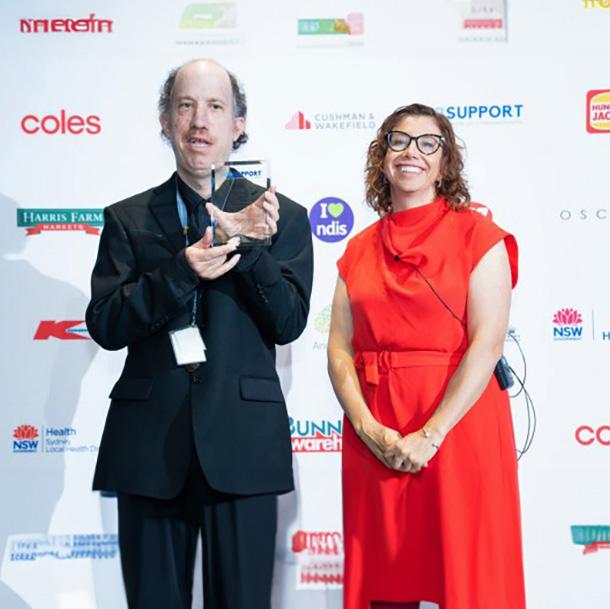
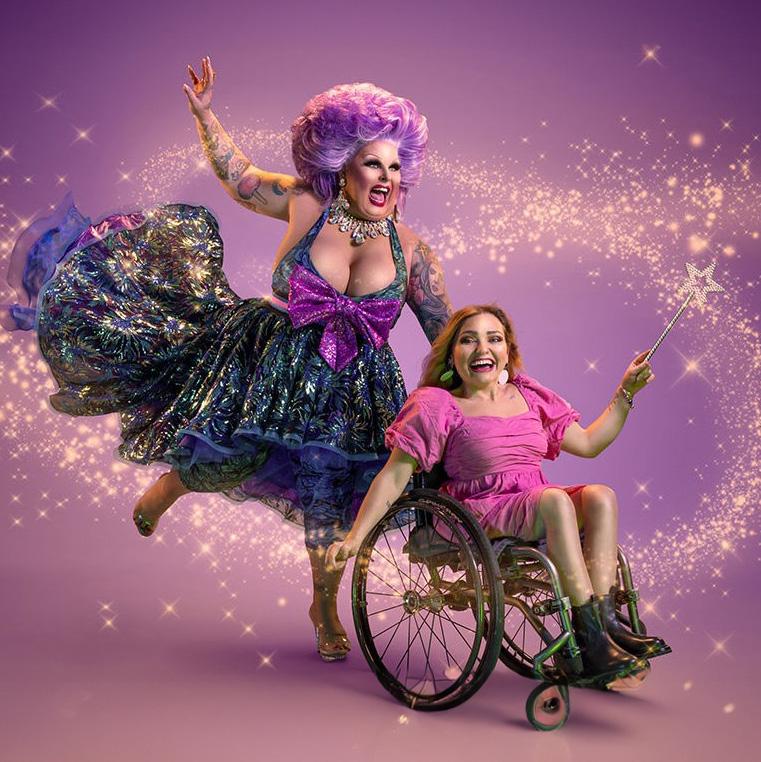
Pictured is Handa with students from his All-Abilities class.
Taking disability inclusion centre stage
Disability advocate and actress Maya Dove has just wrapped up as lead in the fun hit Brisbane Festival play Tae Tae in the Land of Yaaas!
Link to... Happenings June/July 2024 68
MS opens Wellness Centre in Adelaide
The MS Society of South Australia & Northern Territory has opened its new state-of-the art Wellness Centre. It has been designed to support more than 2900 people living with multiple sclerosis in South Australia and the Northern Territory.
Speaking at the opening, MS Society CEO, Jannine Jackson, said it marks the beginning of a new era in care.
“This project, a testament to the power of collaboration and connection, embodies more than just the construction of a building,” Jackson said.
“We've not only created a physical space, but also a haven for wellness and inclusivity for our MS community, signifying a shared commitment to compassion, empathy, and improving lives within the communities we serve.”
Among the guests was MS Society patrons SA Governor Frances Adamson and Rod Bunten. The governor said it was evident the Wellness Centre had been "designed with accessibility at its forefront and done so in collaboration with clients". She also revealed being a patron of the MS Society was a cause close to
her and Rod Bunten’s hearts, with family members diagnosed with the neurological condition.
Also attending the opening were SA Health Minister Chris Picton, Shadow Minister for Disability, Heidi Girolamo, City of Charles Sturt mayor Angela Evans, MS Australia CEO Rohan
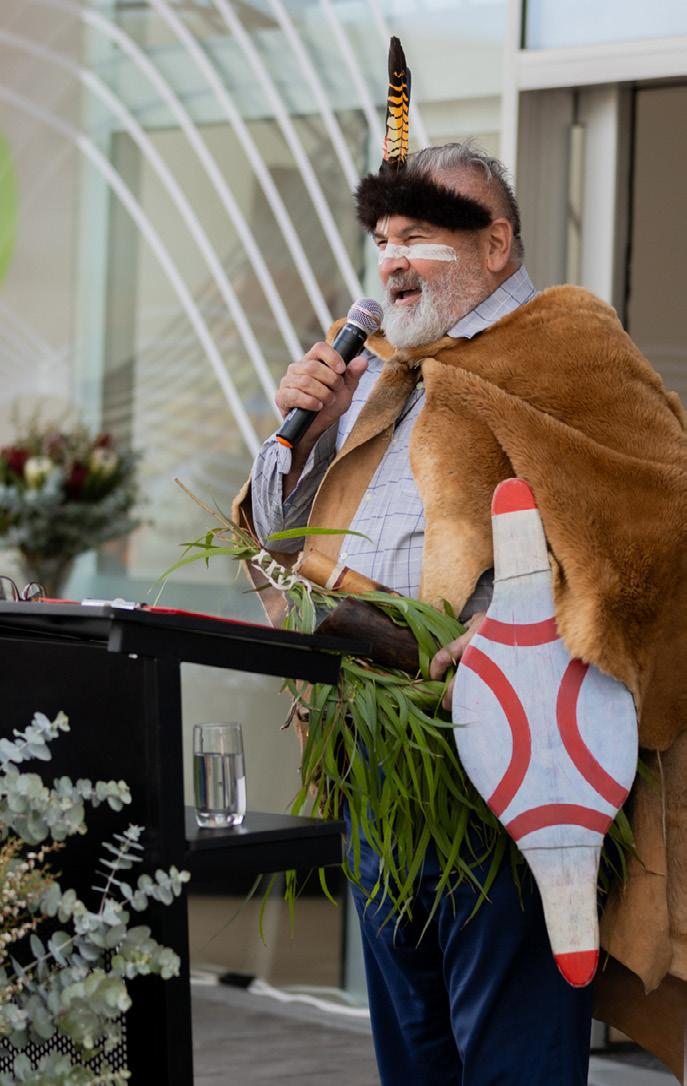
What’s On Calendar
JUNE
June 6-7: Free + Equal Human Rights Conference freeandequal@lateralevents.com
June 7-8: Gold Coast Disability Expo www.goldcoastdisabilitexpo.com.au
June 11-13: Disability Employment Australia Conference www.disabilityemployment.org.au
June 13-14: OT Exchange 2024 https://www.otausevents.com.au/exchange2024
Greenland and MS Society president, Kerry Sanders.
The opening featured a Welcome to Country and smoking ceremony by Uncle Mickey O'Brien, which was followed by an official ribbon cutting, followed by private tours of the Wellness Centre.
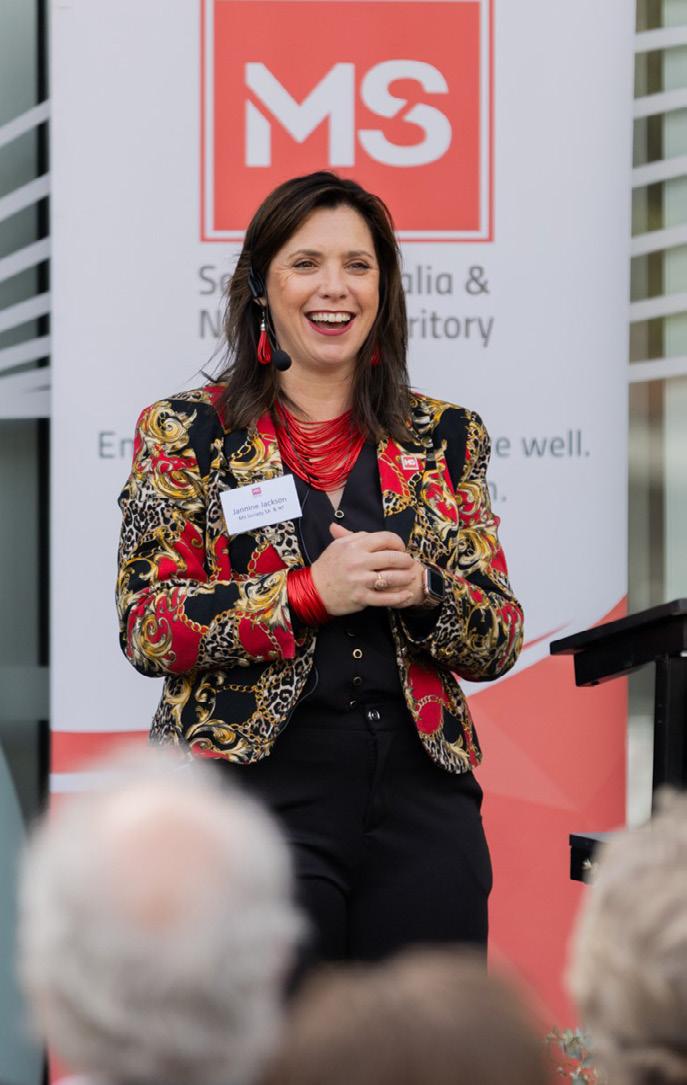
JULY
July 2-3: Social Impact Summit Sydney https://socialimpactsummit.co/
July 5-6: Source Kids Disability Expo Melbourne www.sourcekids.com/au/disability-expo/
July 15-16: Direct Support Workers Conference enquiries@dsw.org.au
Link to... Happenings
MS Society SA and NT CEO Jannine Jackson
linkonline.com.au 69
Uncle Mickey O’Brien
And the gold goes to…
The Adelaide Fringe won gold in the 2023 Qantas Australia Tourism award, in the inaugural Excellence in Accessible Tourism category.
The awards recognise businesses that excel in accommodating the accessibility needs of their visitors, highlighting the crucial role of inclusive tourism.
This accolade joins a growing list of recognitions for Adelaide Fringe, including Major Festival and Events category winner at the 2022 South Australian Tourism Awards, and Best Festival title in the 2022 Uniquely Aussie Awards. In 2023 Adelaide Fringe became the first annual event in Australia to sell more than one million tickets.
It has been proactive in enhancing accessibility, with initiatives such as training staff to recognise hidden disabilities, installing visual communication boards and hearing loops at box offices, creating additional venue accessibility videos, providing
social stories for venues and offering sensory support for Fringe-run events.
The silver award went to Accessible Accommodation Victoria and the bronze was presented to Katherine Outback Experience.



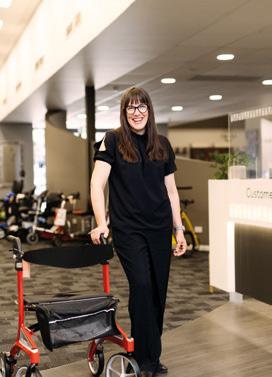


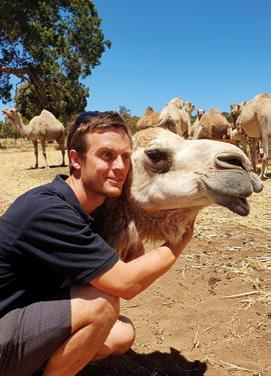
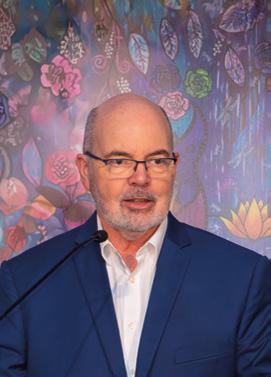


Link to... Happenings LINK Magazine is Australia’s premier national cross-disability publication. The magazine is published in print and online to share the latest news, research and opinion on issues facing the disability sector. EDITORIAL Kymberly Martin kymberly@intermedia.com.au | (02) 8586 6164 ADVERTISING Michelle Stevens mstevens@intermedia.com.au | 0419 822 717 $9.95 April/May 2024 Volume 34 Issue 2 linkonline.com.au In this issue: latest news Assistive Technology mission of love for the Gatto family Tim & Judy Sharp’s journey with autism ATSA Sydney Brisbane Expo Seminar Guide Happenings & MORE Australia’s largest AT and equipment online database NED INTRODUCING In this issue: reparing teachers an inclusive education model lets the runway do the talking ighlights from Oceanic Seating Symposium golden oldie reborn Travel Leisure Happenings MORE & meets a Dr and a Reverend LINK VISITS A Camel Farm $9.95 $11.50 February/March 2024 Volume 34 Issue linkonline.com.au this issue: eet chocolatier A boxer breaking boundaries Wheelchair traveller takes us the Challenging the sex taboo Mobility Book Giveaway Happenings More. founder of NOVA Employment WE TALK TO Martin Wren $9.95 $11.50 December/January 2023 Volume 33 Issue 6 linkonline.com.au $9.95 $11.50 In this issue: eet Yellow Ladybugs charity driving change Conversations Early Learning Symposium Travel Leisure accessible-friendly options Universal Design putting pedestrians first Personal Care & Equipment Employment Book List Happenings MORE October/November 2023 Volume 33 Issue 5 linkonline.com.au A trailblazer on a mission Clare Gibellini June/July 2024 70
New mascara for vision-impaired
An Australian-first beauty product for people with low vision is now available. Developed by Australian ophthalmologist Dr Jacqueline Beltz, the OKKIYO Prioriteyes mascara allows those with low vision or eye sensitivity to wear mascara more comfortably.
The formula contains medical grade ingredients such as Manuka honey to soothe lashes while the packaging carries braille and a NaviLens QR code that is easily scanned to have information and ingredients read out. The product comes in a square tube designed not to roll away, and a portion of profits go to supporting Aboriginal Eye Health.

PRODUCT GIVEAWAY
Link has three gift packs of the world’s first accessible mascara to give away and one of them could be yours! Inside the gift box is the mascara, cleansing cloths and a magnifying mirror, valued at $110.
All you do to go into the draw to win an OKKIYO Prioriteyes mascara gift set is send you name and address details to: kymberly@intermedia.com.au
Entries close July 15, 2024.
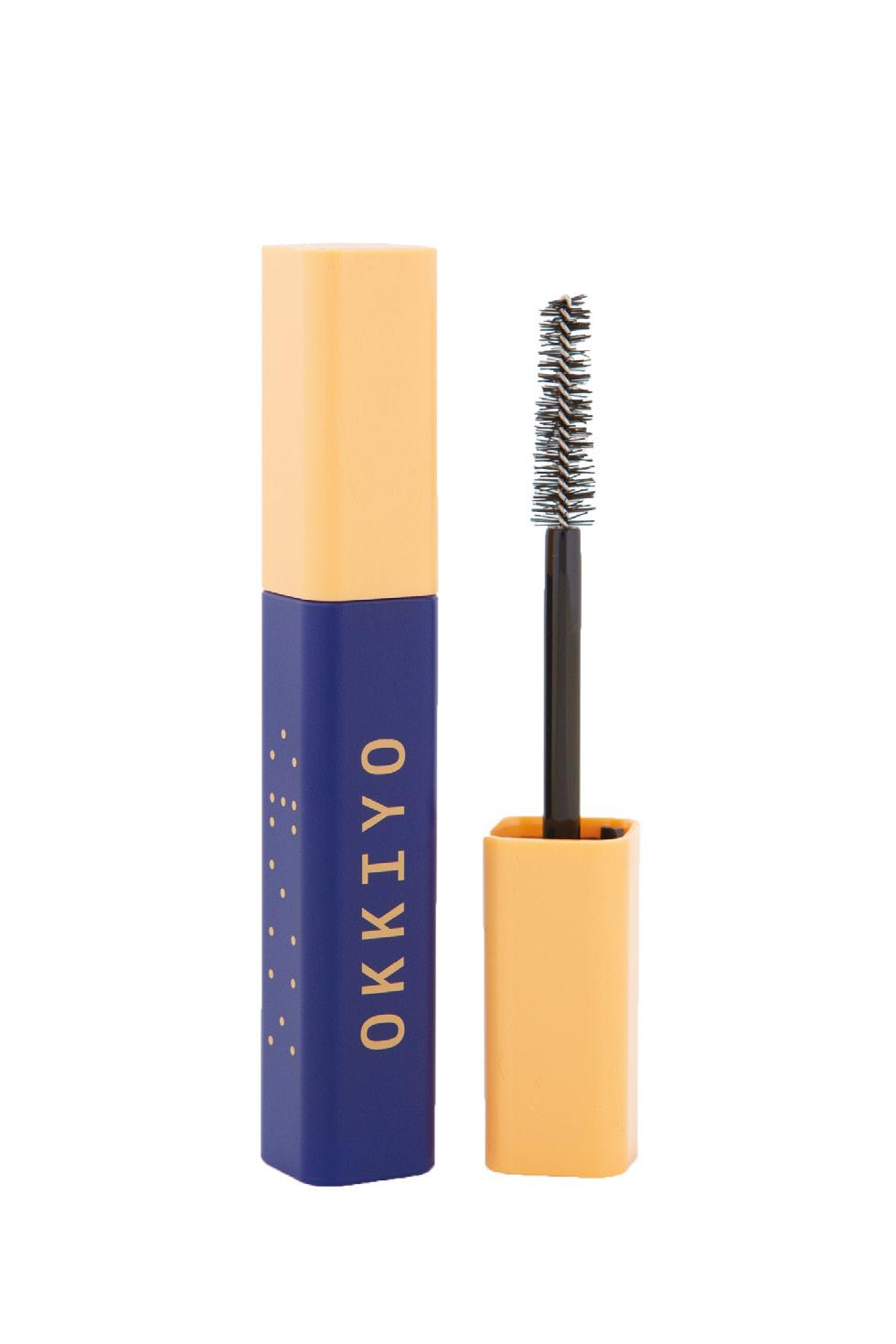
linkonline.com.au 71
FOCUS ABILITY ON
